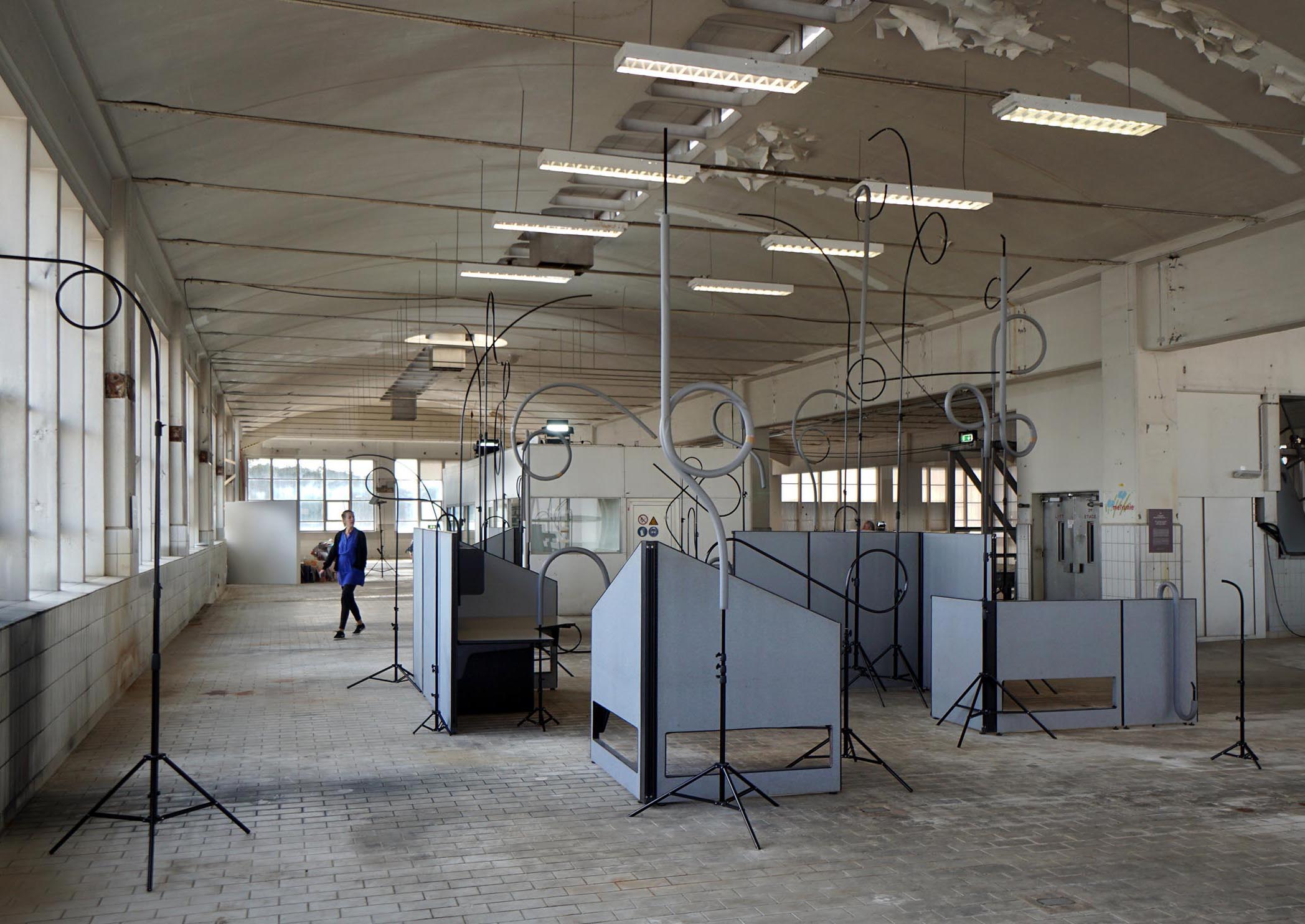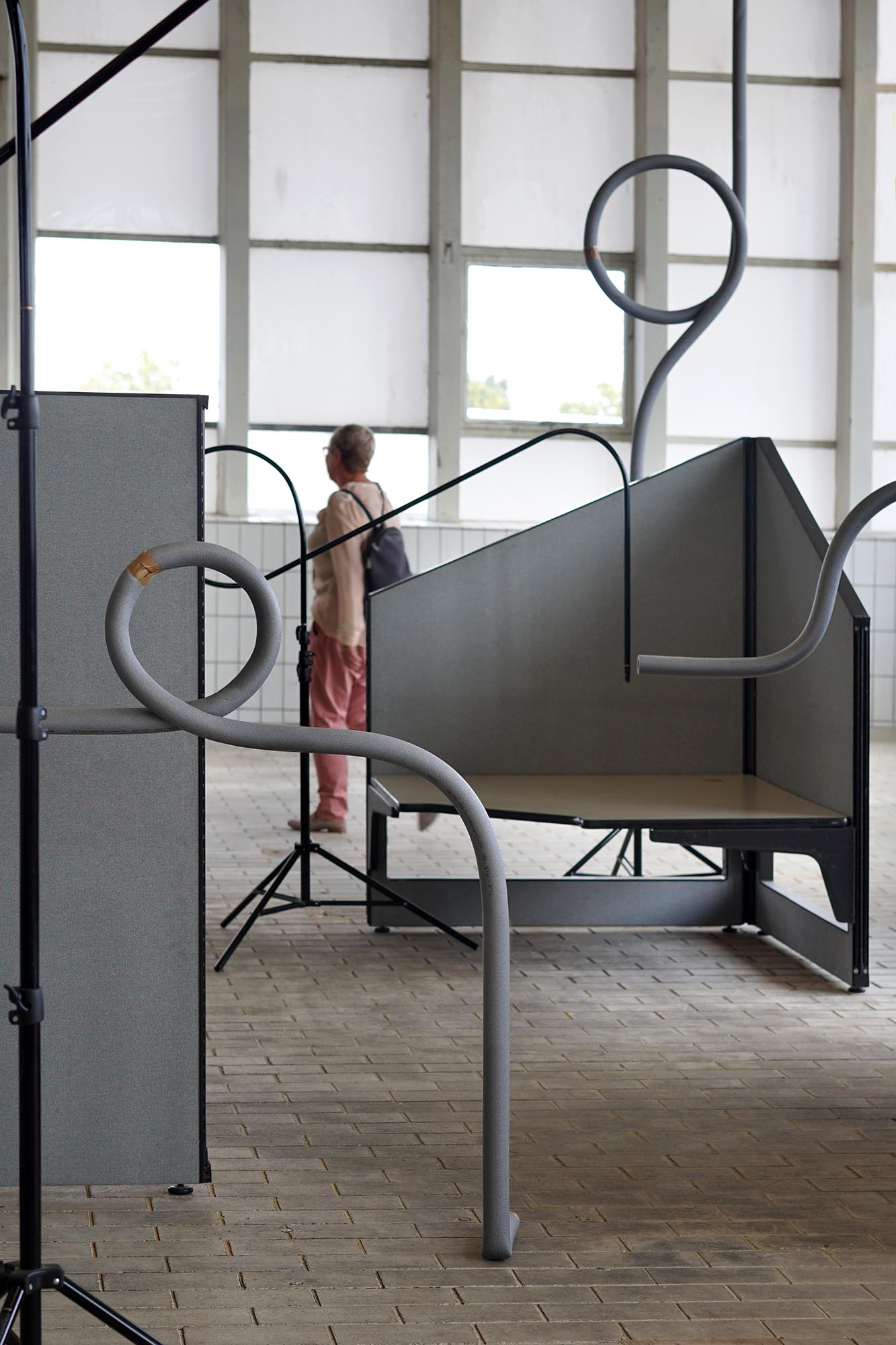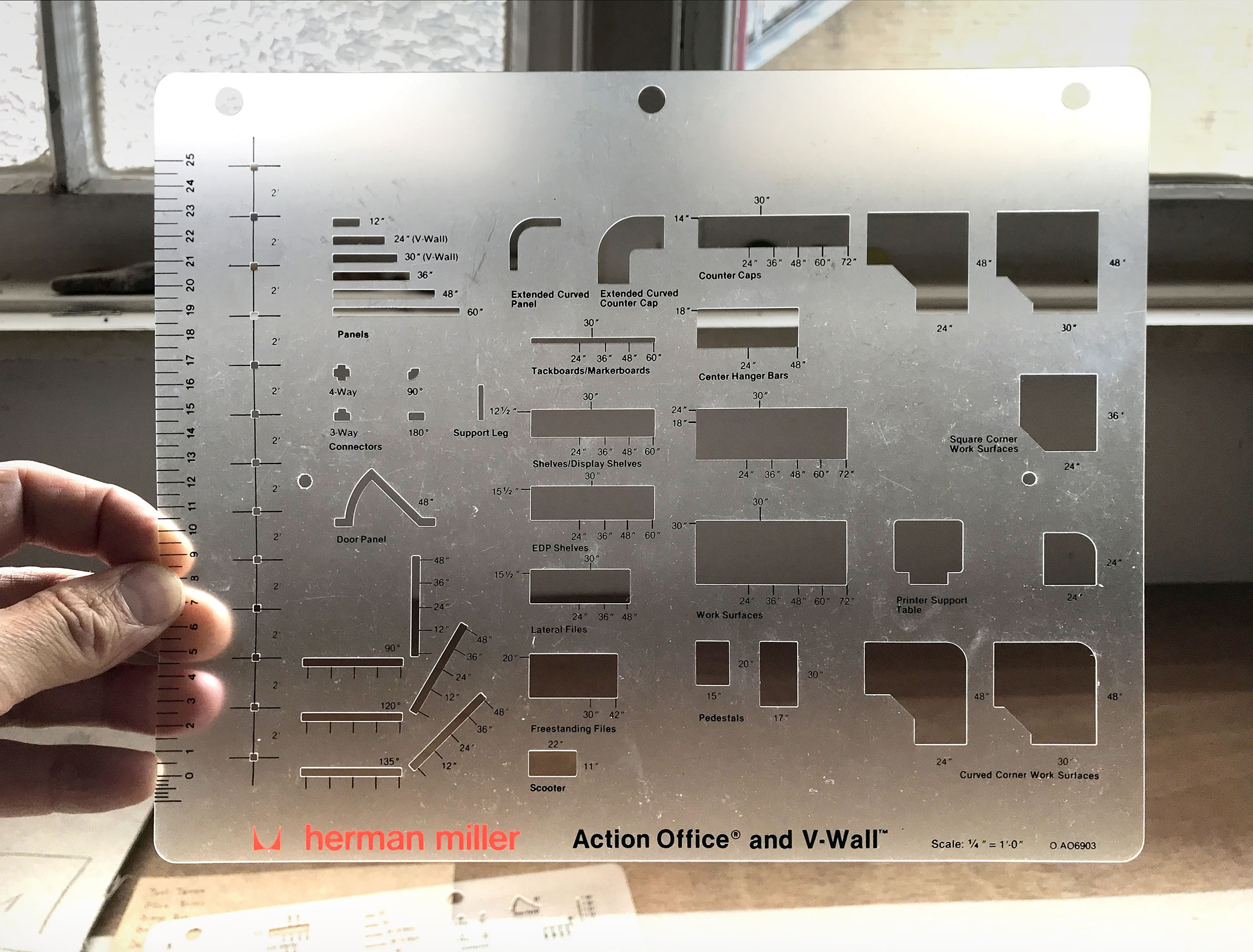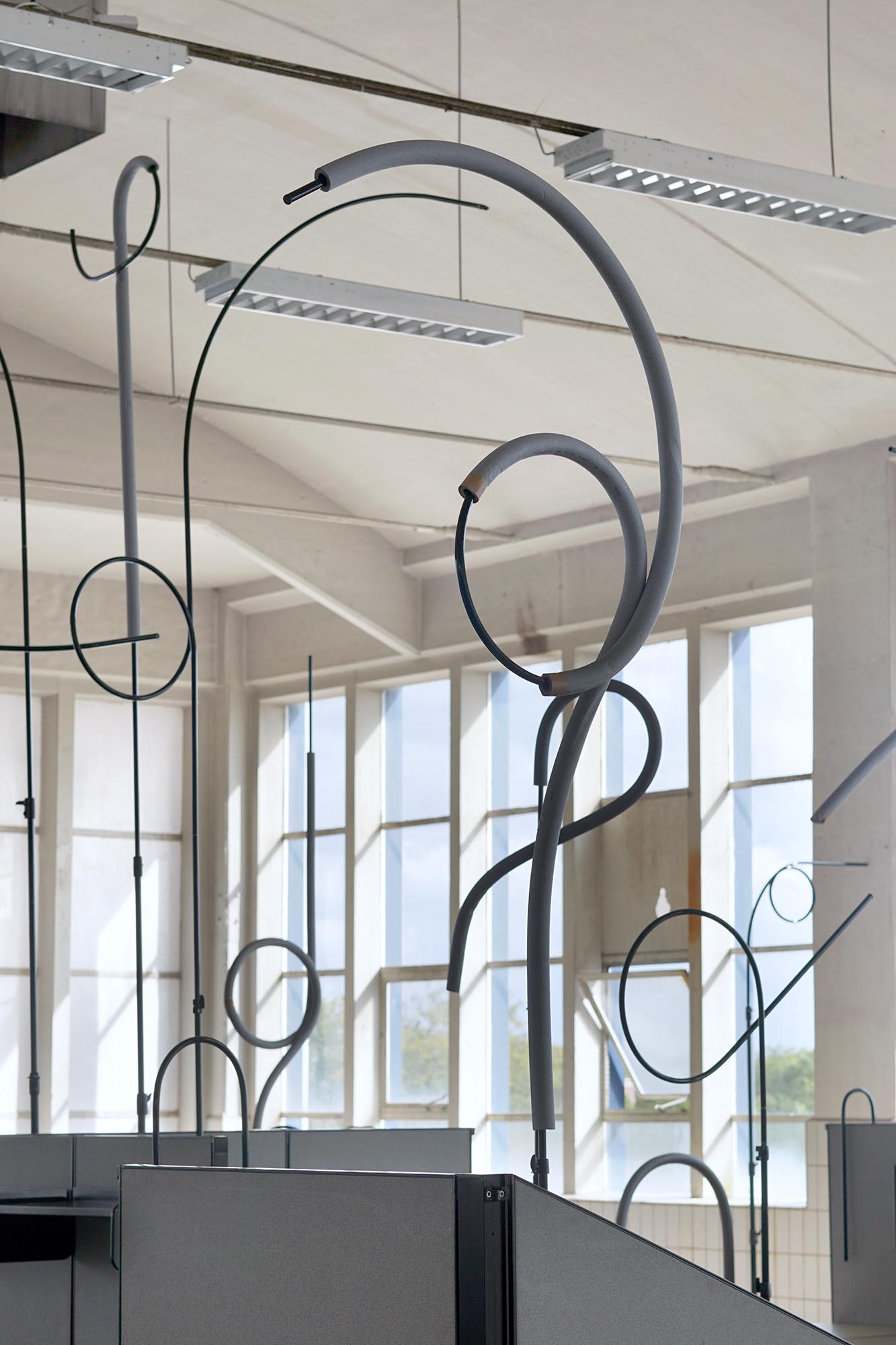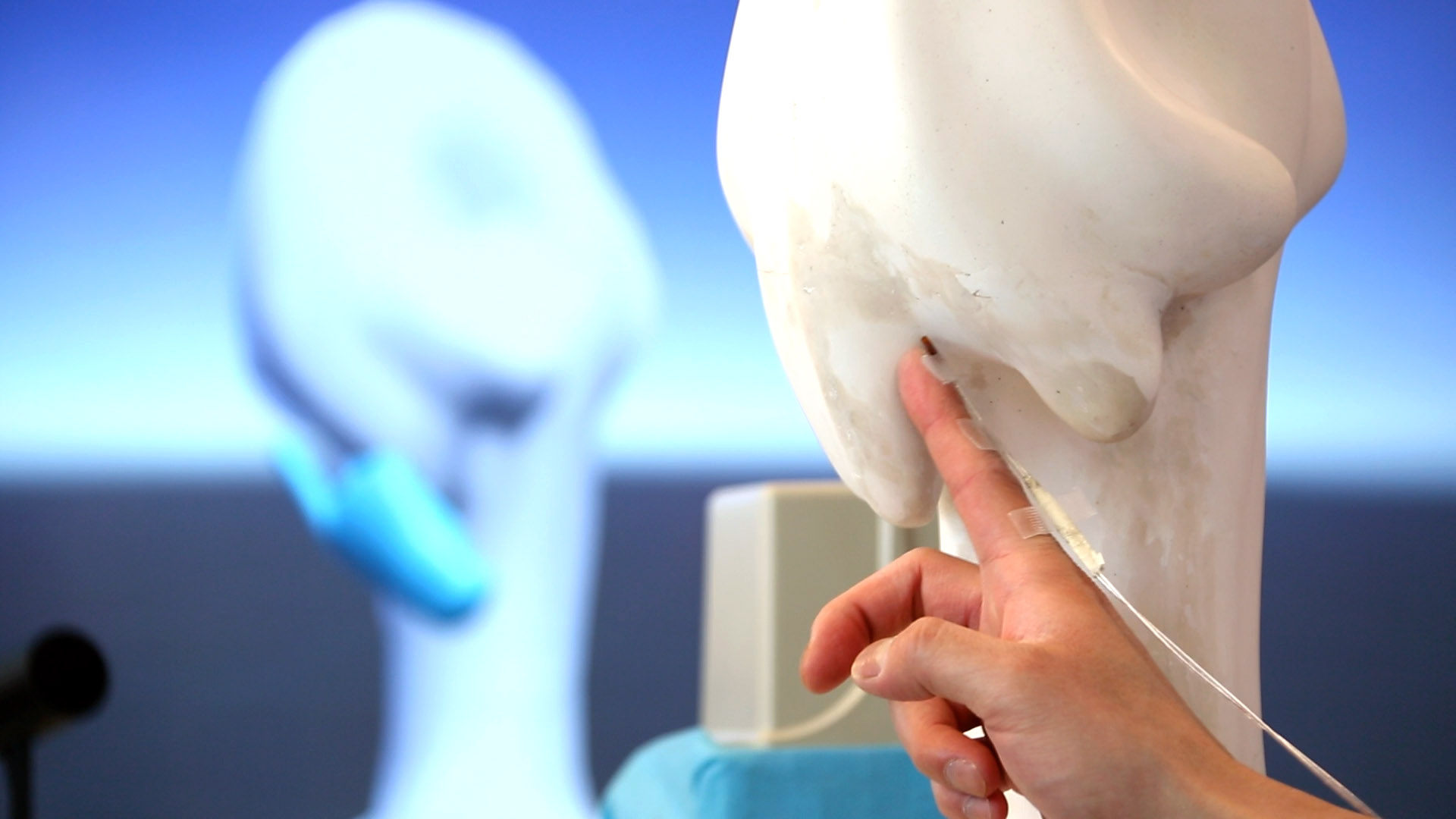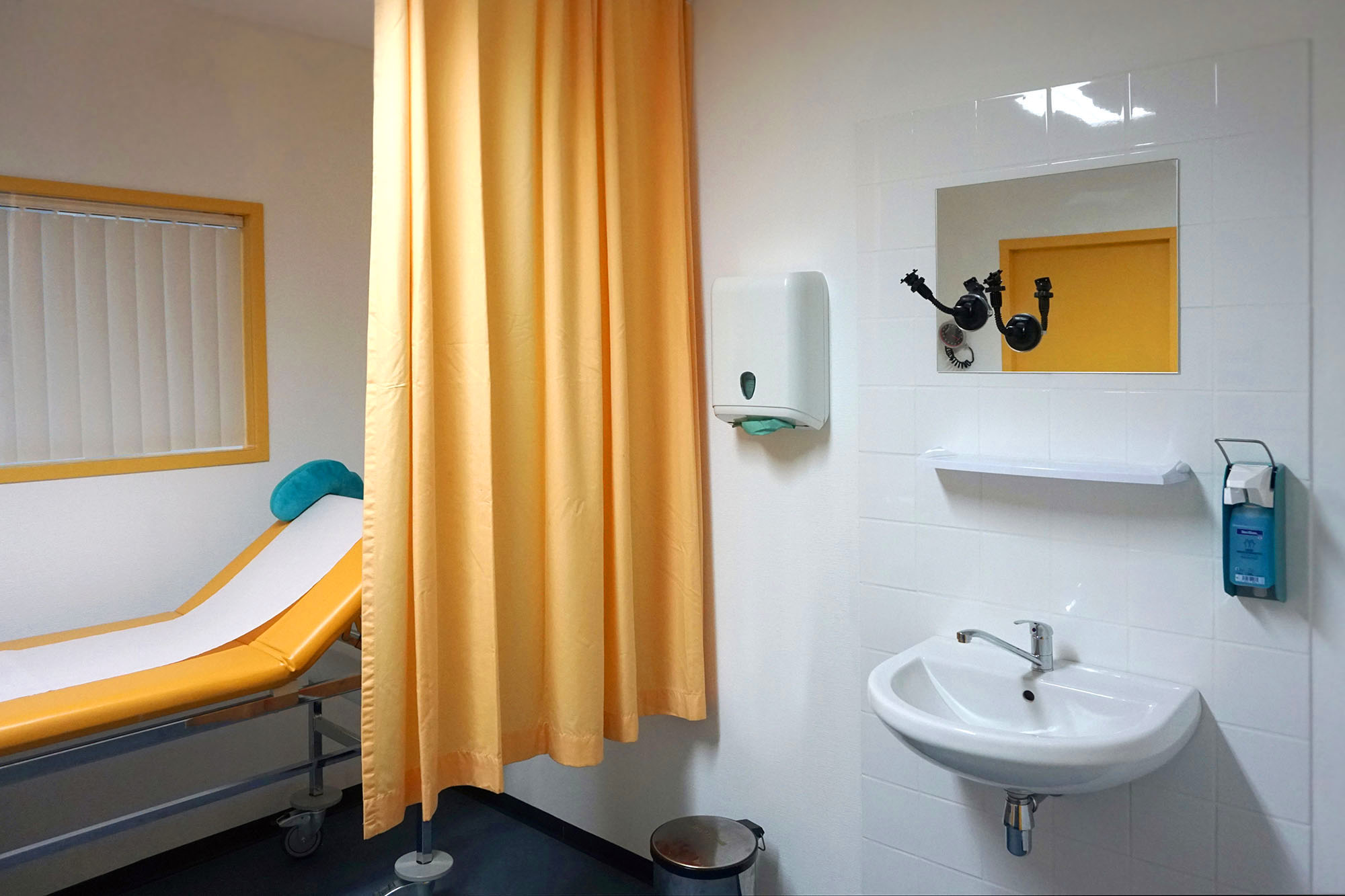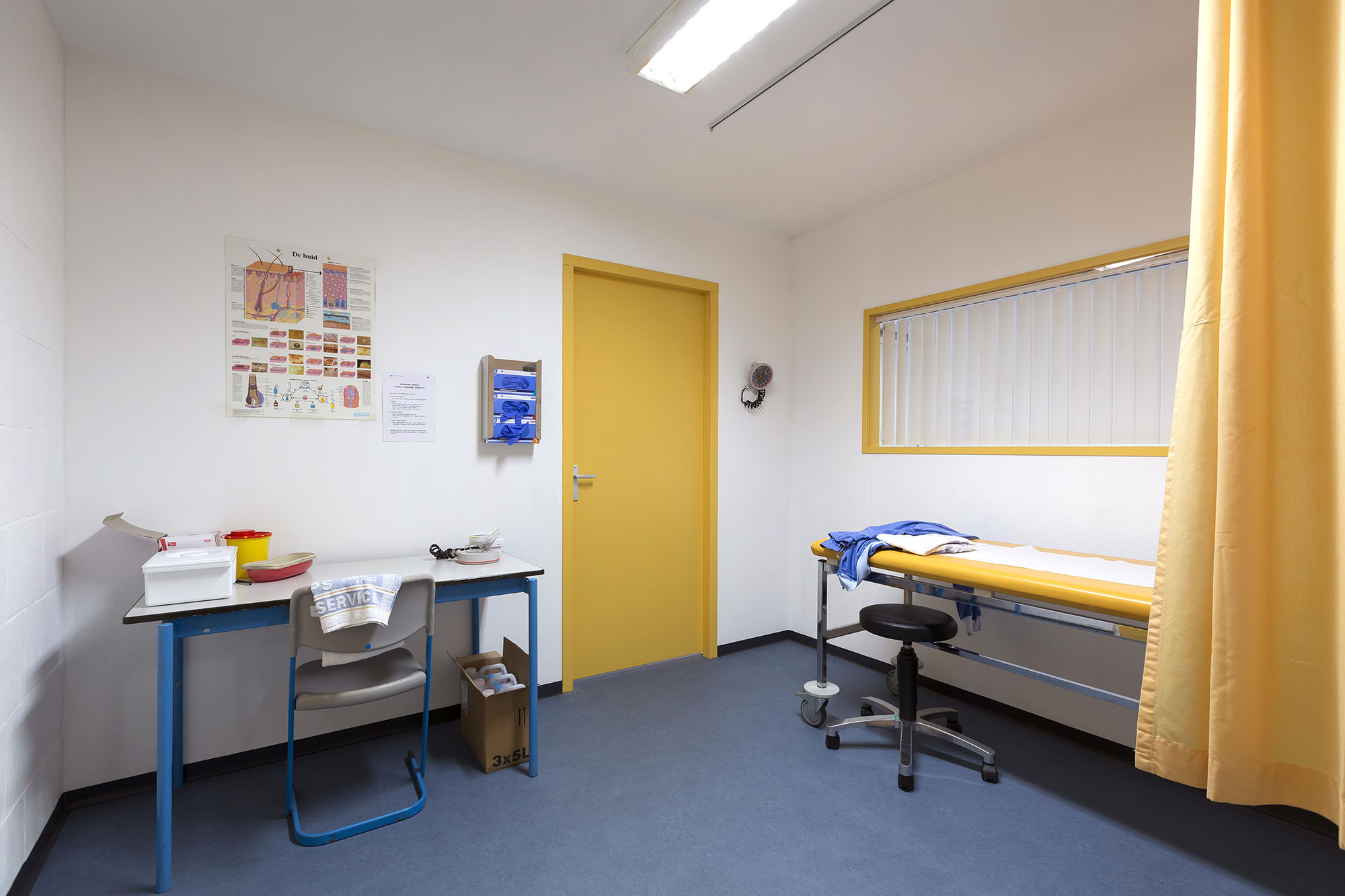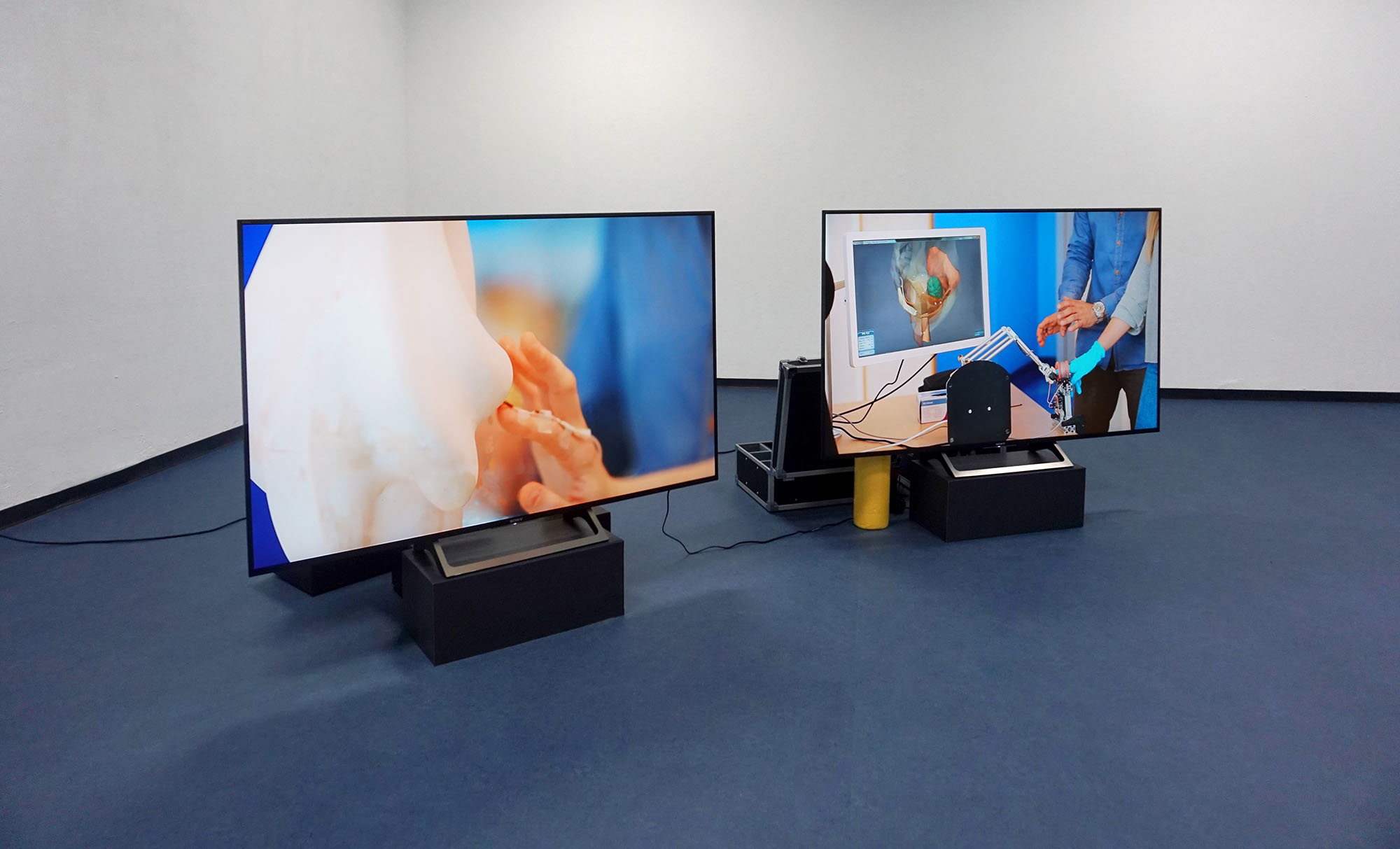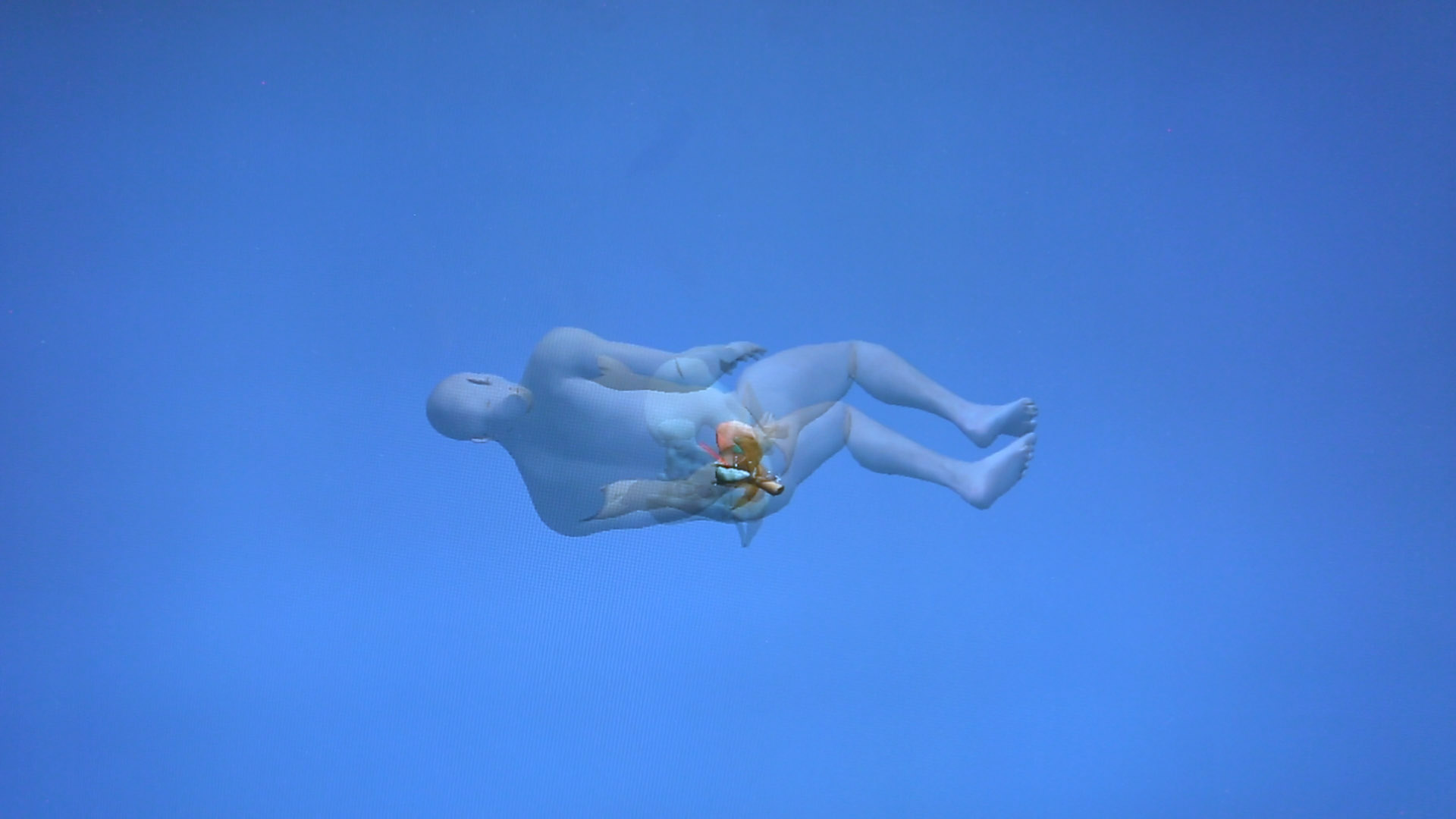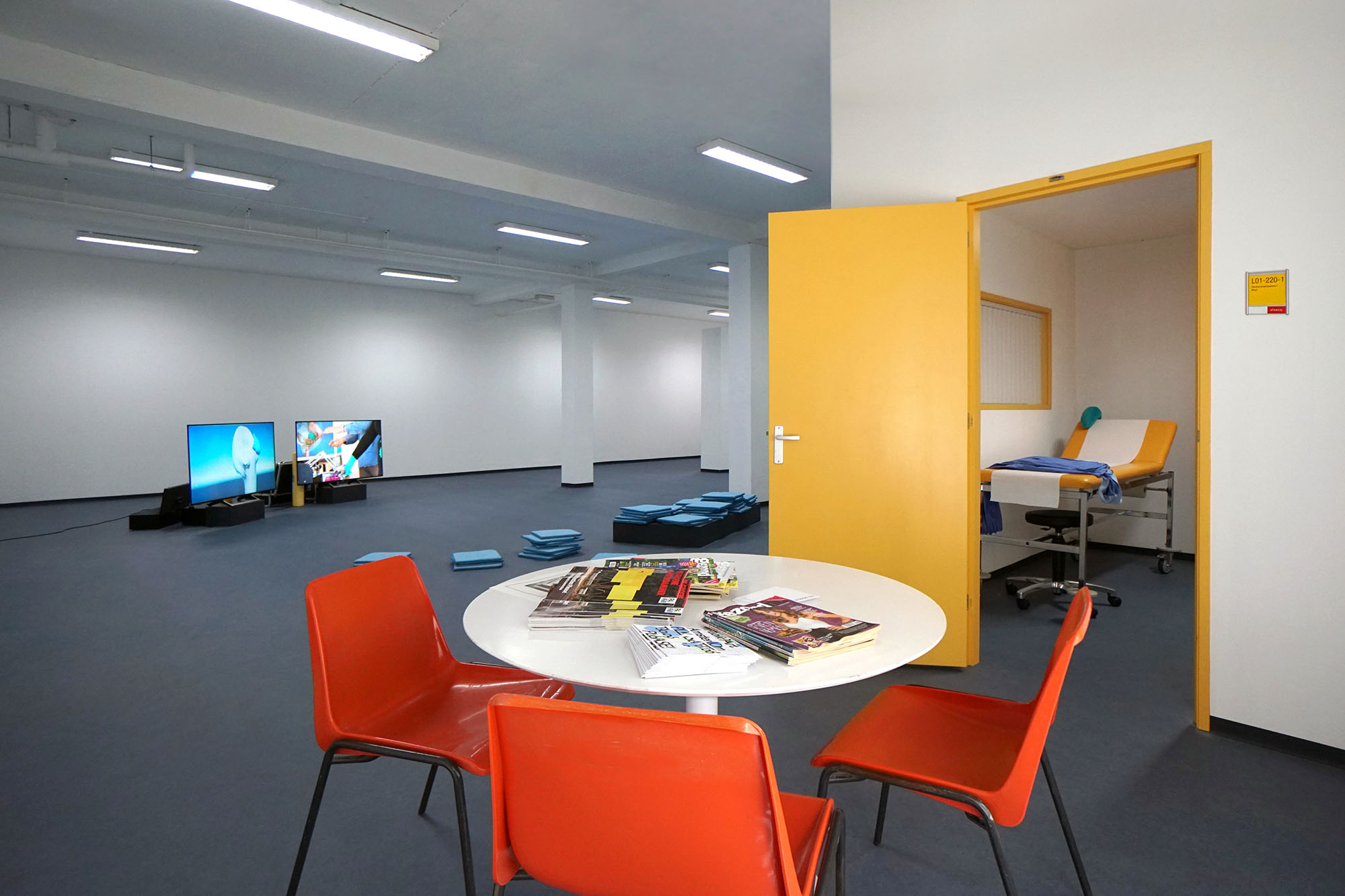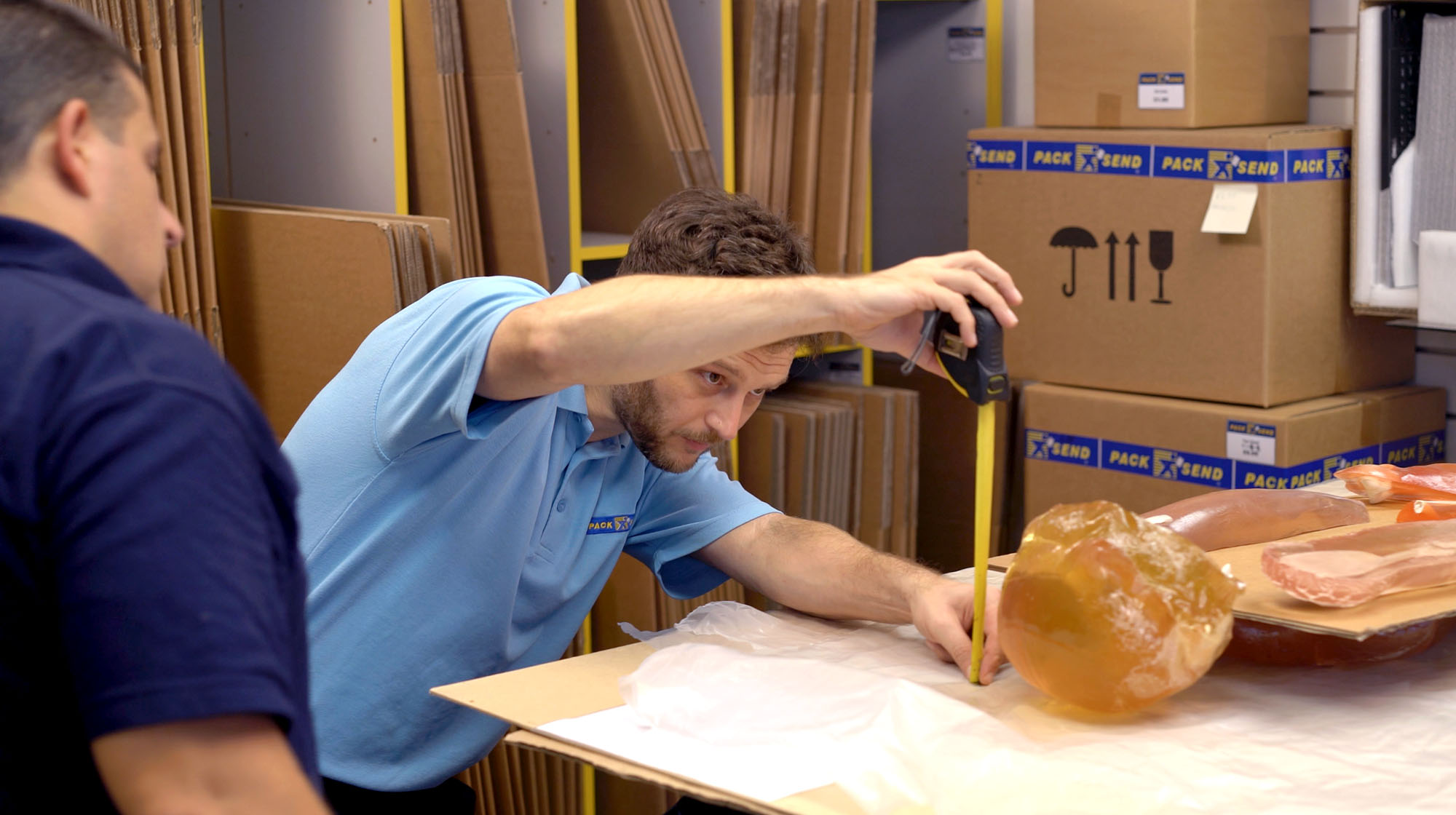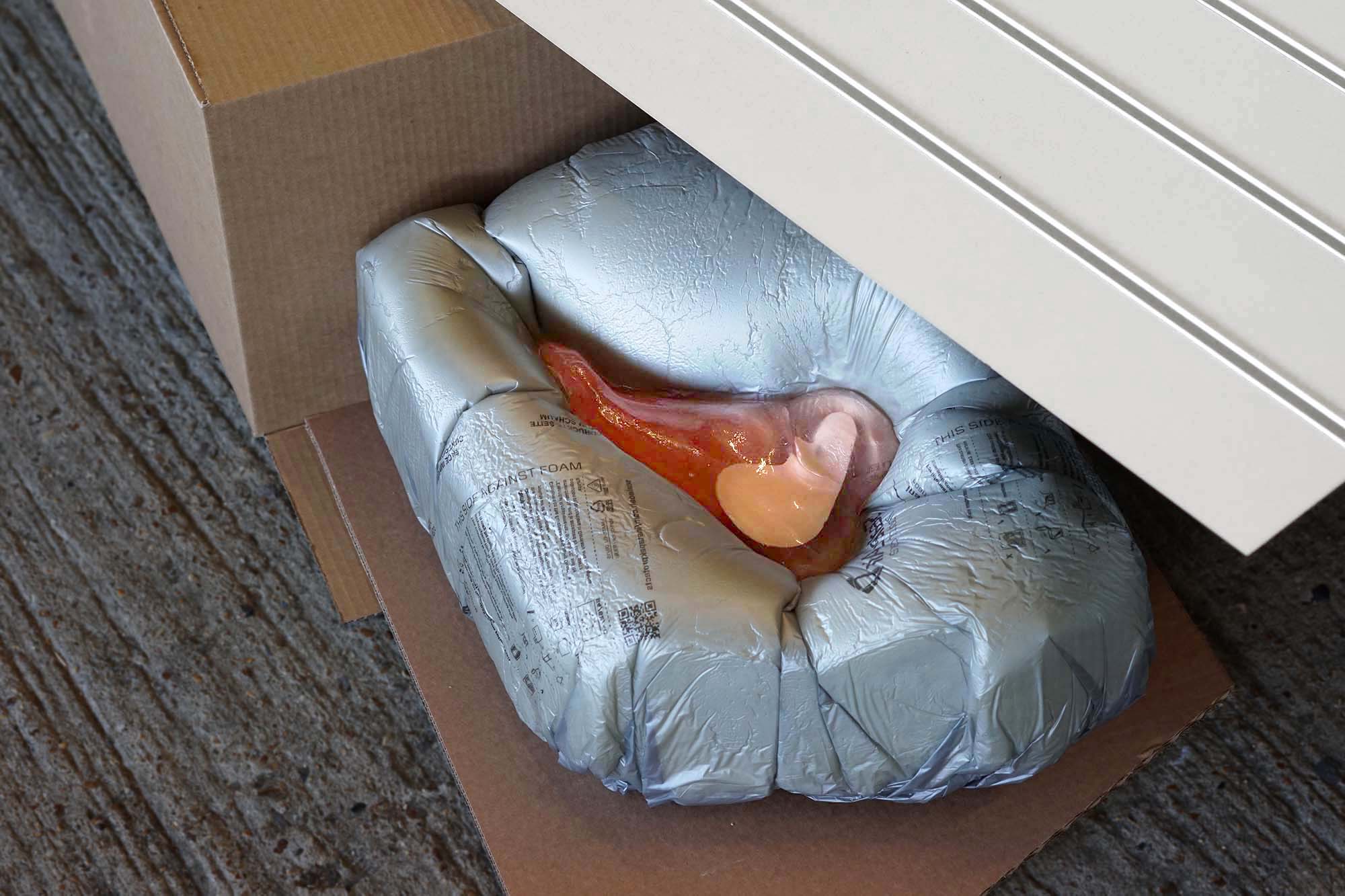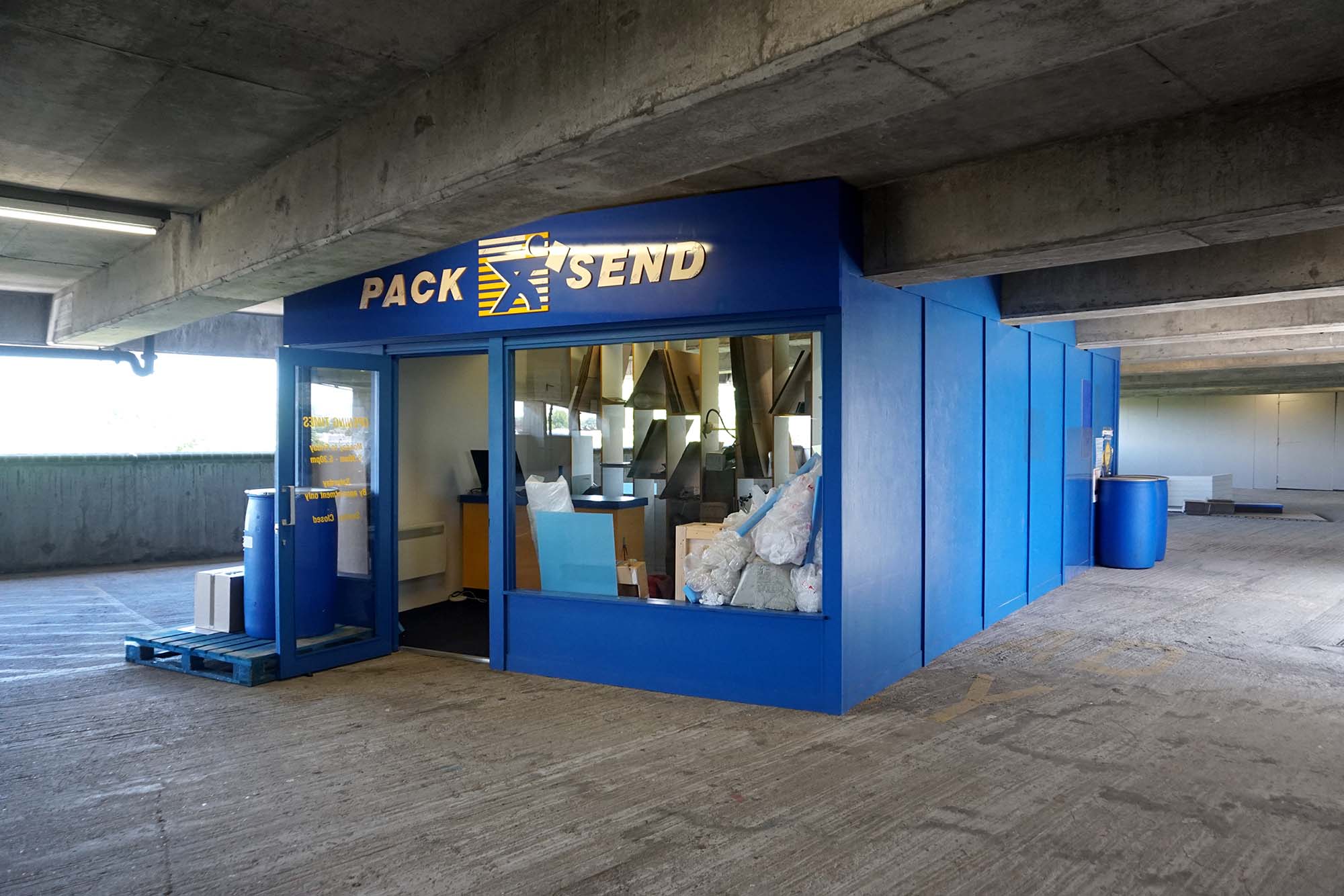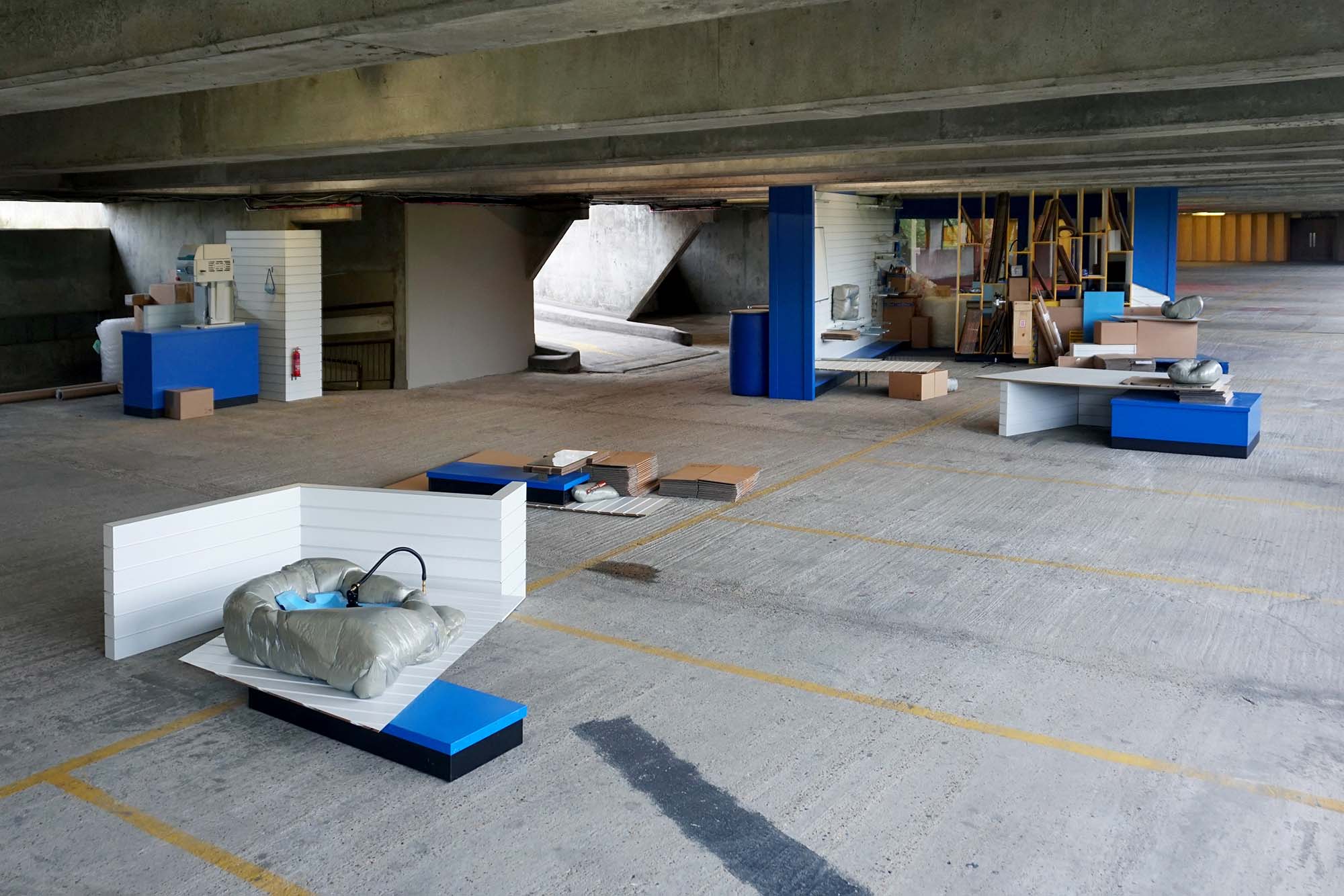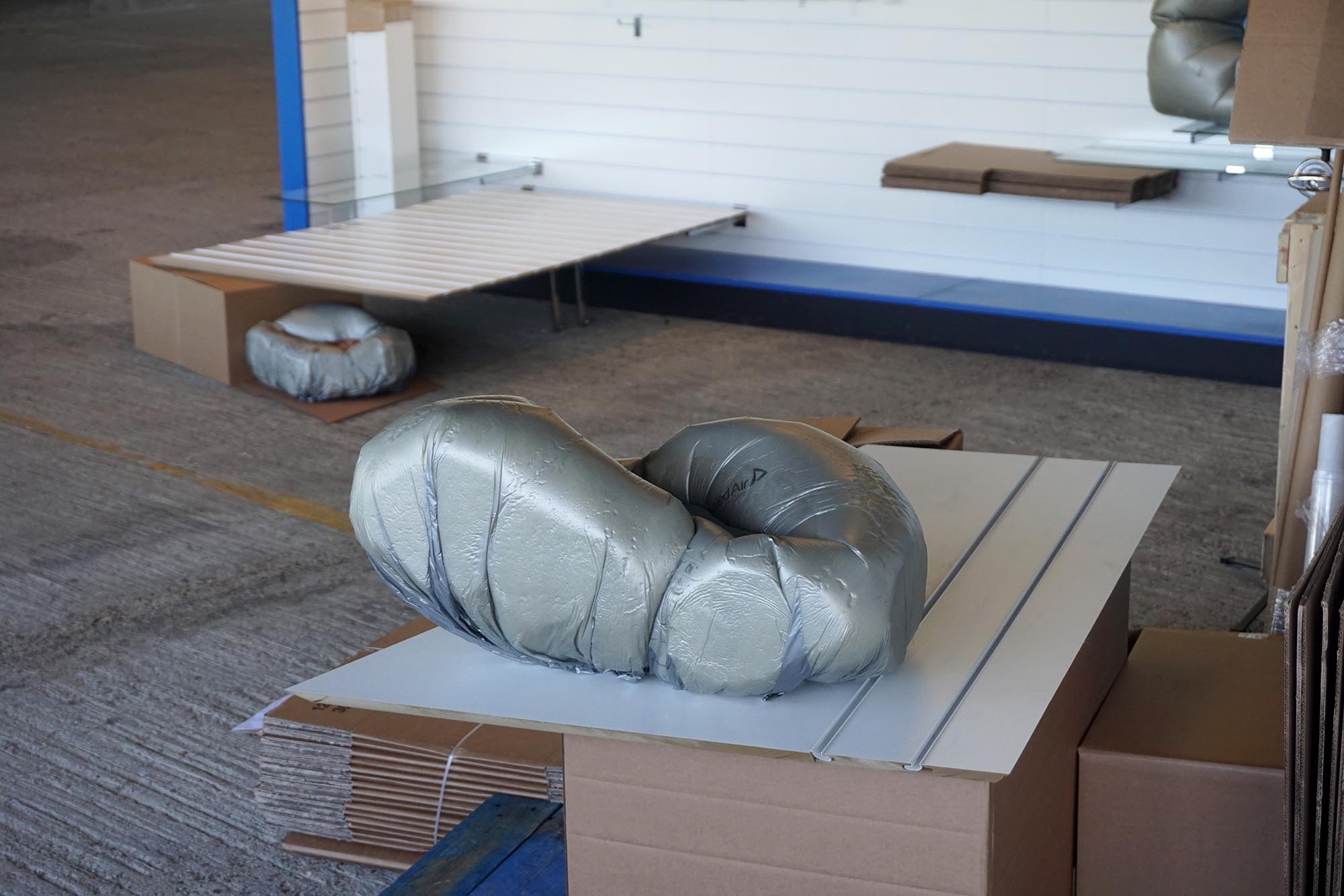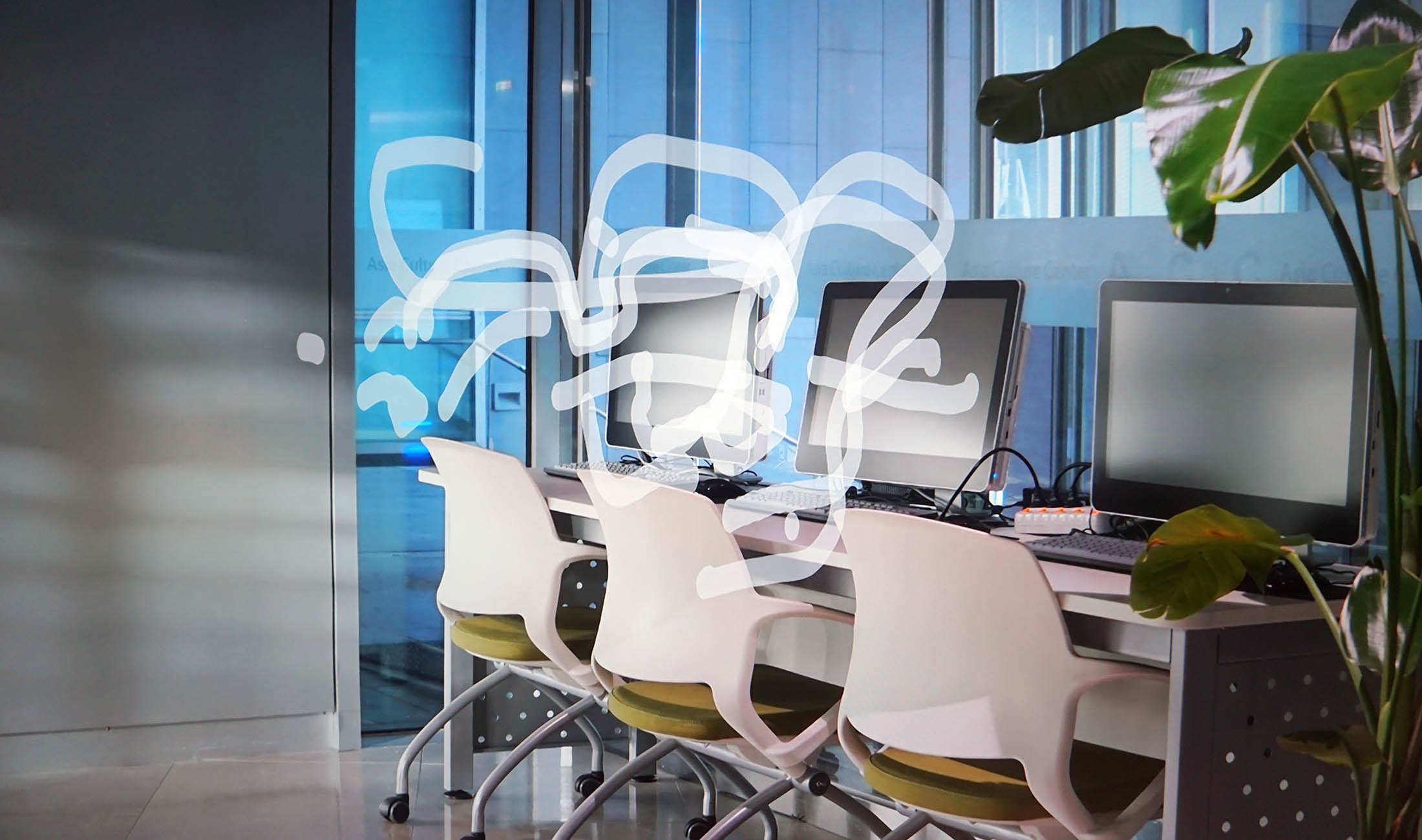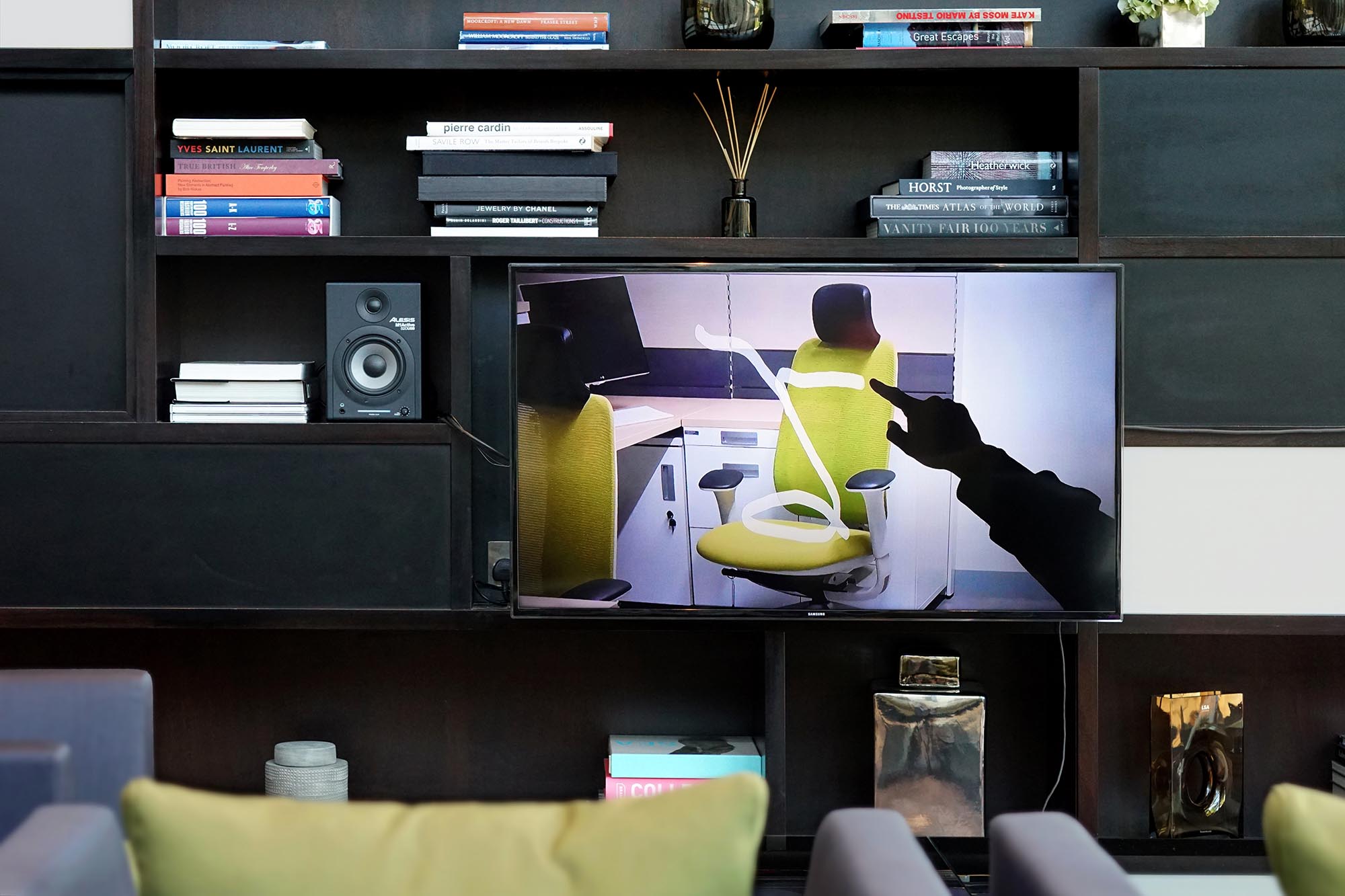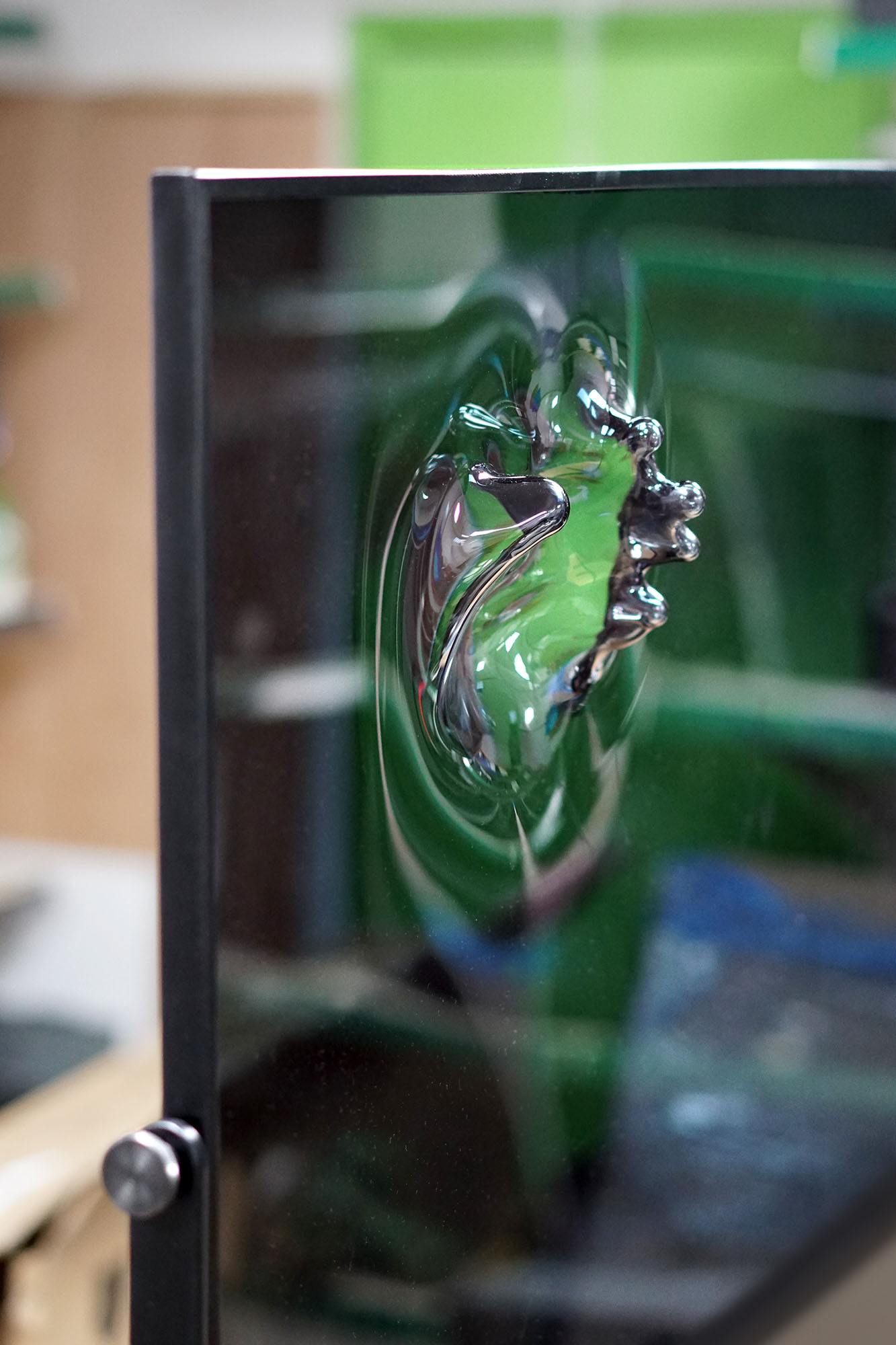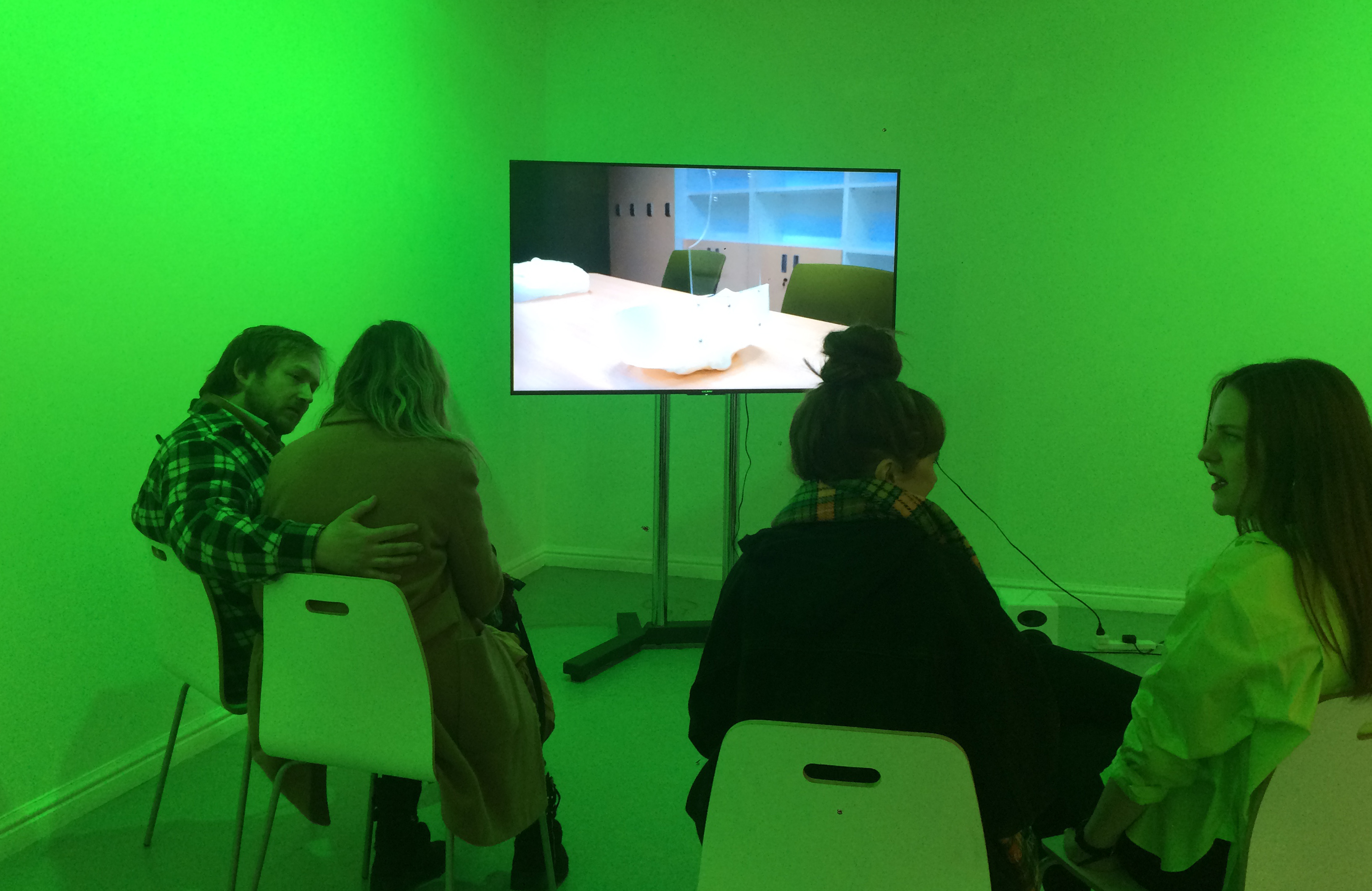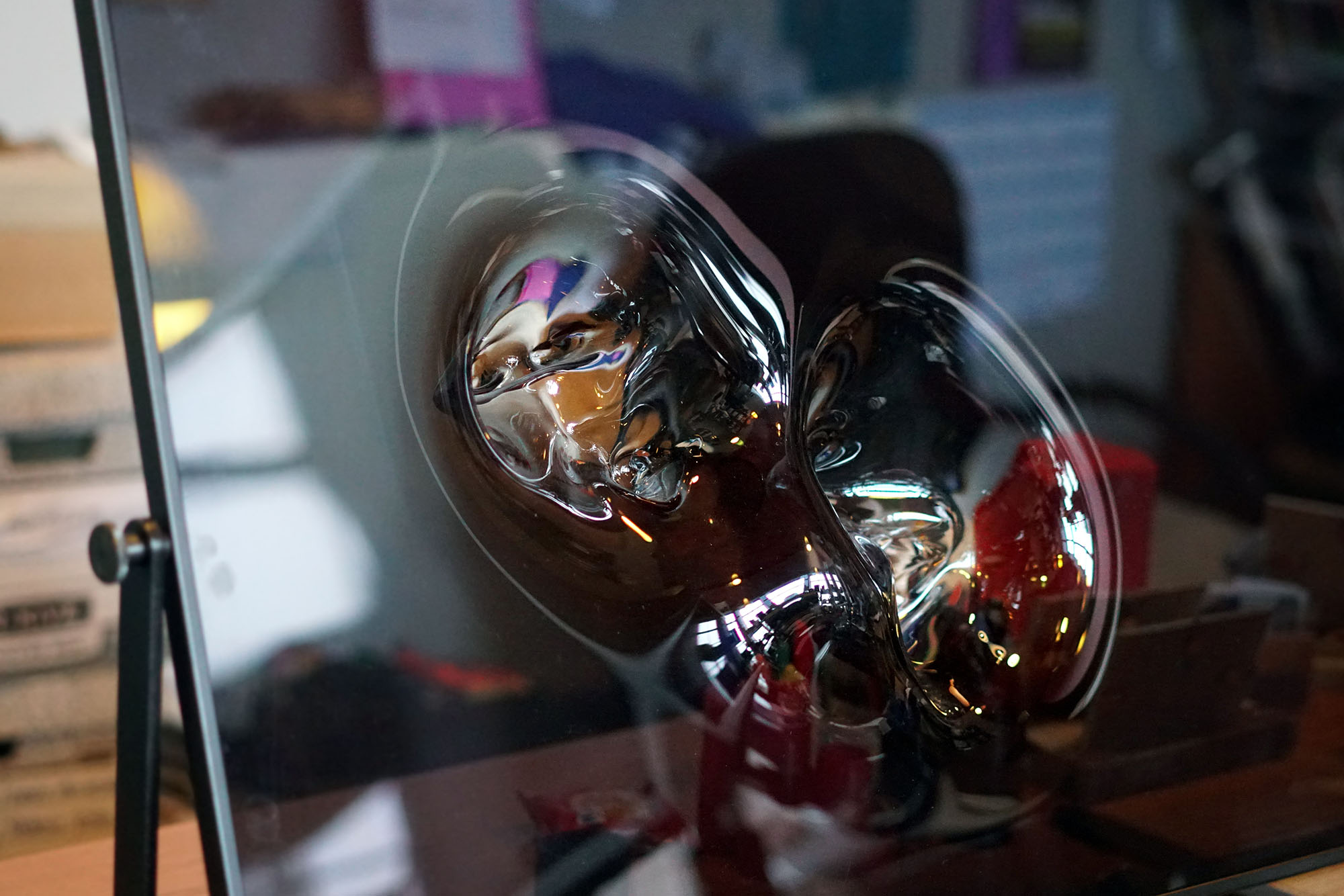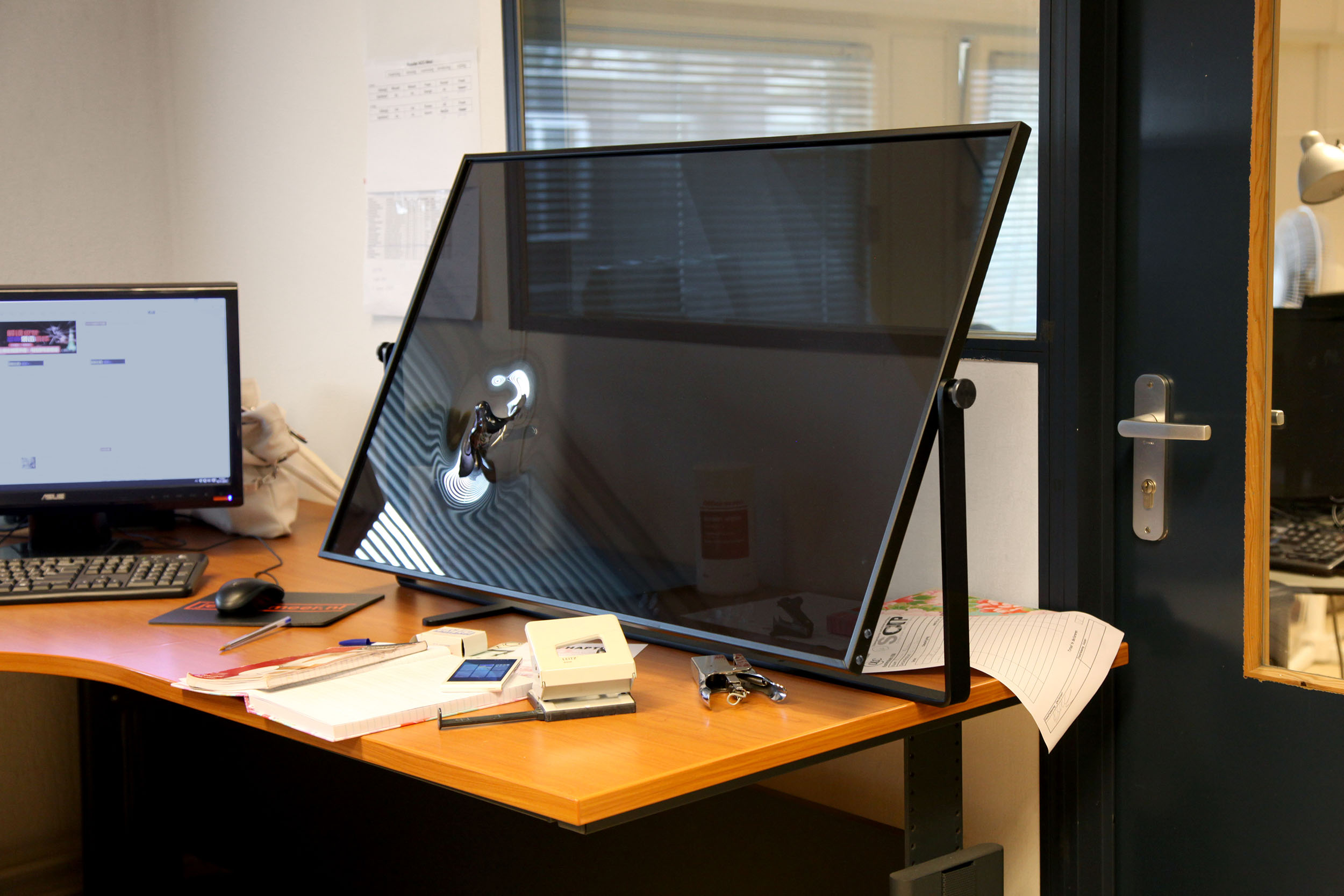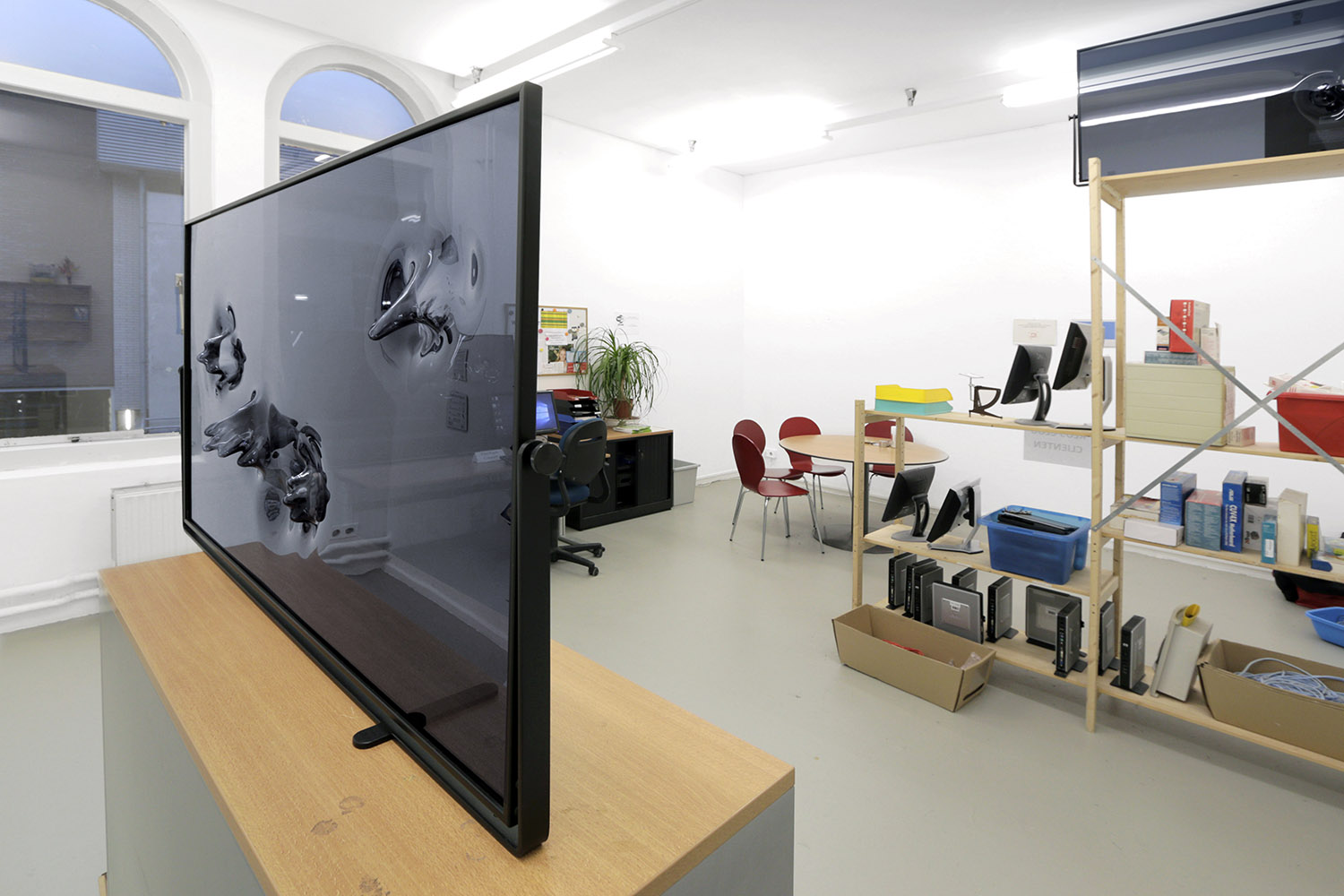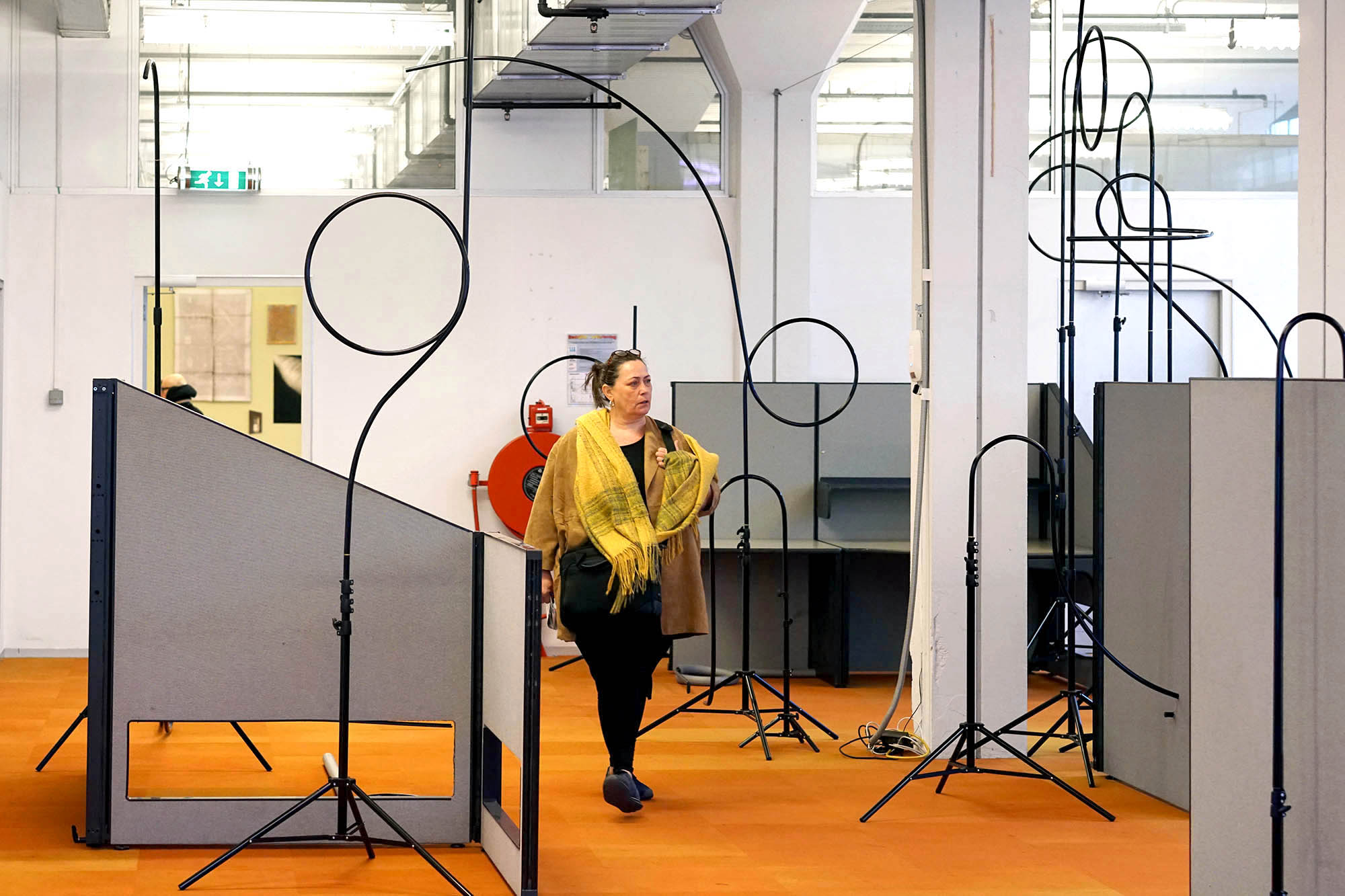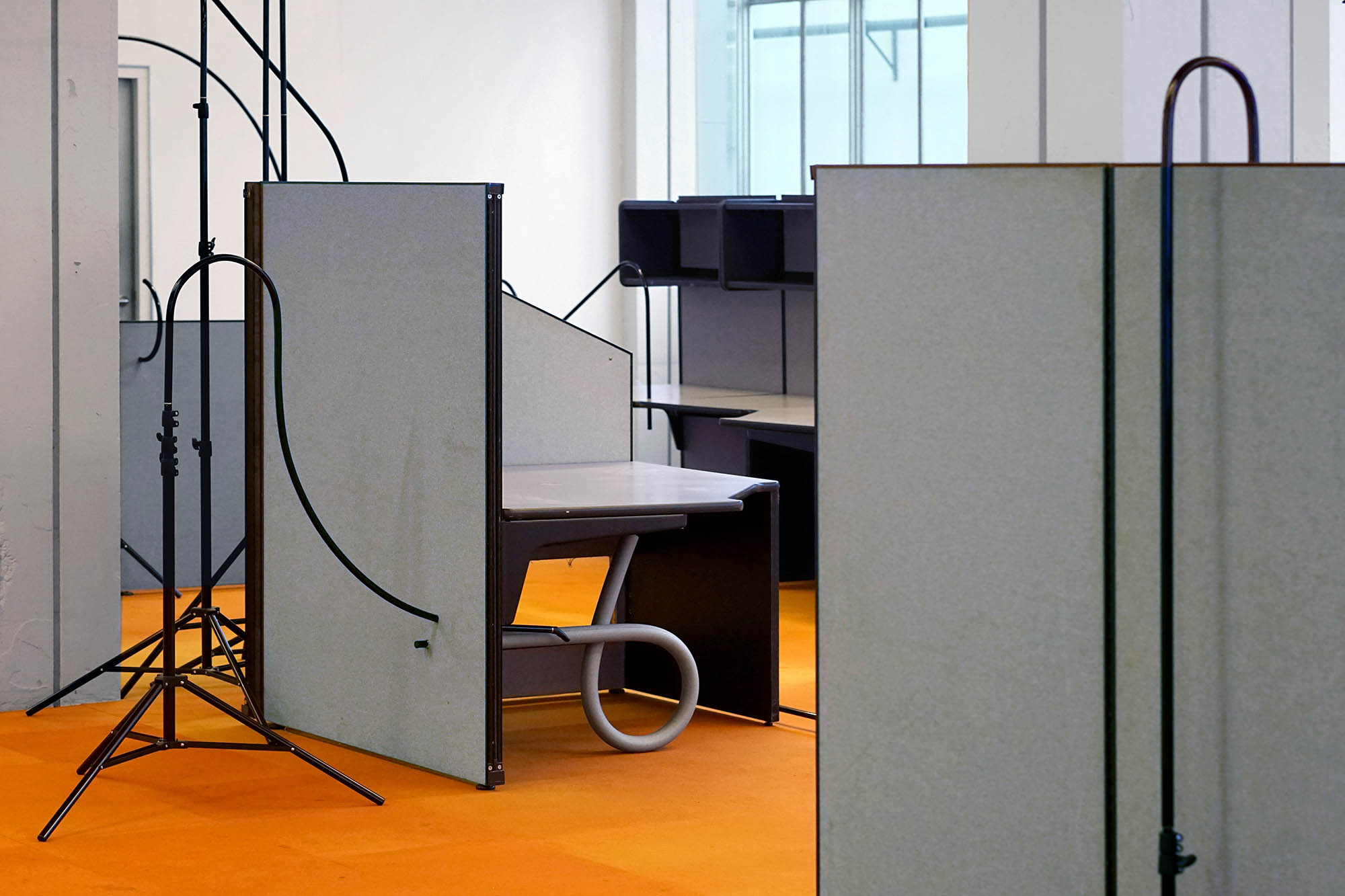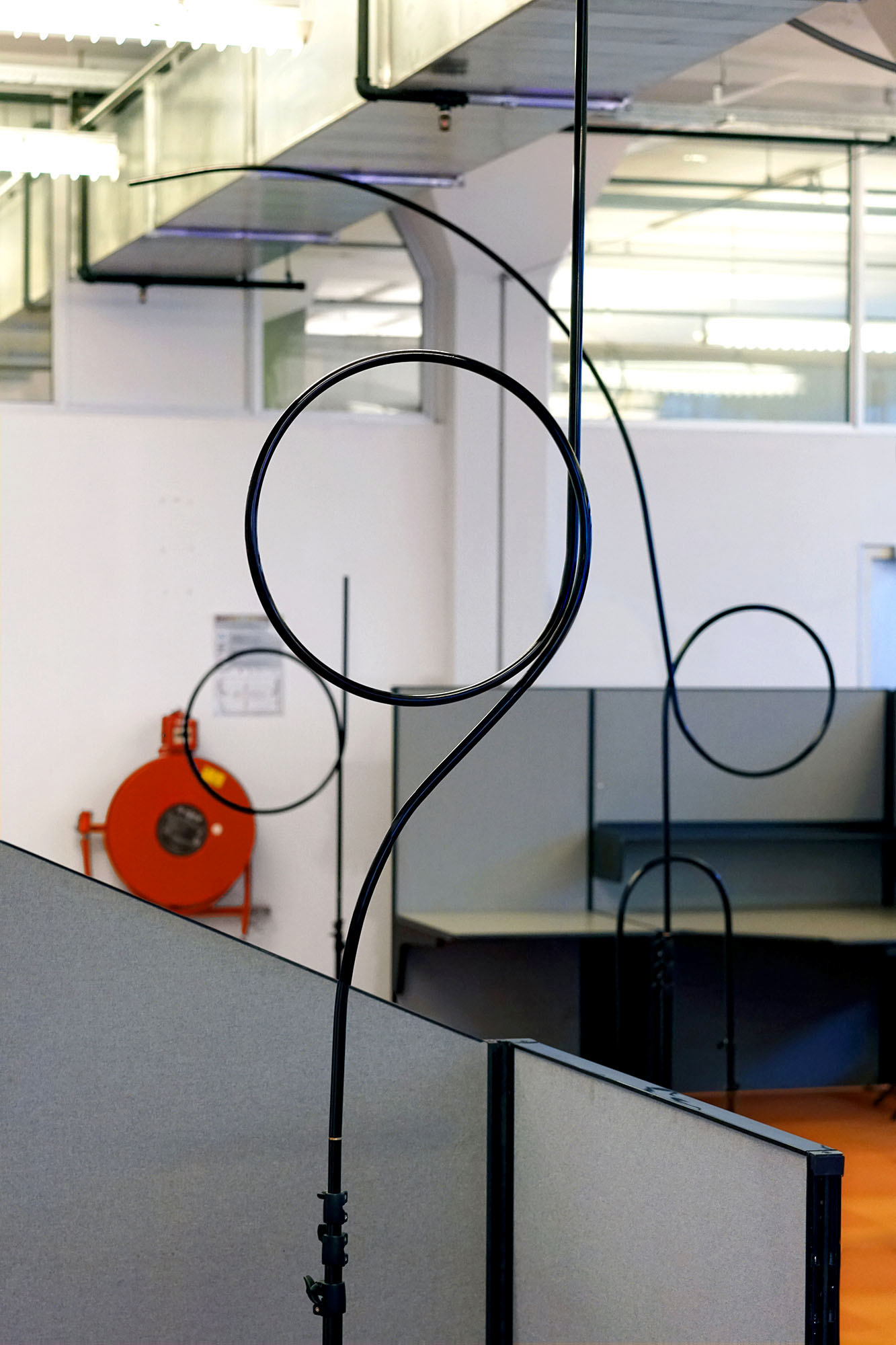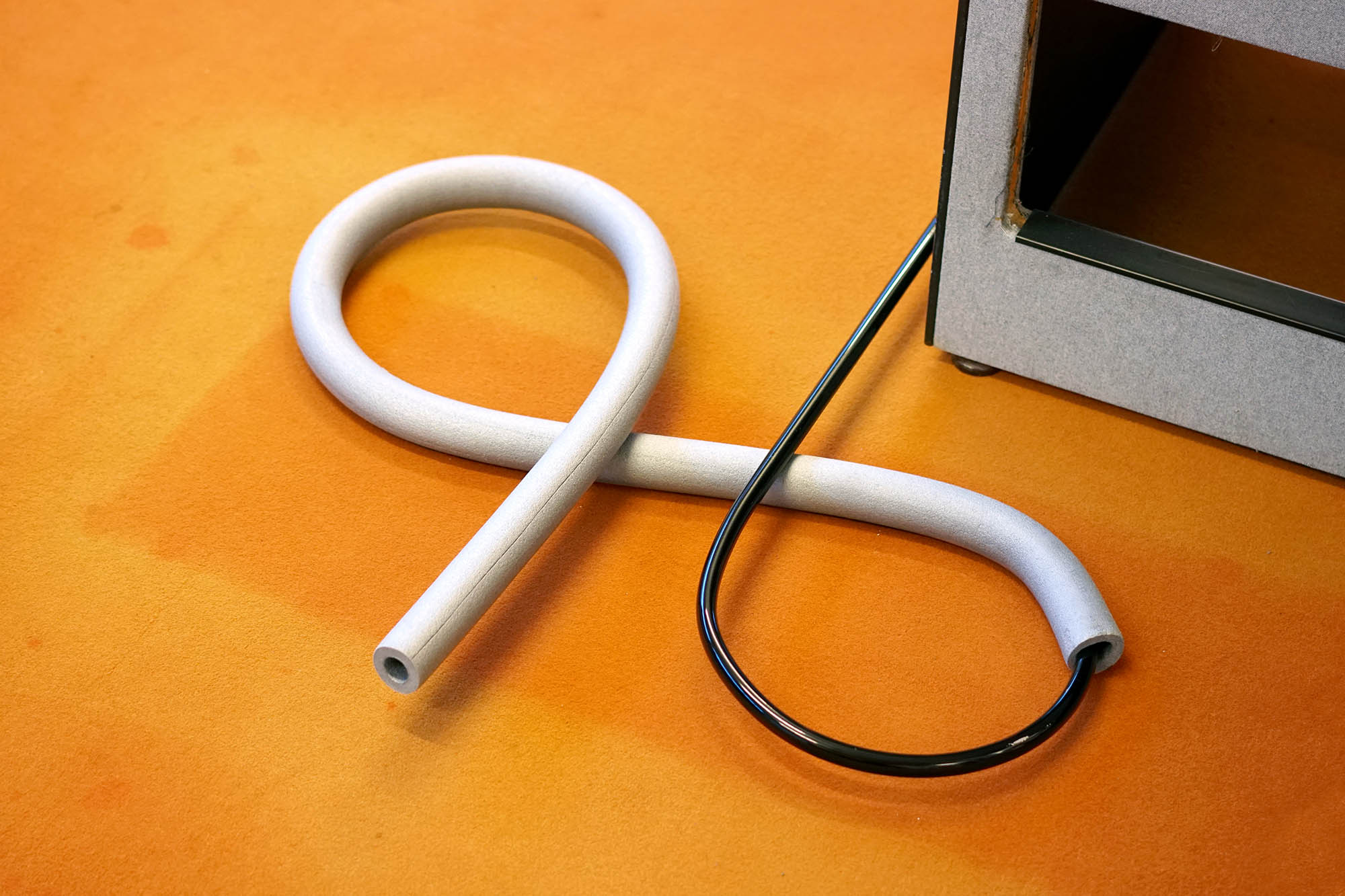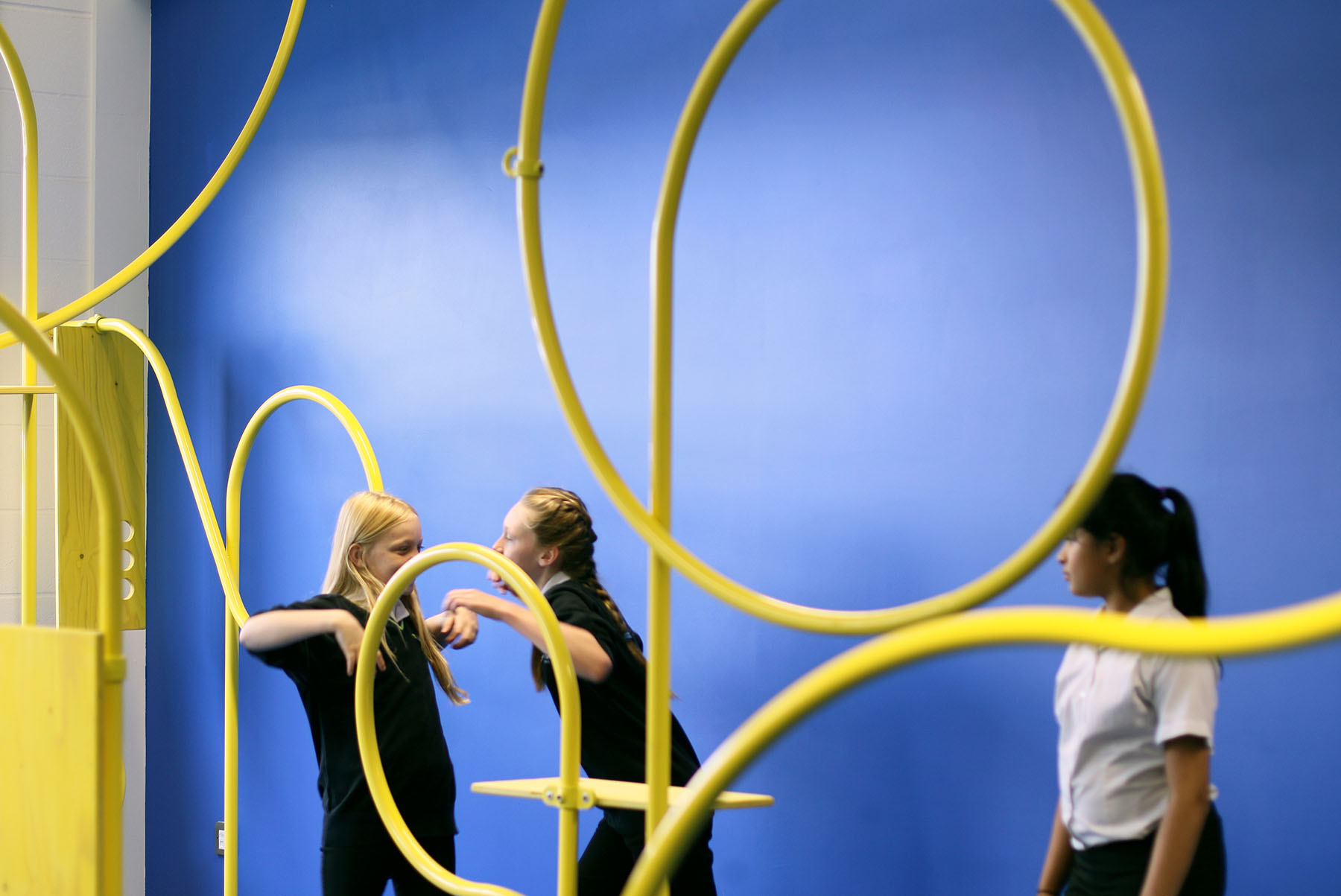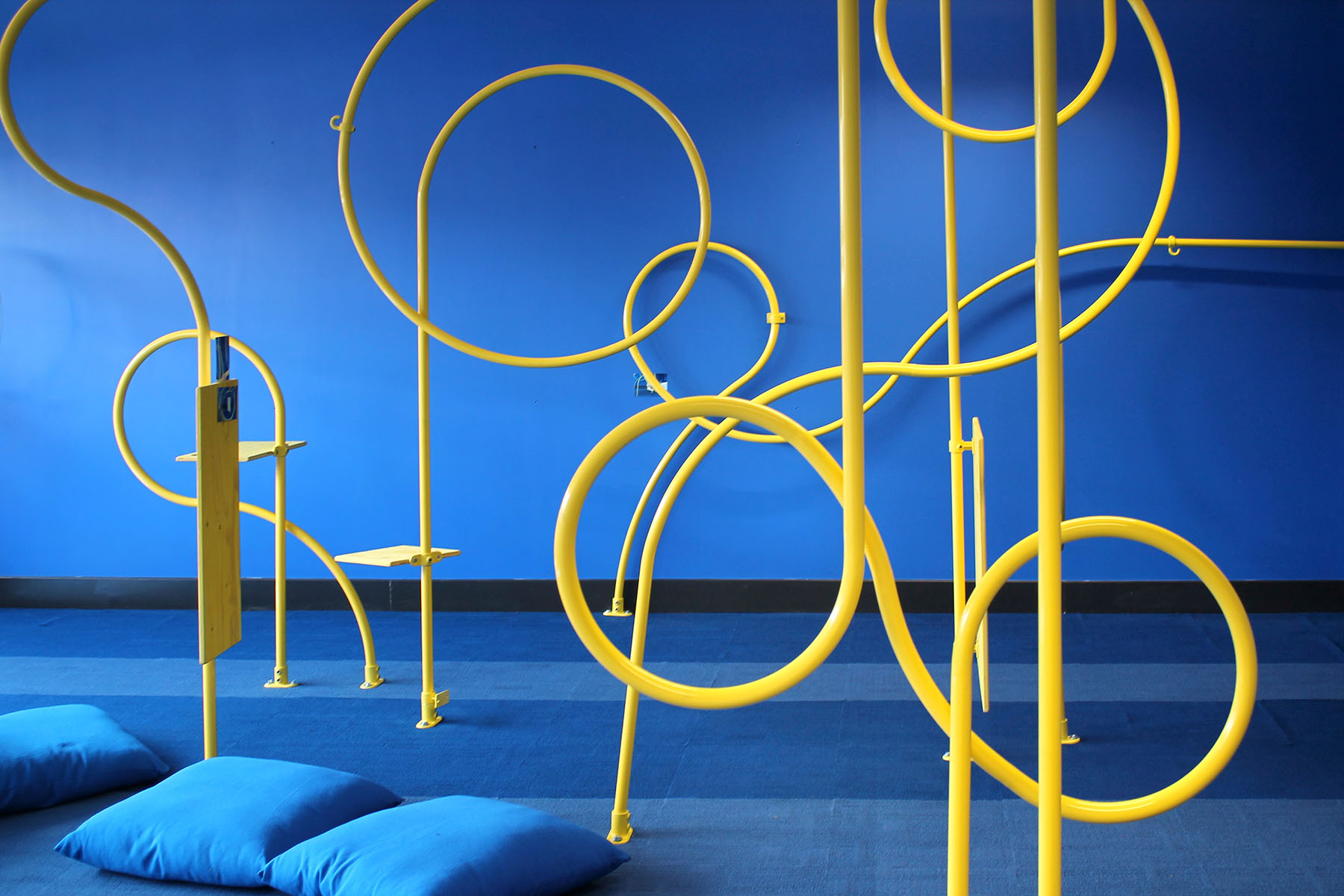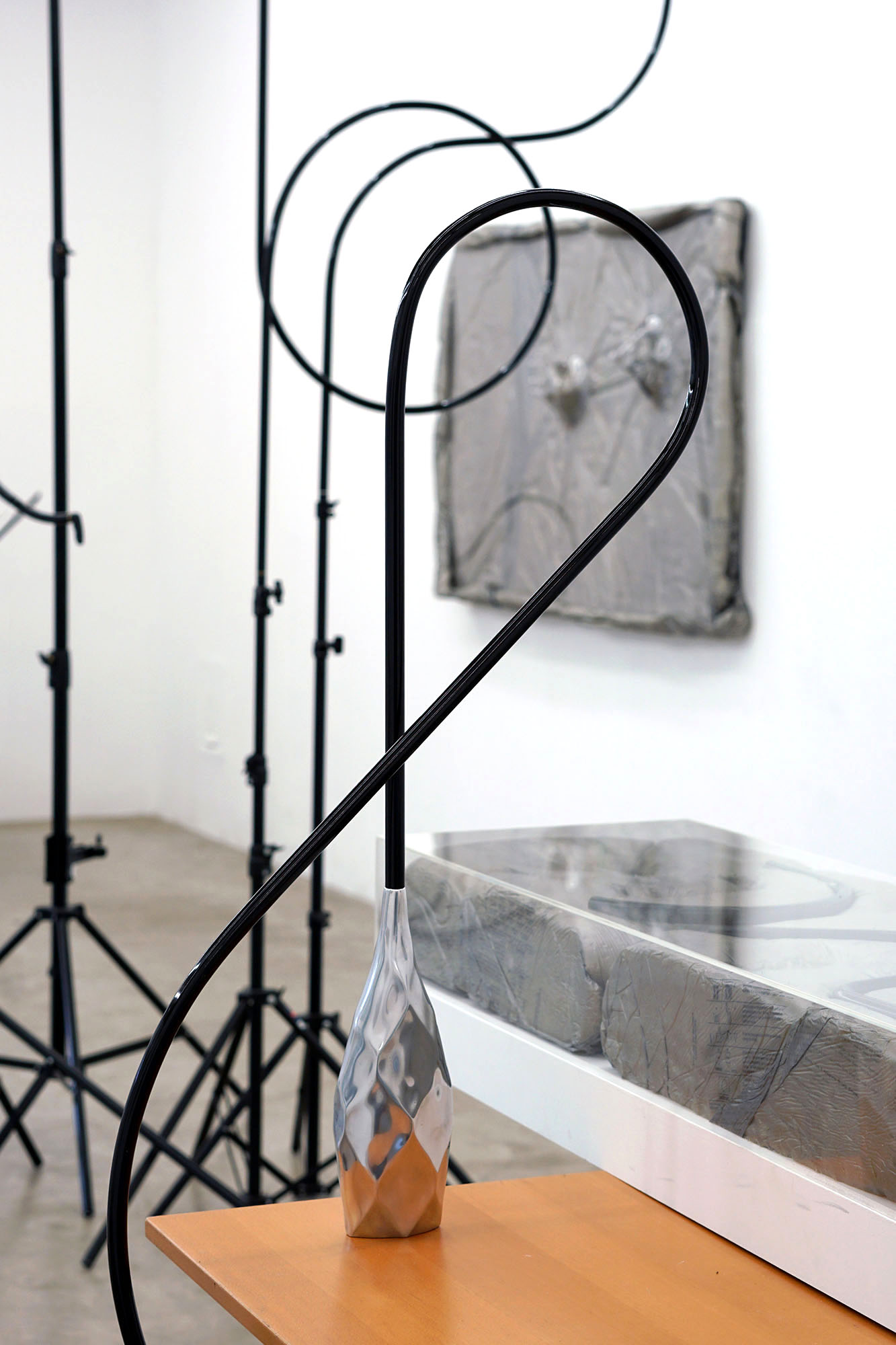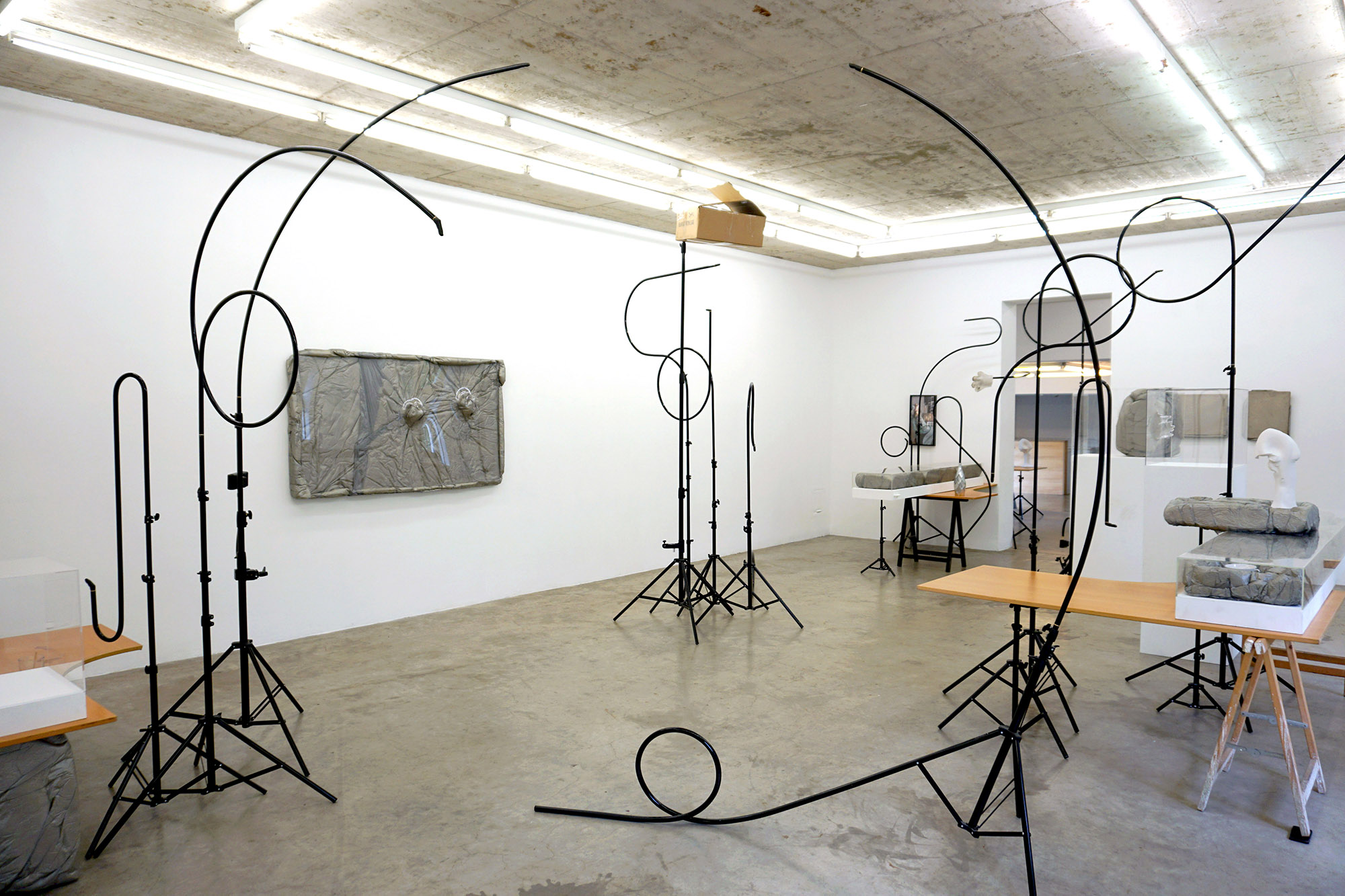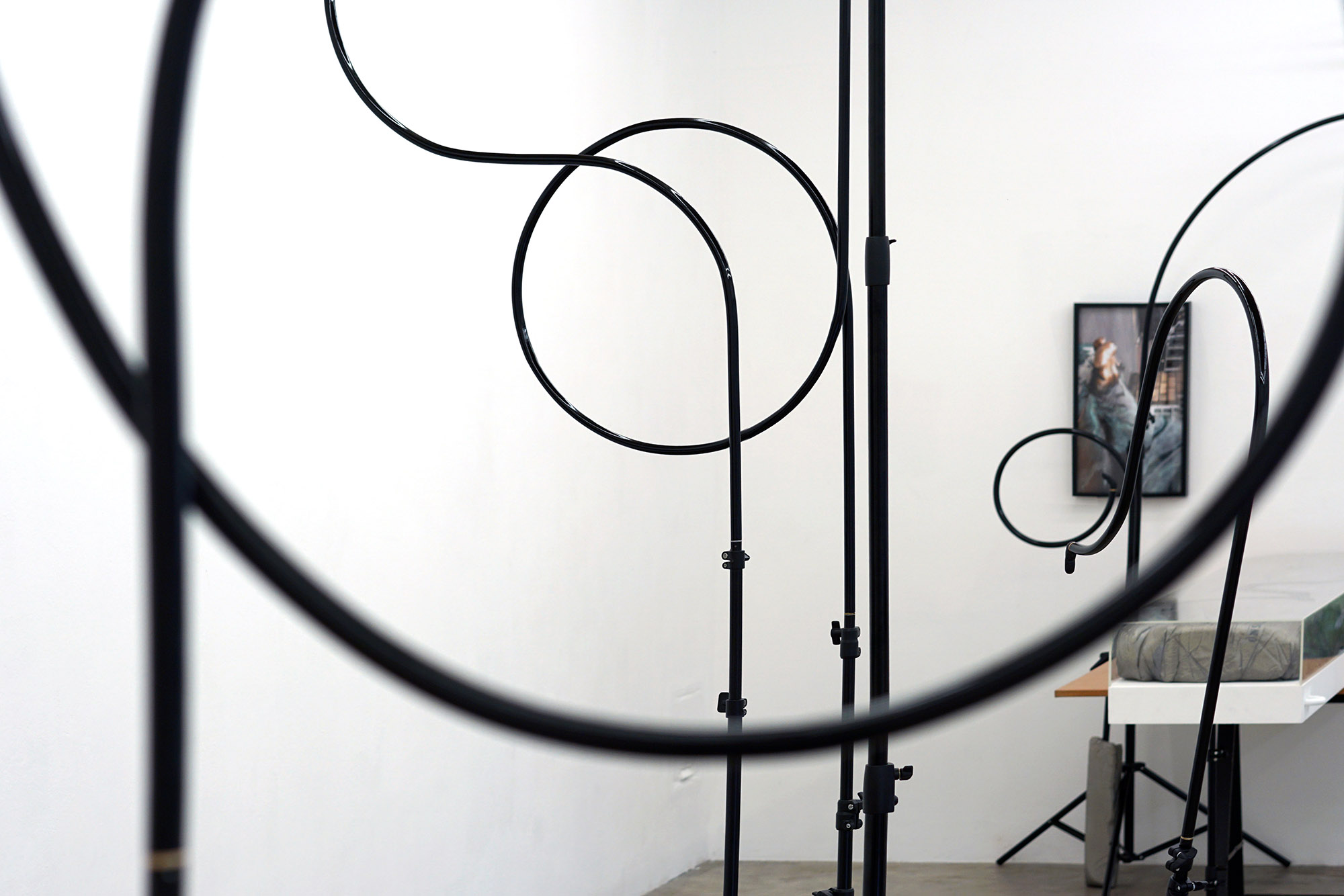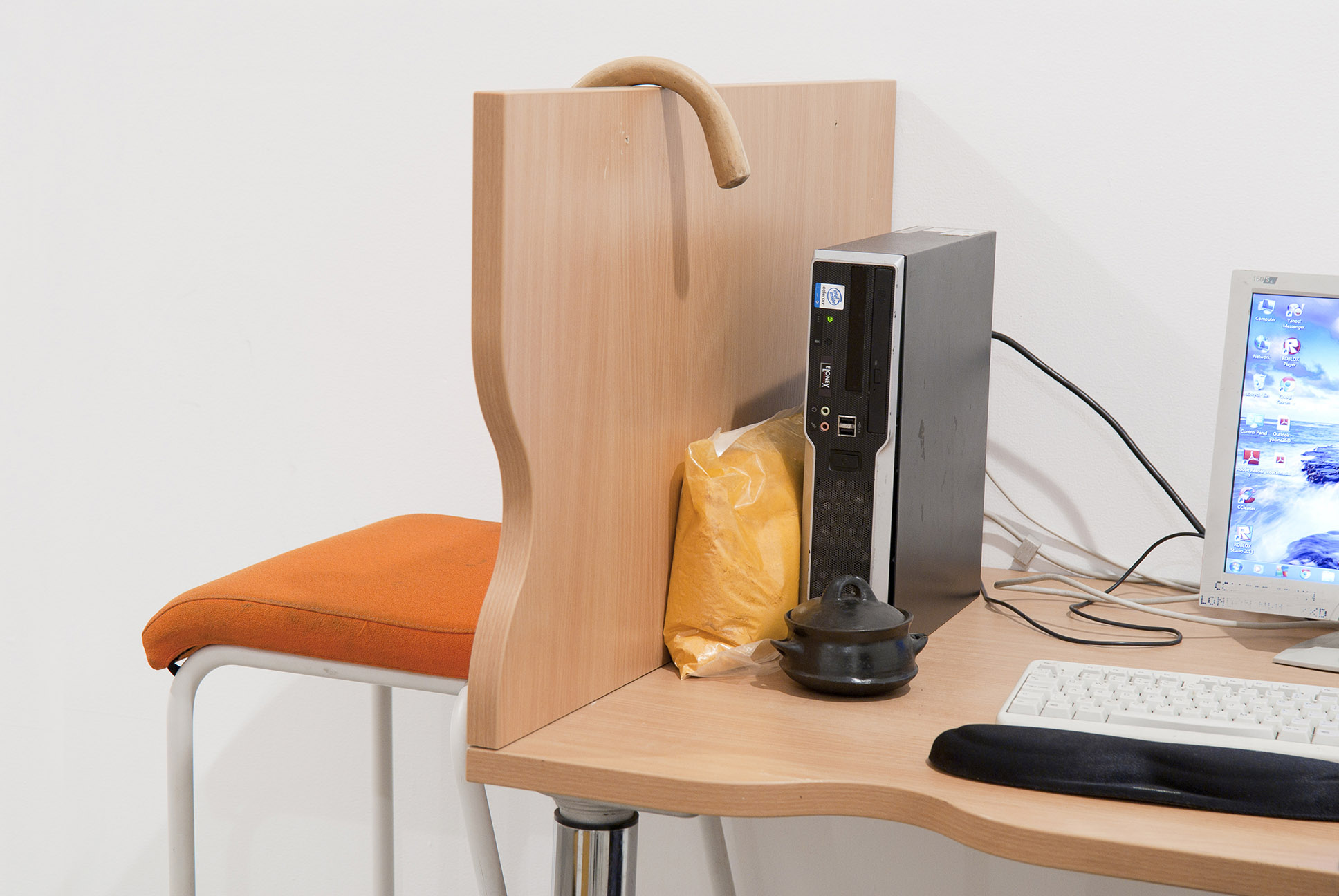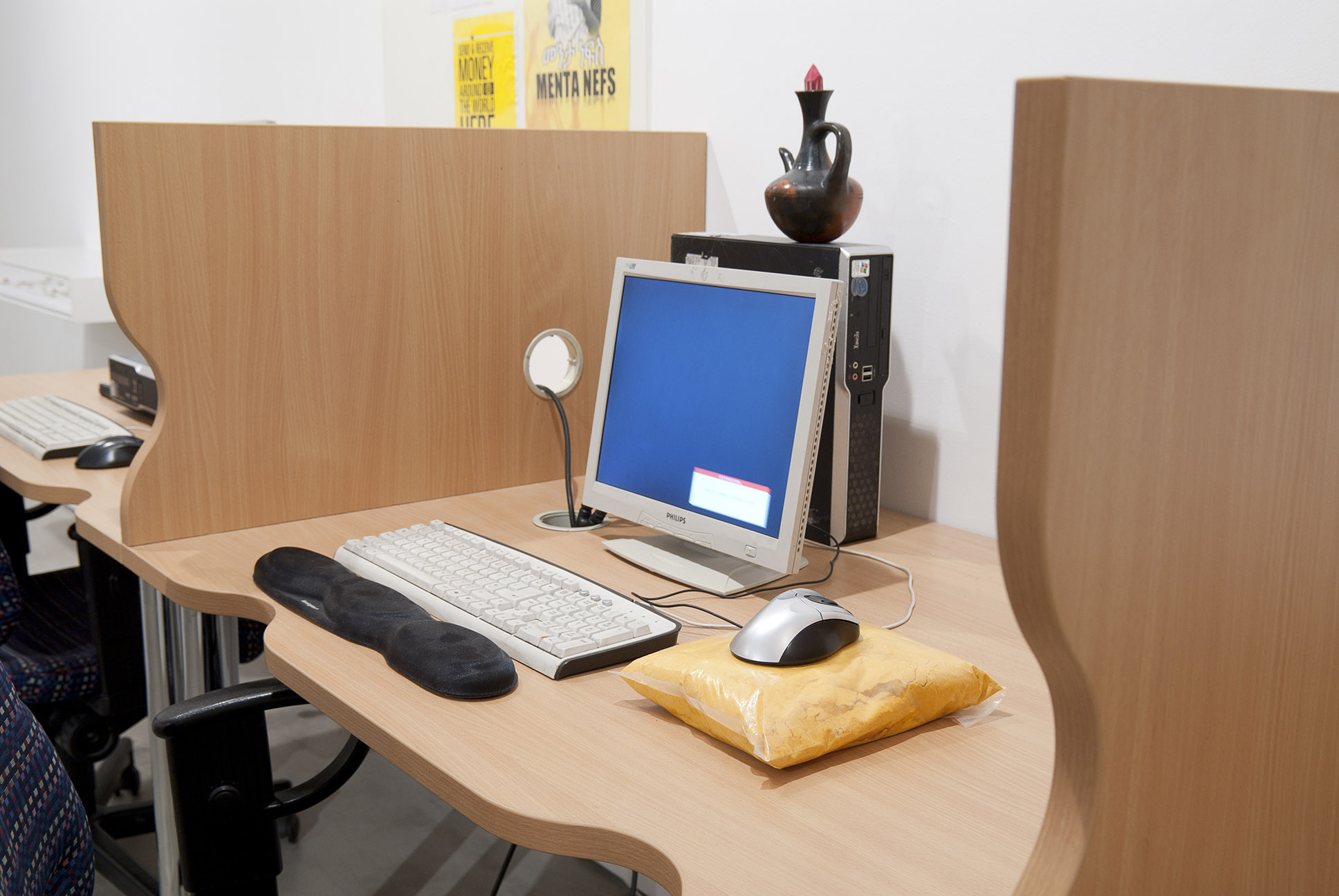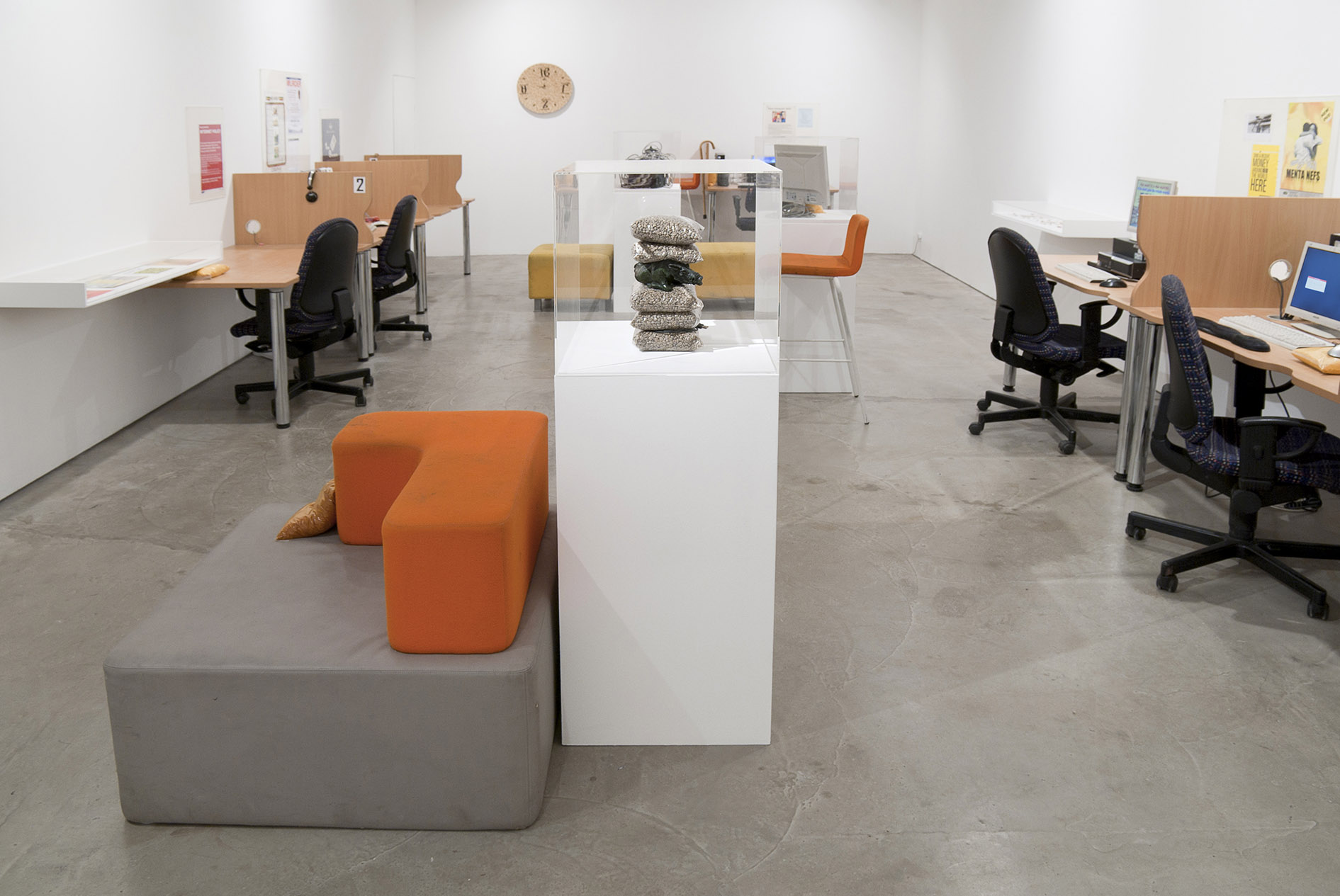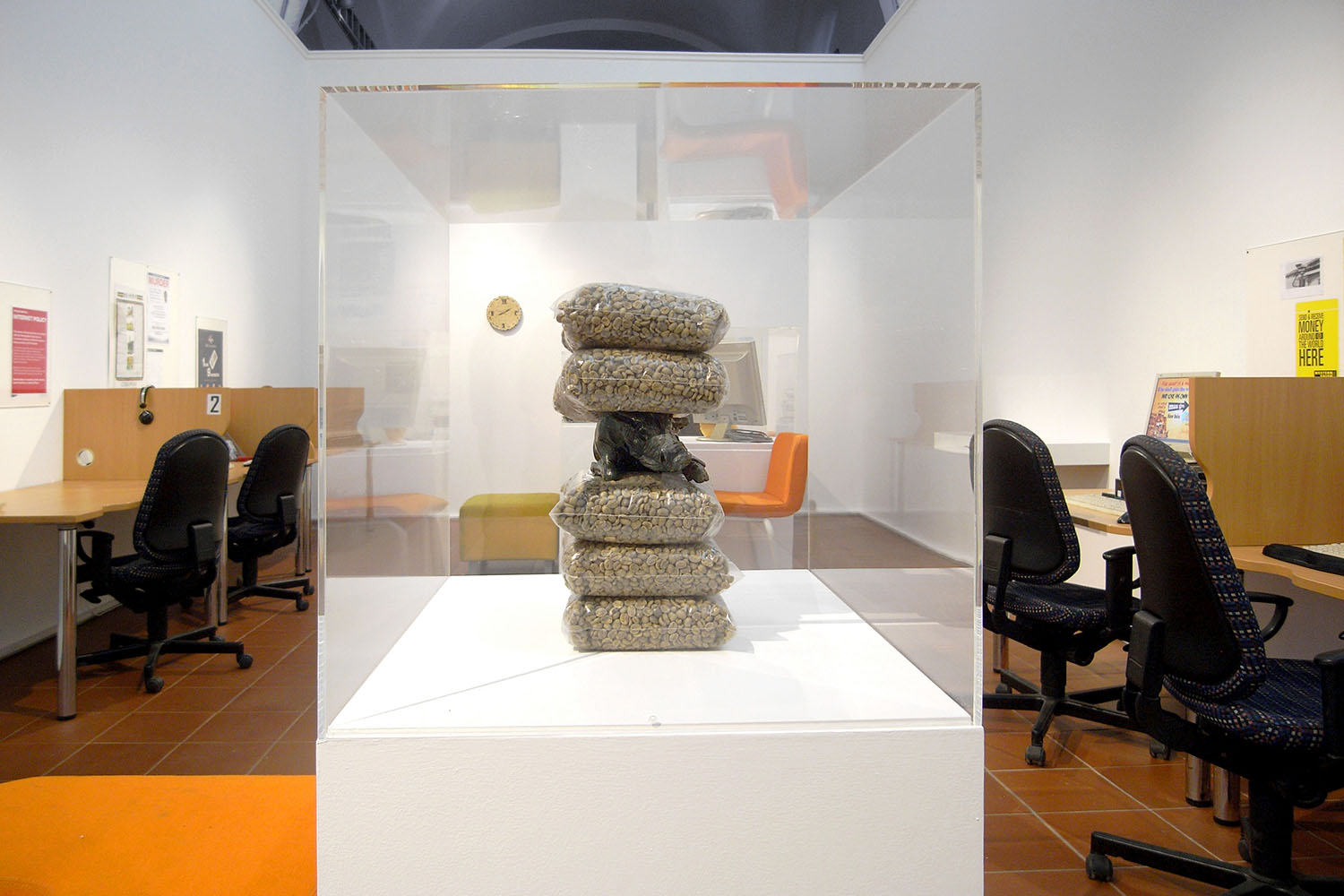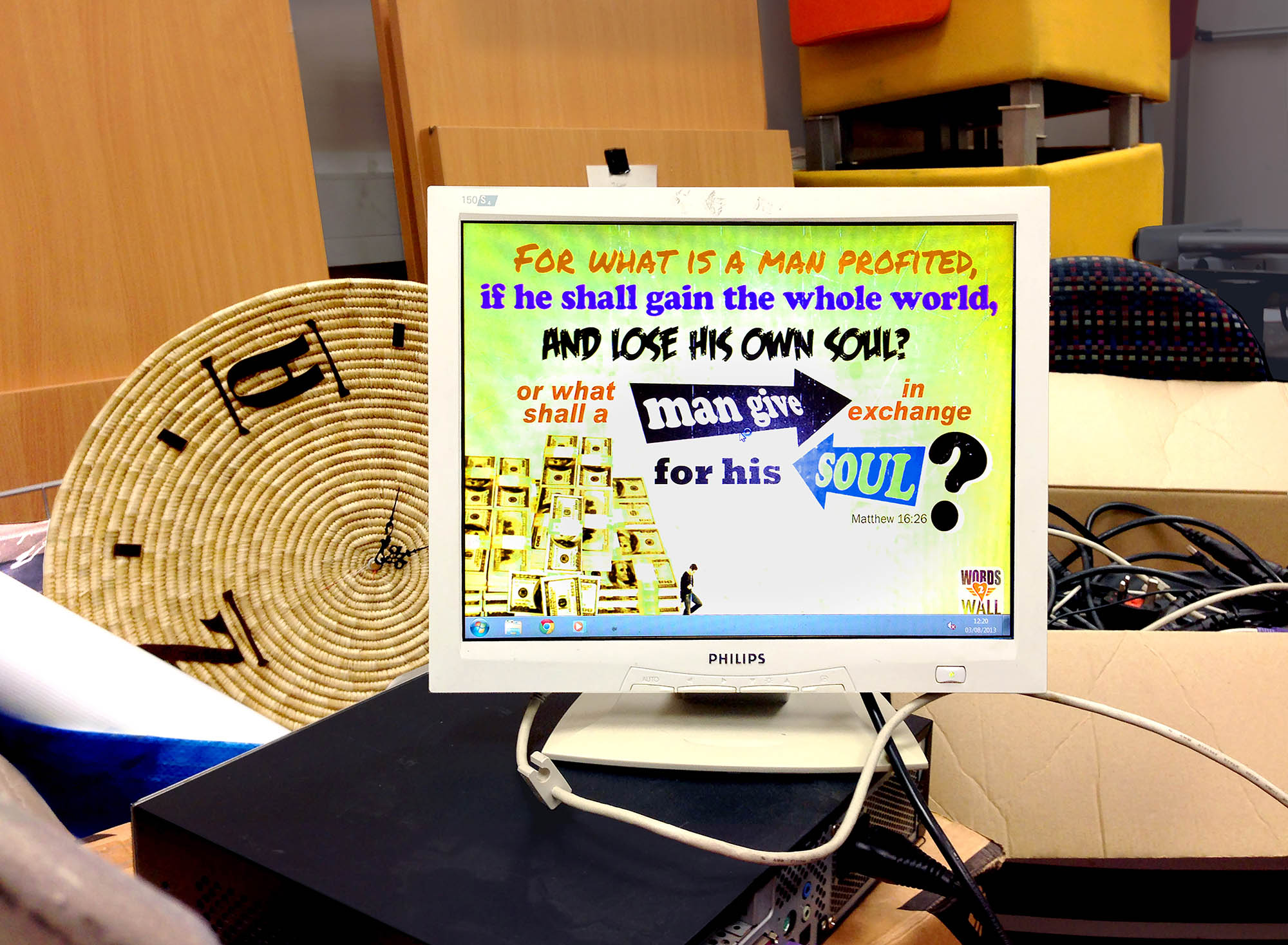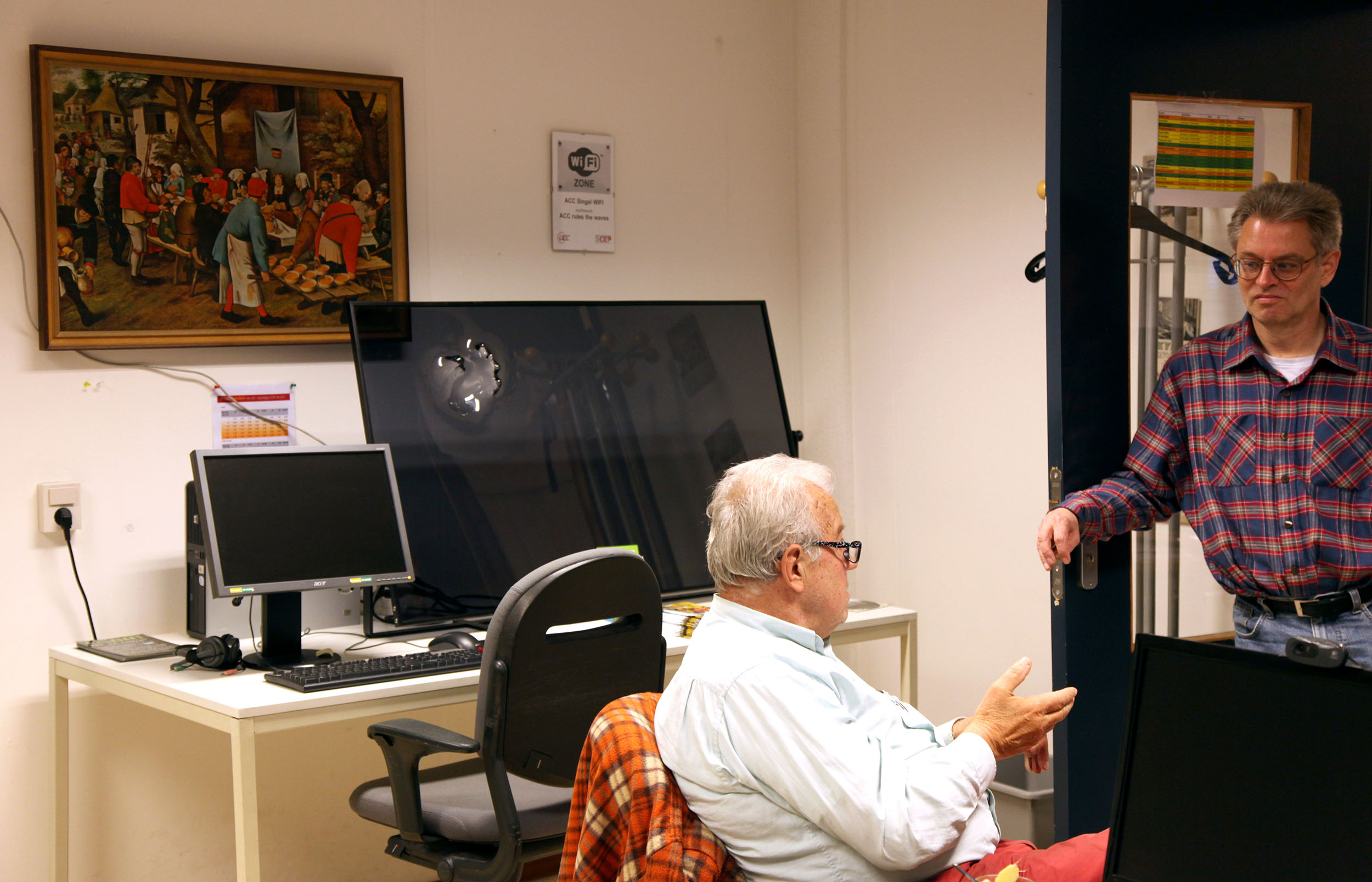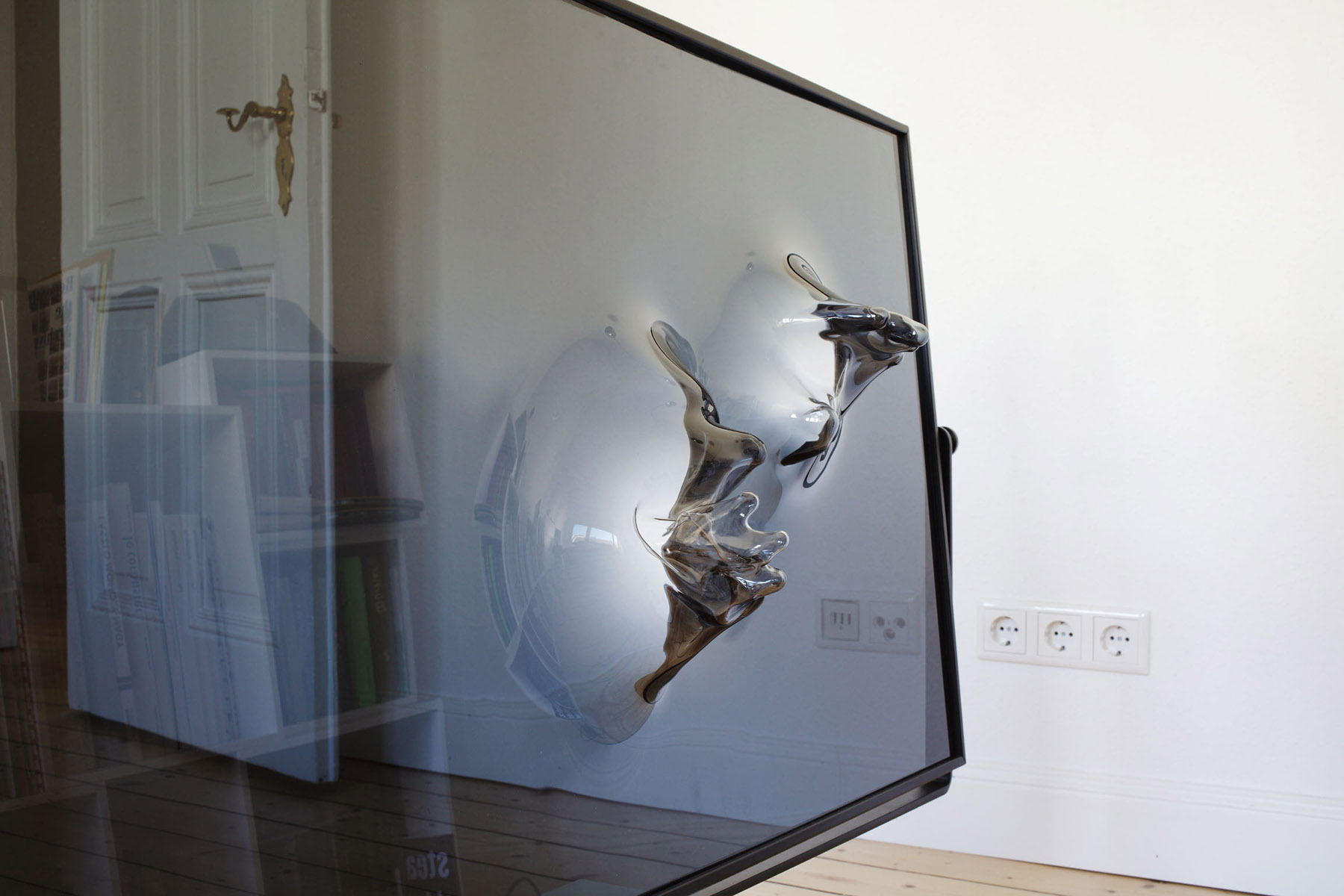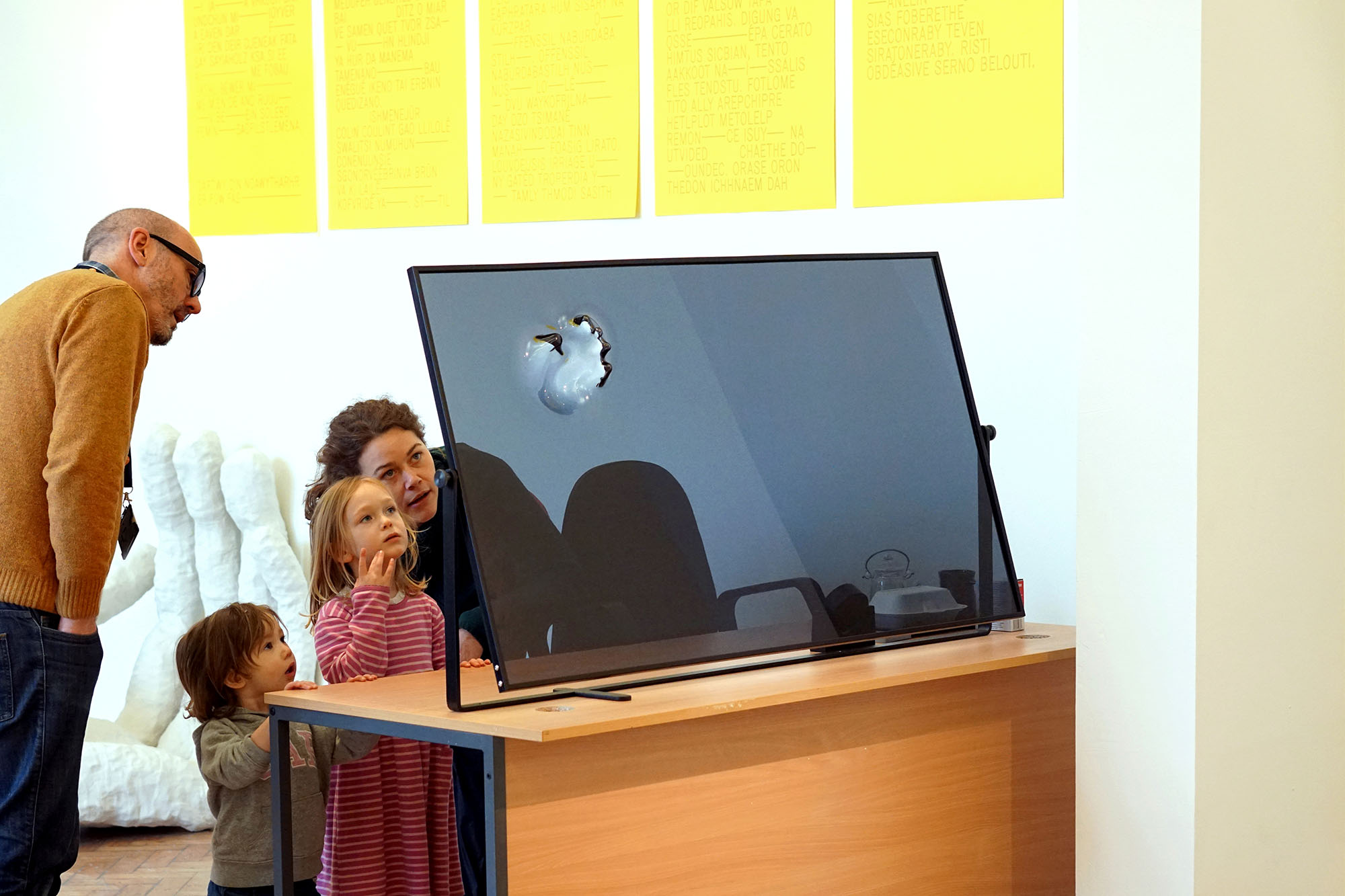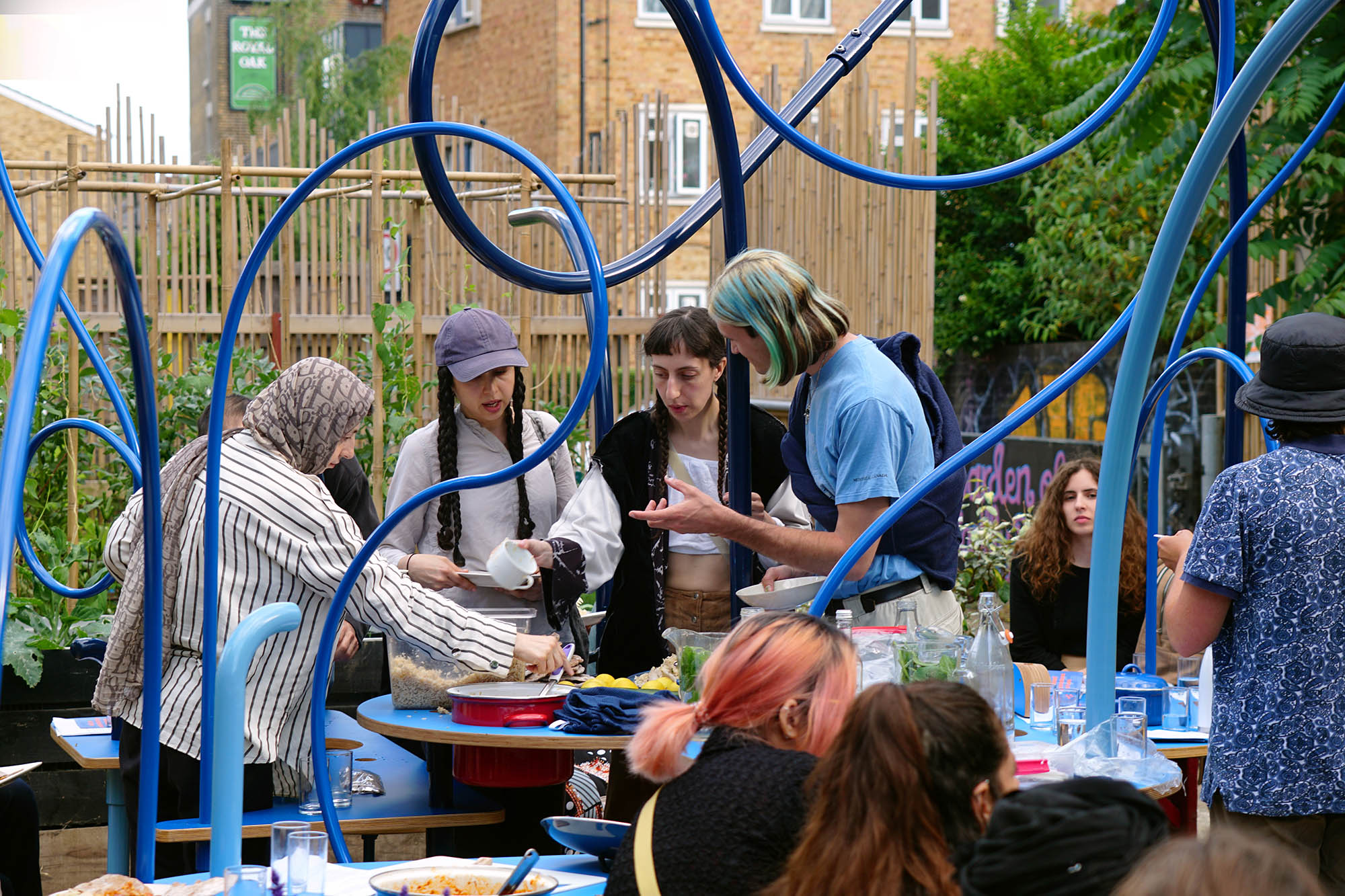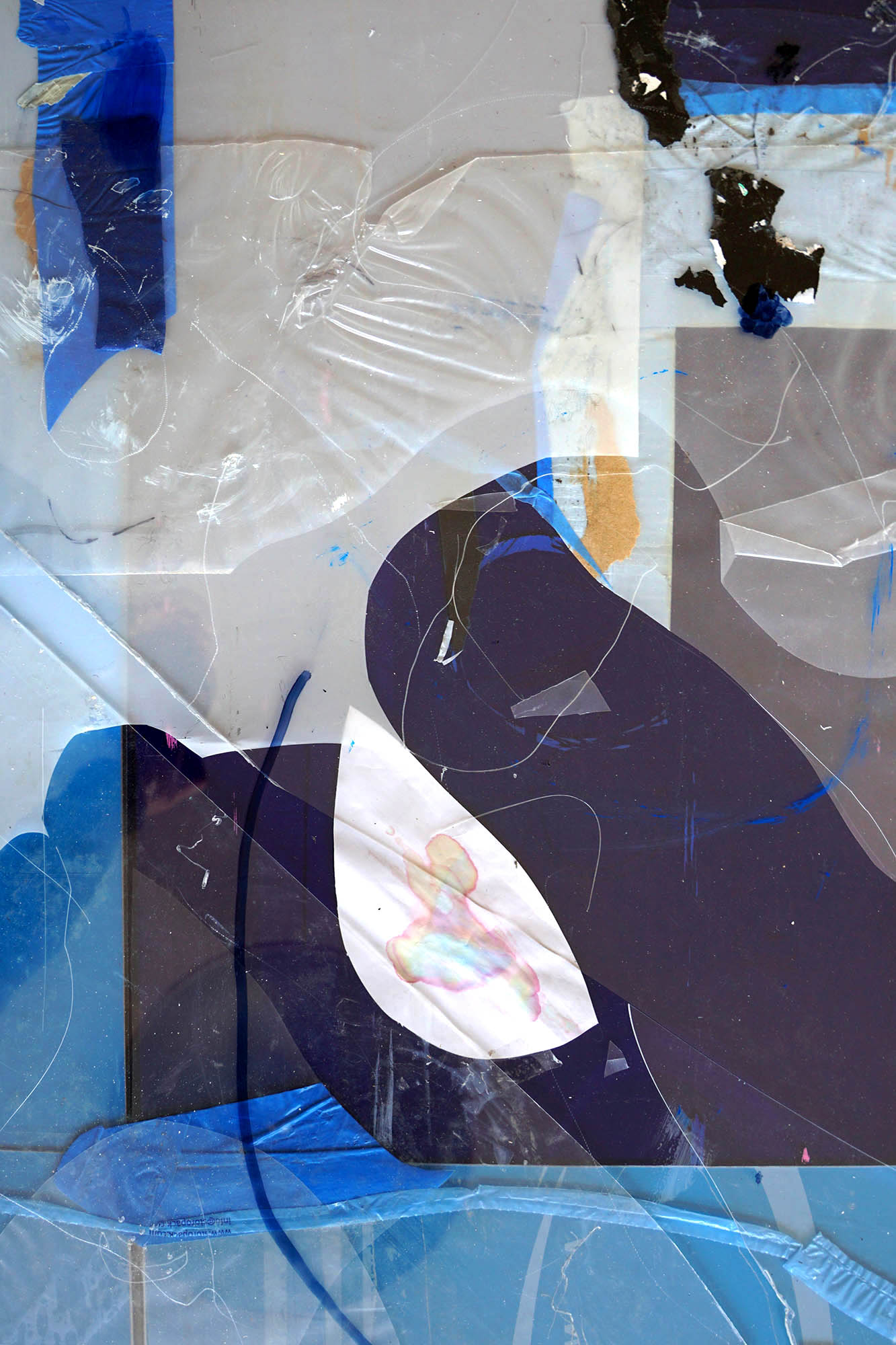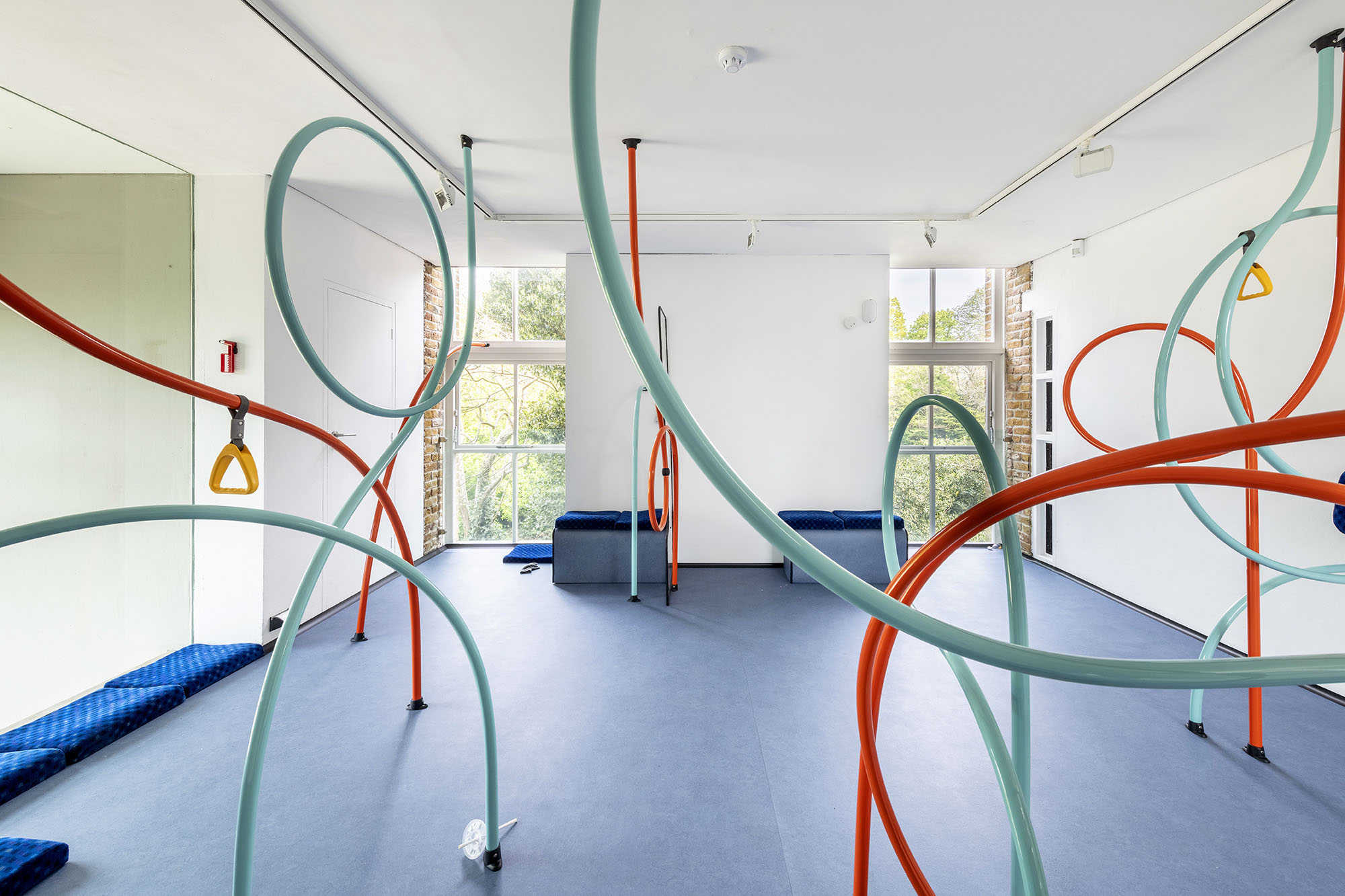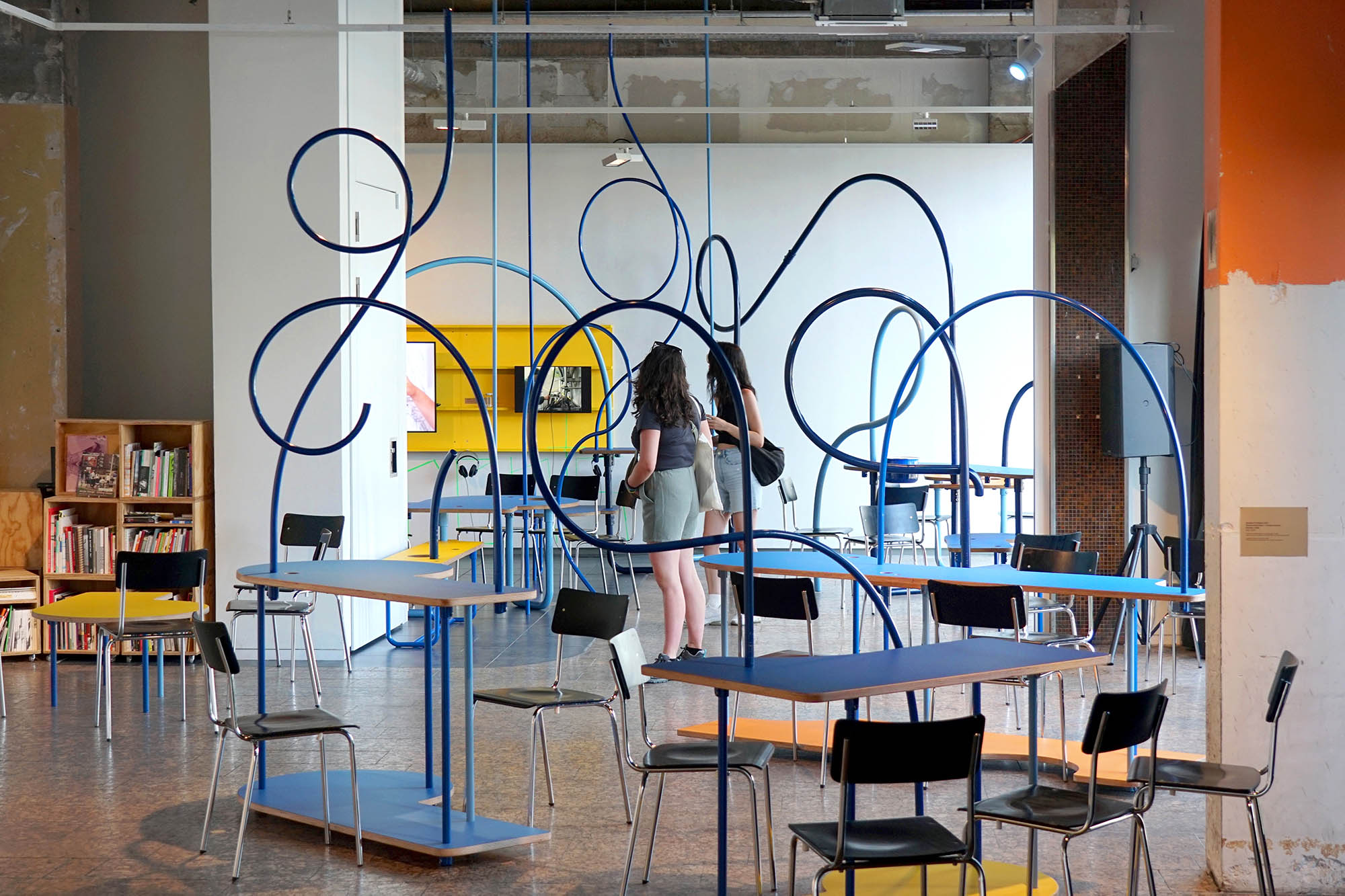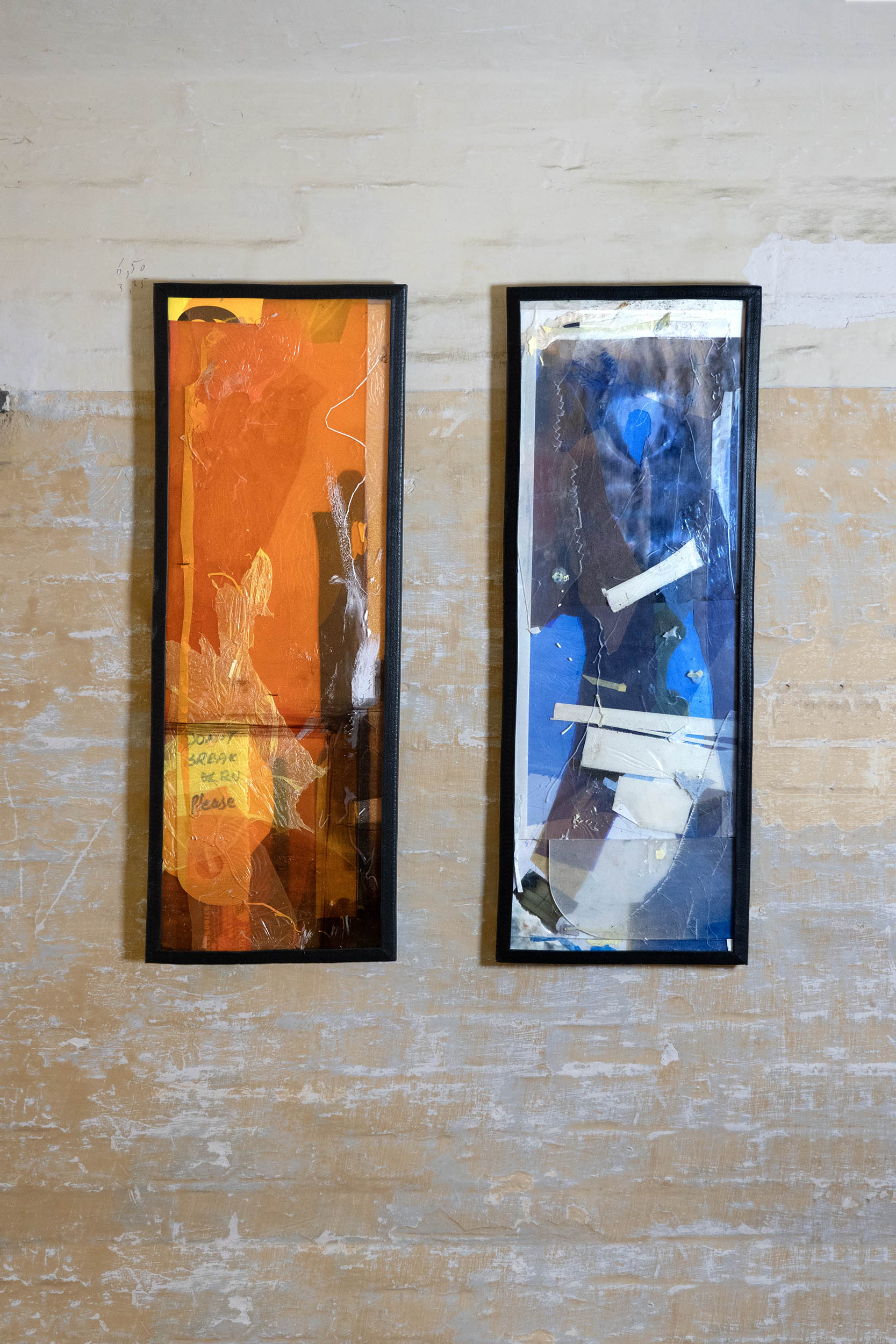'Public Glass'
2024 / 2025
collages from reclaimed acrylic glass, plastic, paper, signage, adhesives, rubber edging
at World Fruit & Vegetable; Kingsland Groceries; nGbK, neue Gesellschaft für bildende Kunst ; Josilda da Conceição and Lea Bridge Express
These collages compile reclaimed display materials, gathered from cornershops and local food venues around London's Ridley Road Market. The layers of used acrylic, handwritten signage, print outs and packaging form a ply of ‘public glass’, drawing tender and abstract portraits of the socially significant spaces they stem from.
The windows of these small corner shops are usually make-shift displays of handwritten notes, sun-bleached print outs, colourful advertisements, public transport information and local announcements. Subsequently they are a form of self-publishing platform and become a reflection of the particular social spaces these stores occupy in the urban landscape. These composite laminate-artworks from this series are a reverence and encouragement to writing, scratching or sticking information to the public glass panels of our cities to regain autonomy and ownership of those interfaces of the build environment, rather than delegating the power to announce to larger commercial entities.
This project was supported by the mobility grant of the Goethe Institute and the Europian Union and the Mondriaan Funds
2024 / 2025
collages from reclaimed acrylic glass, plastic, paper, signage, adhesives, rubber edging
at World Fruit & Vegetable; Kingsland Groceries; nGbK, neue Gesellschaft für bildende Kunst ; Josilda da Conceição and Lea Bridge Express
These collages compile reclaimed display materials, gathered from cornershops and local food venues around London's Ridley Road Market. The layers of used acrylic, handwritten signage, print outs and packaging form a ply of ‘public glass’, drawing tender and abstract portraits of the socially significant spaces they stem from.
The windows of these small corner shops are usually make-shift displays of handwritten notes, sun-bleached print outs, colourful advertisements, public transport information and local announcements. Subsequently they are a form of self-publishing platform and become a reflection of the particular social spaces these stores occupy in the urban landscape. These composite laminate-artworks from this series are a reverence and encouragement to writing, scratching or sticking information to the public glass panels of our cities to regain autonomy and ownership of those interfaces of the build environment, rather than delegating the power to announce to larger commercial entities.
This project was supported by the mobility grant of the Goethe Institute and the Europian Union and the Mondriaan Funds
‘Another Provision’
2021 - ongoing
Public art project
Throughout 2021 and 2022 researcher Dr Hanna Baumann from UCL's Institute of Global Prosperity and I worked collaborativley on a UCL Culture art commission in London.
We initially developed Another Provision with the National Food Service, a UK-wide network of community-run food groups aiming to eliminate food insecurity and tackle the interconnected issues of social isolation and food waste. With London’s NFS branch we shaped a participatory workshop which focused on communal eating spaces; in particular, we wanted to think about how to de-stigmatise the often institutional or unwelcoming spaces used for dispensing free-of-charge food. We heard from participants who didn’t have spaces to eat at home, or preferred eating alone as they felt ashamed to eat in front of others. The spaces they jointly imagined and modelled aimed to bring people together - but considered people’s various needs by offering different areas, types of seating and approaches . This process allowed us to understand what is needed in shared food spaces and to create a sense of community among disparate users. The insights fed into the ultimate choice of a mobile installation that can be set up in any location where community food projects want to bring people together.
This project was part of a Trellis Public Art Commission and was realised in collaboration with National Food Service London. Another Provision is is supported by the Mondriaan Fund, the Leverhulme Trust and UCL Institute for Global Prosperity.
'Public Glass'
2024 / 2025
collages from reclaimed acrylic glass, plastic, paper, signage, adhesives, rubber edging
at nGbK, neue Gesellschaft für bildende Kunst and Josilda da Conceição Gallery
This project was supported by the mobility grant of the Goethe Institute and the Europian Union and the Mondriaan Funds
2024 / 2025
collages from reclaimed acrylic glass, plastic, paper, signage, adhesives, rubber edging
at nGbK, neue Gesellschaft für bildende Kunst and Josilda da Conceição Gallery
This project was supported by the mobility grant of the Goethe Institute and the Europian Union and the Mondriaan Funds
‘Scenes of the World’
2020
Installation on-site
at Manifesta13, Les Parallèles du Sud, Marseille and Pump House Gallery, London
Scenes of the World is a spatial installation considering the civic potential of local busses and their social significance for the diverse communities using public transport daily. The sculptural intervention first took place at Pump House Gallery in London and later at Coco Velten in Marseille, a cultural institution based in the premises of the former municipal headquarters of the public transport department, the 'Direction des Routes rue Bernard du Bois'.
Throughout the duration of Manifesta it was accompanied by an event programme by Diaspore which invited artists and community groups from Marseille and beyond to work collaboratively and build collective narratives. Using storytelling the programme questioned how ideas of territorial intimacy, identity, migration and cohabitation can become progressive infrastructures to rethink the way we live together.
The event program included contributions by; Lea Collet & Swan L’haoua, Theo Turpin, Marleen Boschen, Charles Pryor, Sara Rodrigues, Lou Atessa, Soumiya Sassi, Matteo Demaria & Asso SOS residents, Andrea Moreno & Soumiya Sassy
This exhibition was supported by Region Sud, Mondriaan Fund, Wandsworth Arts, Groupe SOS and Radio Bernard.
'SelfCalibration'
2016
On-site installation at Shopfitters Express
SelfCalibration was a sculpture installation on the site of a local shop-fitter, a business offering slat-wall interiors, lighting, touchscreen tills and barcode systems. The series of screen-based sculptures was seamlessly integrated into the shop's displays, drawing attention to the omnipresent stimulus of public screen interfaces and our desire to fondle our everyday devices for personal comfort.
During the weeks of the art festival Shopfitters Express went out of business and it was closed down and dismantled without announcement. Until the last day visitors were welcome to enter the space and find the sculptures amongst the last few items left in the bare shop front.
2016
On-site installation at Shopfitters Express
SelfCalibration was a sculpture installation on the site of a local shop-fitter, a business offering slat-wall interiors, lighting, touchscreen tills and barcode systems. The series of screen-based sculptures was seamlessly integrated into the shop's displays, drawing attention to the omnipresent stimulus of public screen interfaces and our desire to fondle our everyday devices for personal comfort.
During the weeks of the art festival Shopfitters Express went out of business and it was closed down and dismantled without announcement. Until the last day visitors were welcome to enter the space and find the sculptures amongst the last few items left in the bare shop front.
‘Early Adopters’
2017
Modular tripod system, Action Office 2 furniture
at Art Rotterdam, commissioned by P/////AKT
The installation intersects a modular sculpture system with orginal elements from Herman Miller’s design standard Action Office 2, the contract furniture series, which became the template for office labour worldwide.
2017
Modular tripod system, Action Office 2 furniture
at Art Rotterdam, commissioned by P/////AKT
The installation intersects a modular sculpture system with orginal elements from Herman Miller’s design standard Action Office 2, the contract furniture series, which became the template for office labour worldwide.
‘Findings on Palpation’
2018
Installation and complete training room for medical examination, on loan from university hospital UMC Amsterdam
at P////AKT, Amsterdam
Visitors entered the installation via an extermination room in which medical students would usually train rectal examination with actors, observed by teaching staff through a one-way mirror. This replicated space featured furniture and educational material on loan from the identical training facility at Amsterdam’s university hospital.
The exhibition also featured a moving image work resulting from the shared research of Johann Arens and Dr. Alejandro Granados. Point of departure was the simple observation that both, medical training practice and experientially driven art are conditioned by a shared frustration; the limitation of touch. All findings of the collaboration were amalgamated in a two-channel film unpacking the relevance of tactility and contact-based simulation tools and their implications for the plasticity of sculpture as well as human anatomy.
The exhibition and the accompanying event programme was part of Public Art Amsterdam, realised in collaboration with Amsterdam UMC and generously supported by Amsterdams Fonds voor de Kunst, Mondriaan Funds and Ammodo. The film project was also supported by SPACE Art+Technology Residency Program, Centre for Engagement and Simulation Science, Imperial College London, EPSRC London Deanery and Health Education North West London.
2018
Installation and complete training room for medical examination, on loan from university hospital UMC Amsterdam
at P////AKT, Amsterdam
Visitors entered the installation via an extermination room in which medical students would usually train rectal examination with actors, observed by teaching staff through a one-way mirror. This replicated space featured furniture and educational material on loan from the identical training facility at Amsterdam’s university hospital.
The exhibition also featured a moving image work resulting from the shared research of Johann Arens and Dr. Alejandro Granados. Point of departure was the simple observation that both, medical training practice and experientially driven art are conditioned by a shared frustration; the limitation of touch. All findings of the collaboration were amalgamated in a two-channel film unpacking the relevance of tactility and contact-based simulation tools and their implications for the plasticity of sculpture as well as human anatomy.
The exhibition and the accompanying event programme was part of Public Art Amsterdam, realised in collaboration with Amsterdam UMC and generously supported by Amsterdams Fonds voor de Kunst, Mondriaan Funds and Ammodo. The film project was also supported by SPACE Art+Technology Residency Program, Centre for Engagement and Simulation Science, Imperial College London, EPSRC London Deanery and Health Education North West London.
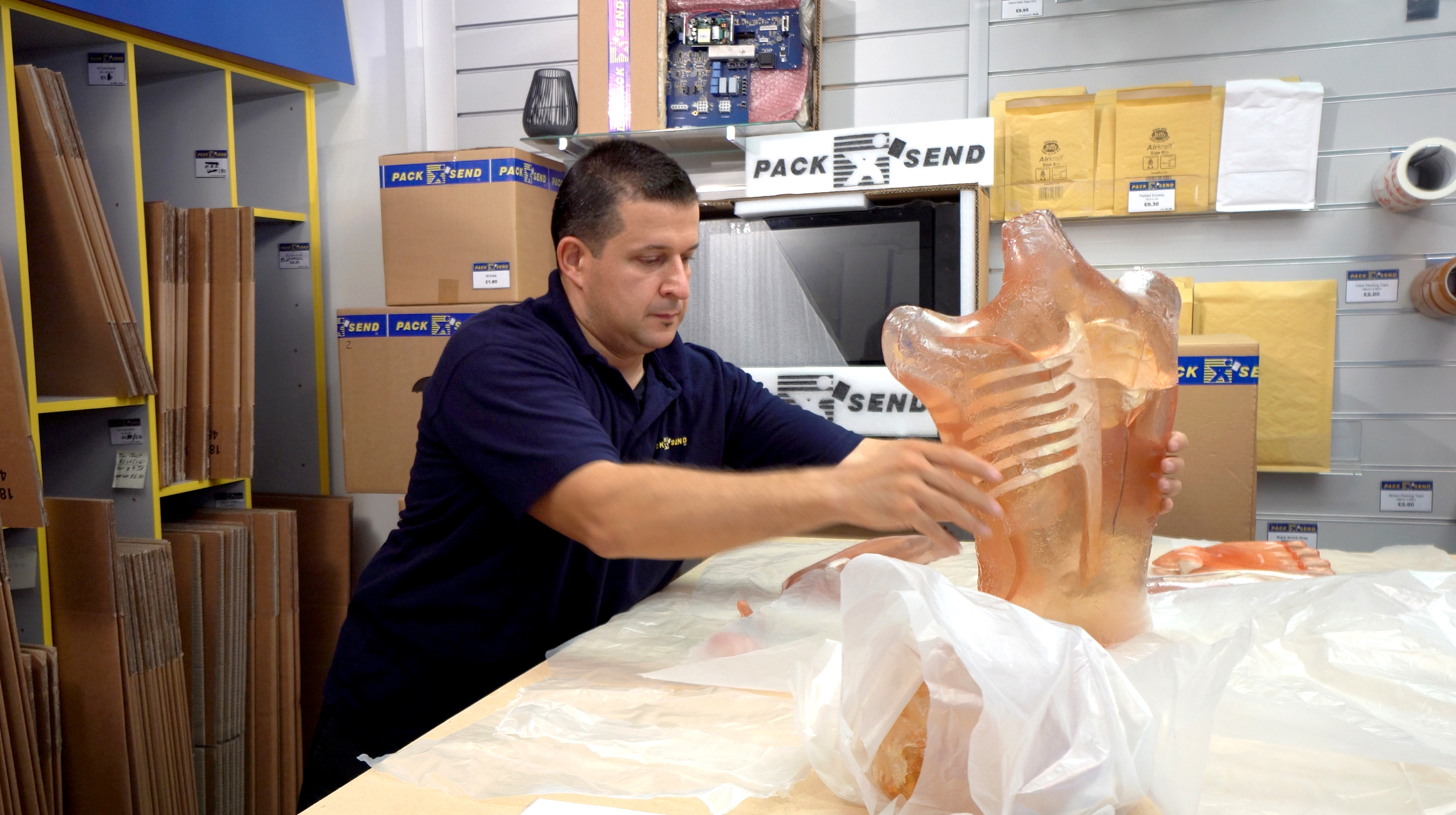
‘Immobilisations’
2018
Installation on-site at Bold Tendencies, London
This installation adopted the interior of a shipping specialist Pack&Send in Elephant and Castle including their packaging method Foam-In-Place. These bespoke foam moulds, commonly used to create customised cradles for fragile objects in transit, were the basis for a new series of on-site sculptures. The very same expantion foam pillows also get applied in hospital contexts for patient immobilisation during computed tomography scans and other medical imaging. Accordingly, the packed objects in the installation were sculptures derived from anthropomorphic training phantoms; medical dummies used in preparation of radiography and CT scanning.
This work also eventuated in theunboxing video ‘Immobilisation’, filmed at the original site of the shipping specialists and subsequently published by Oxford Artistic and Practice Research Platform.
2018
Installation on-site at Bold Tendencies, London
This installation adopted the interior of a shipping specialist Pack&Send in Elephant and Castle including their packaging method Foam-In-Place. These bespoke foam moulds, commonly used to create customised cradles for fragile objects in transit, were the basis for a new series of on-site sculptures. The very same expantion foam pillows also get applied in hospital contexts for patient immobilisation during computed tomography scans and other medical imaging. Accordingly, the packed objects in the installation were sculptures derived from anthropomorphic training phantoms; medical dummies used in preparation of radiography and CT scanning.
This work also eventuated in the
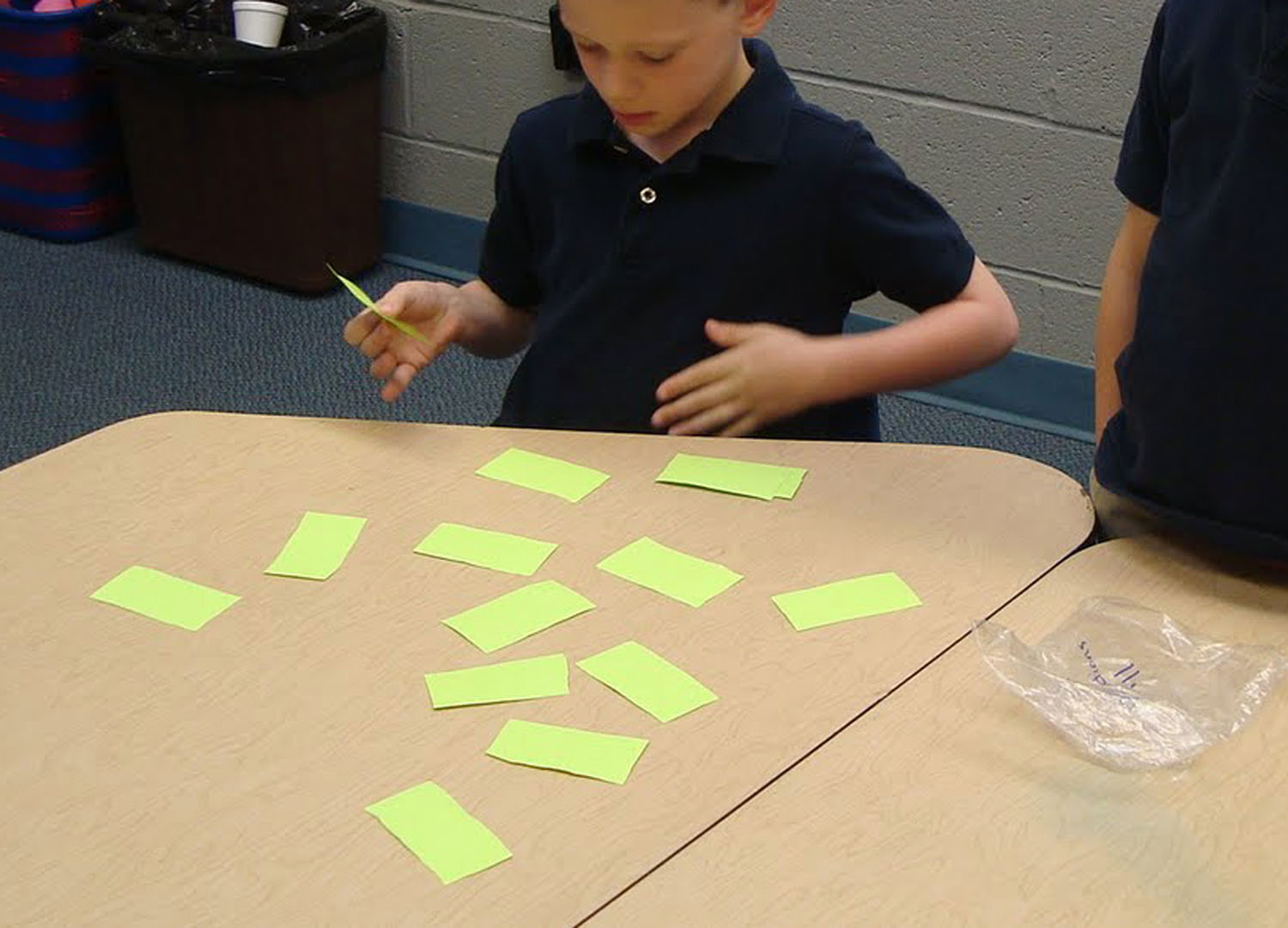
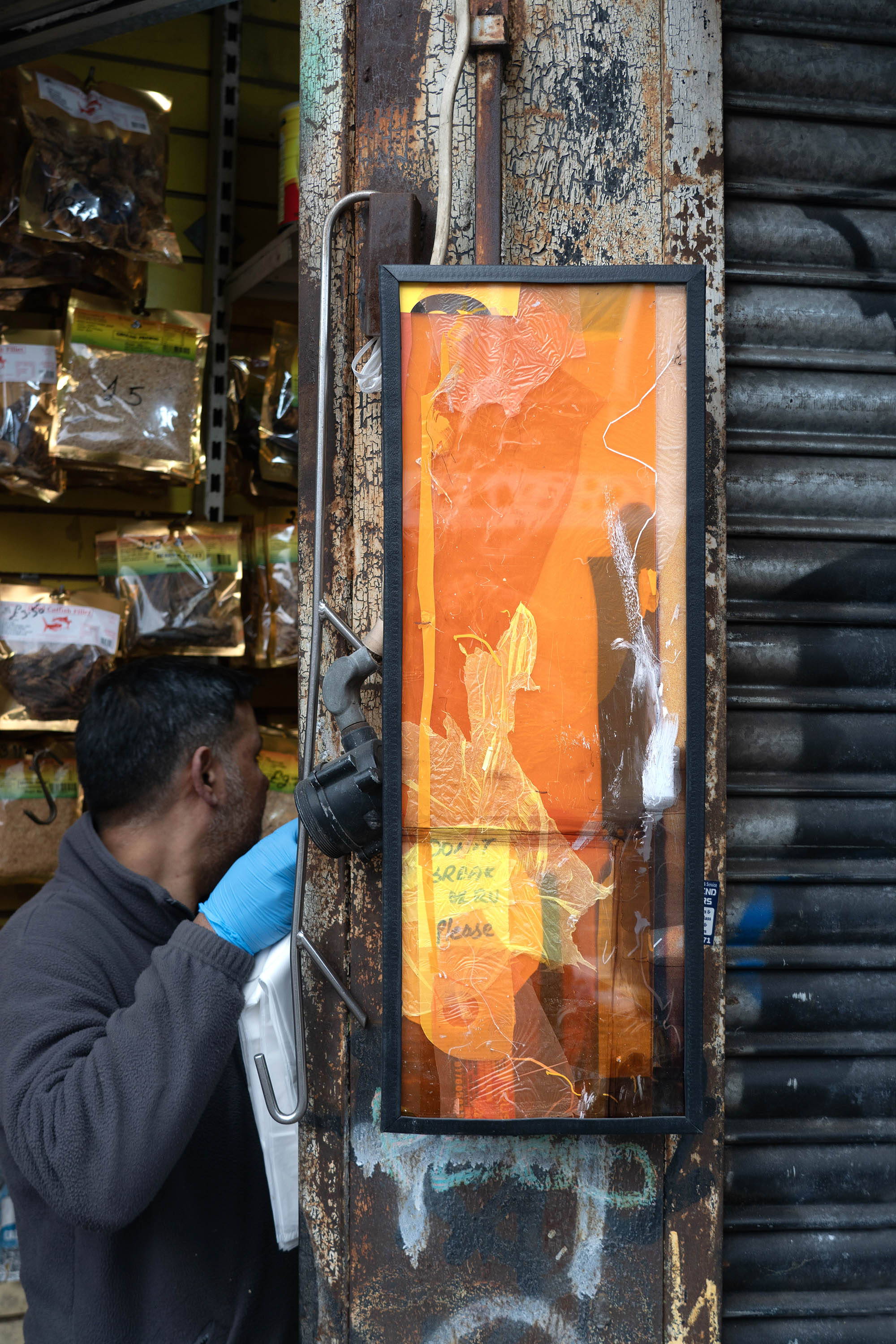
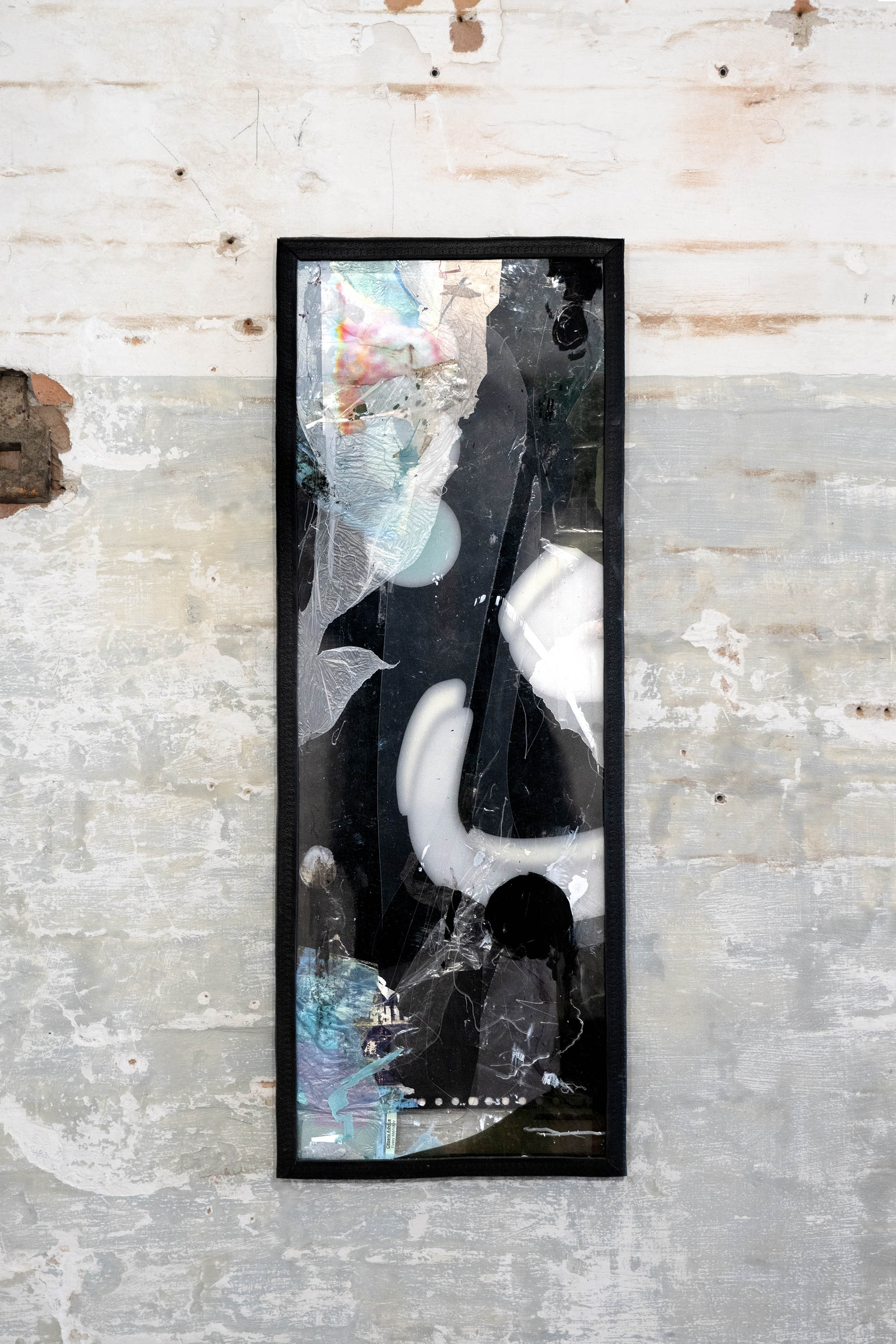
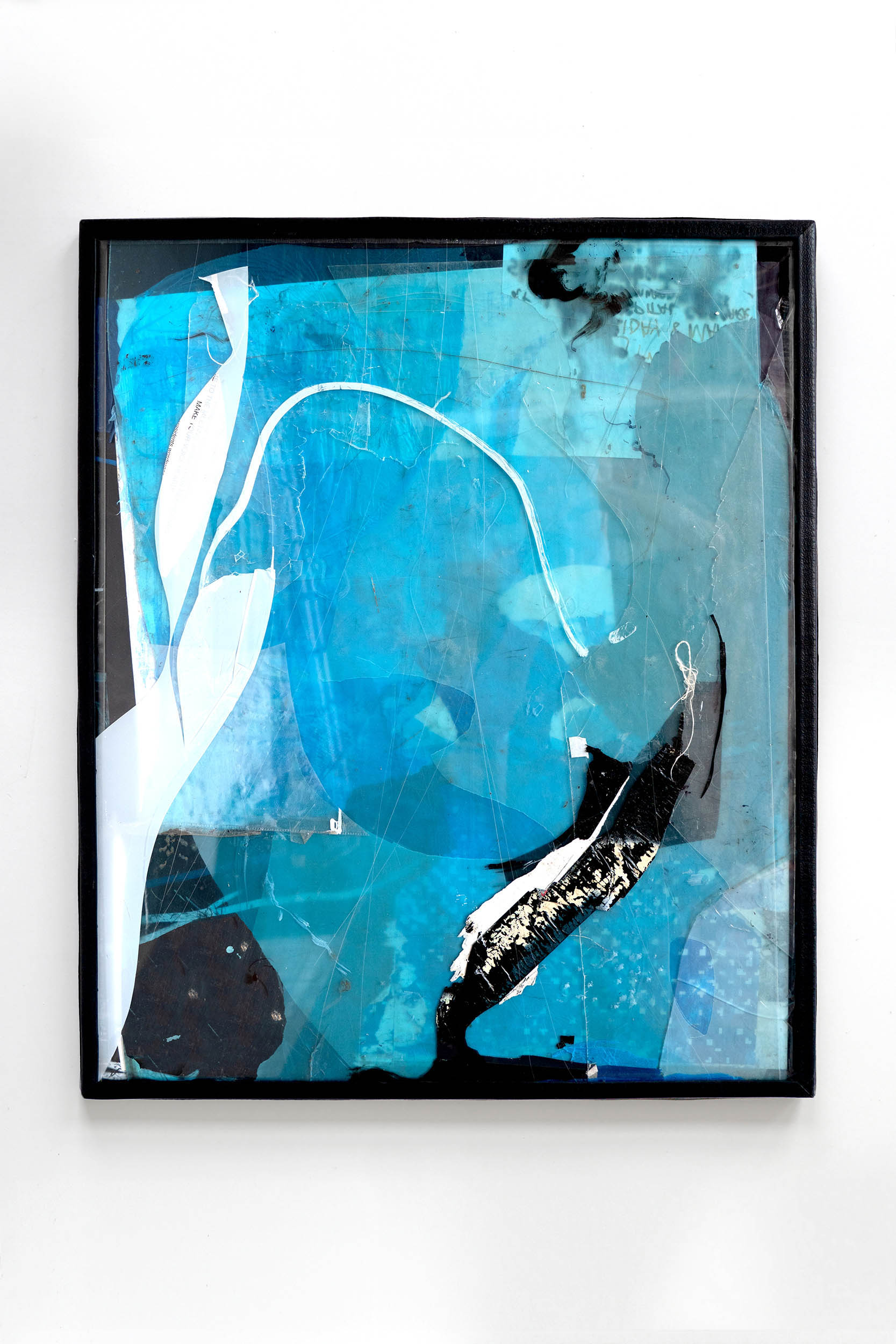
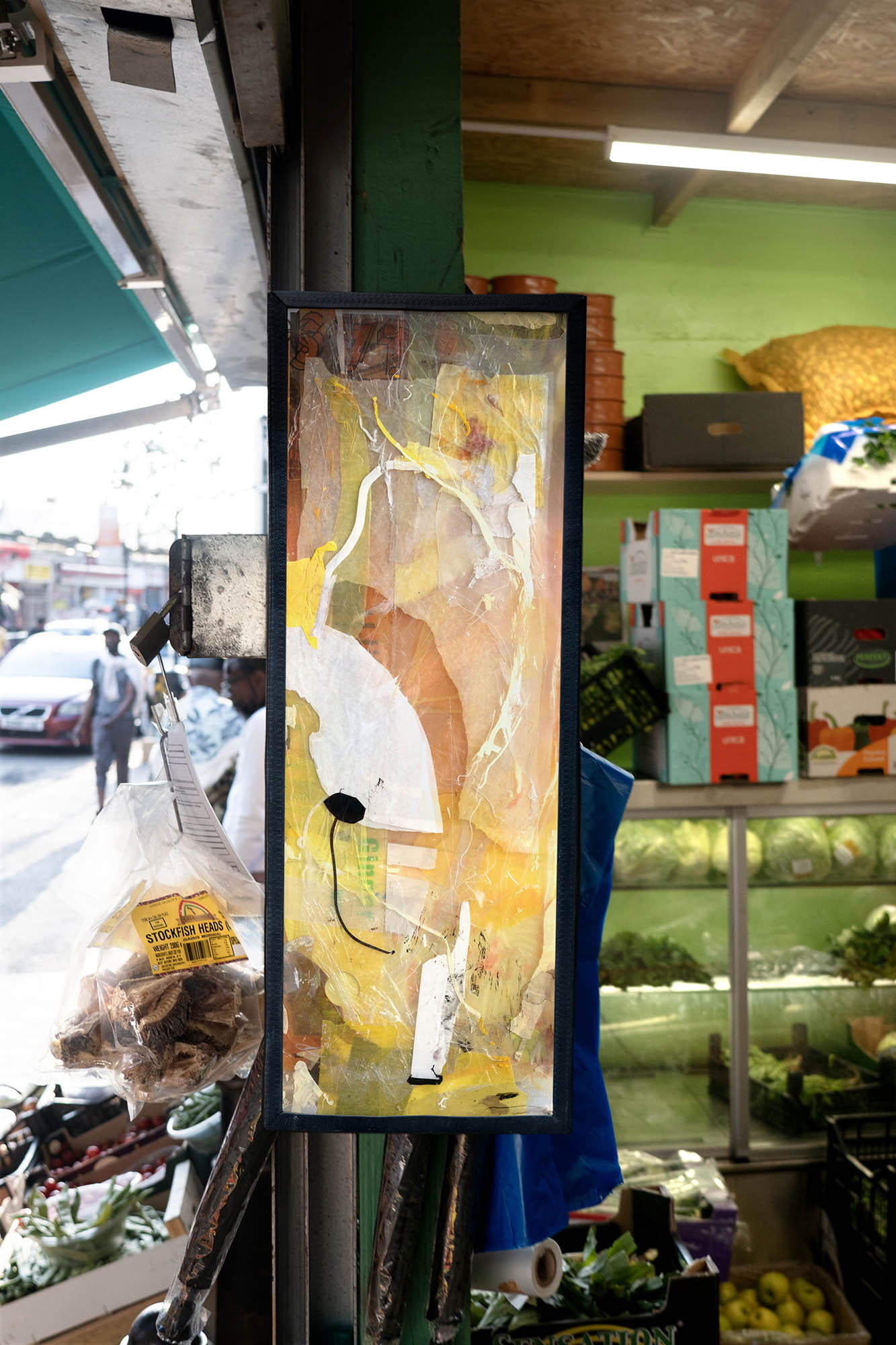
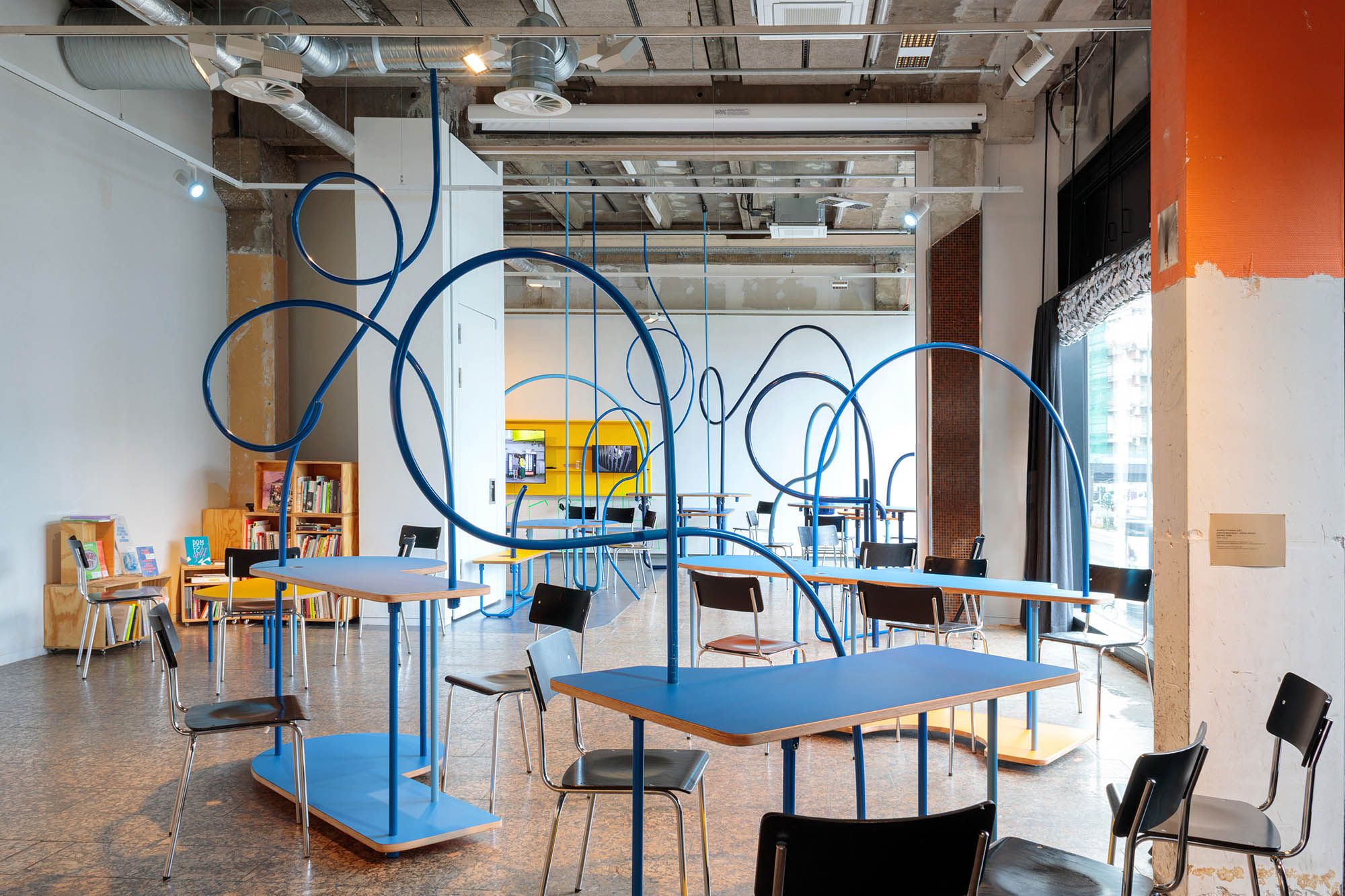
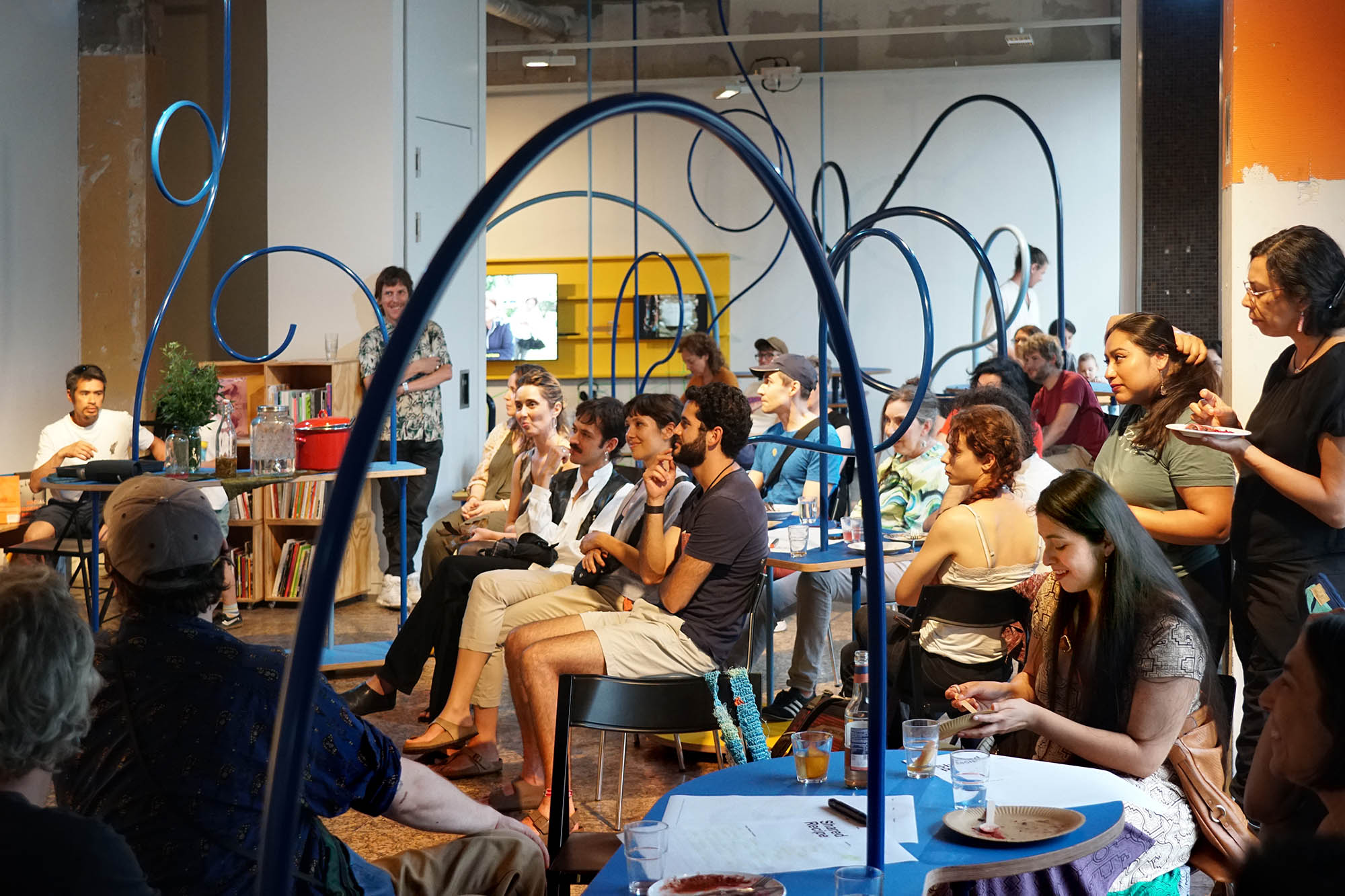
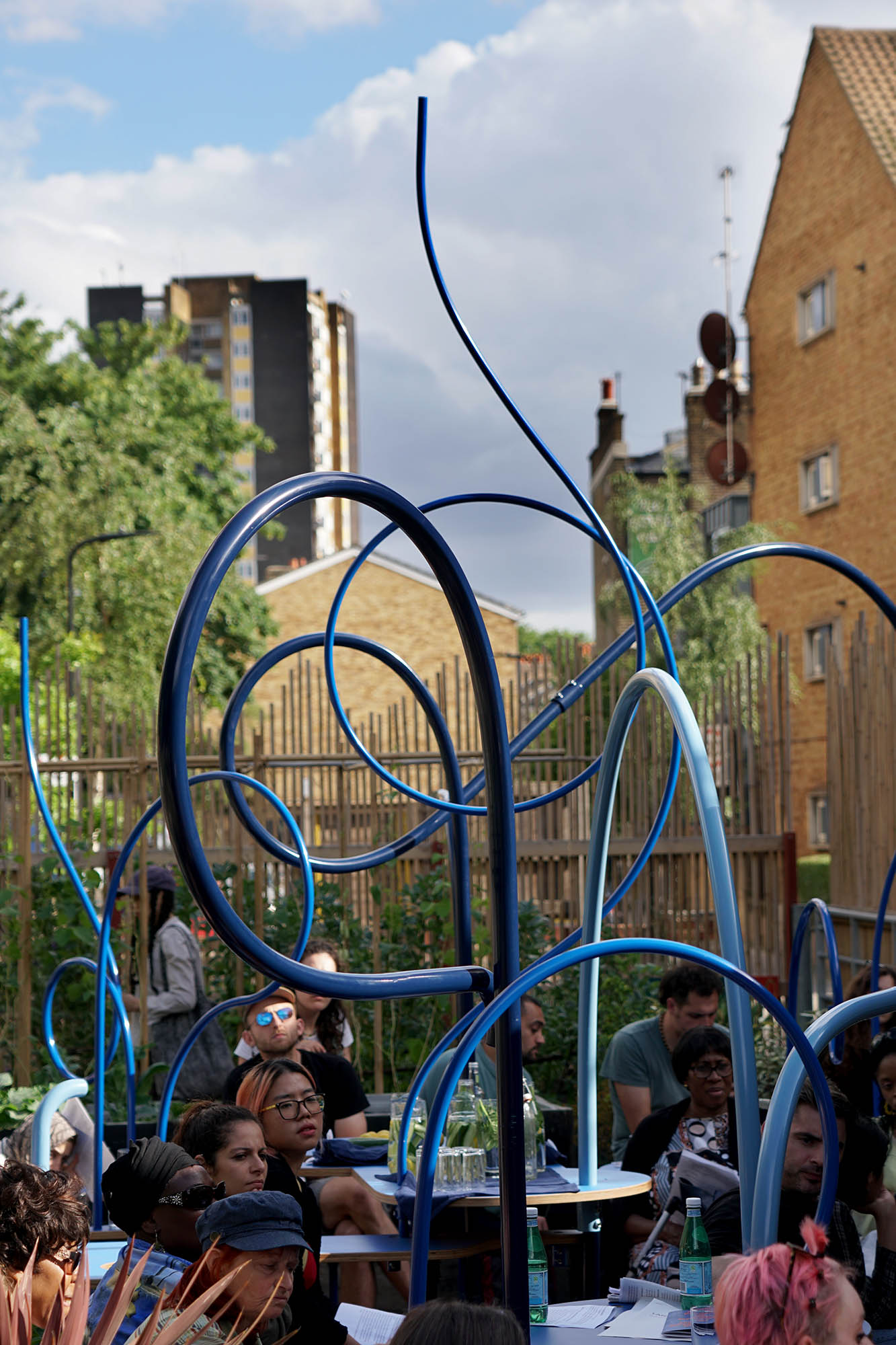
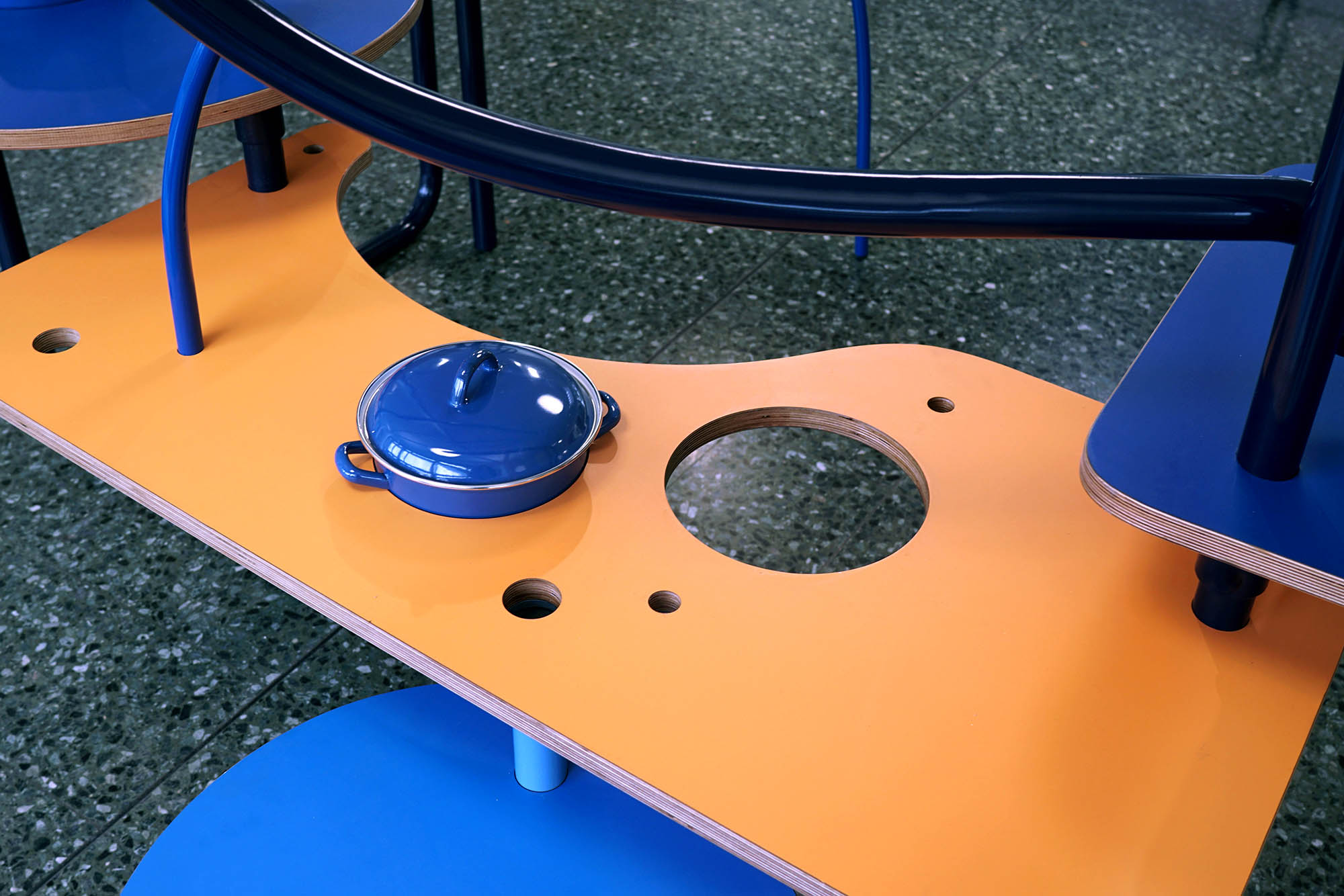
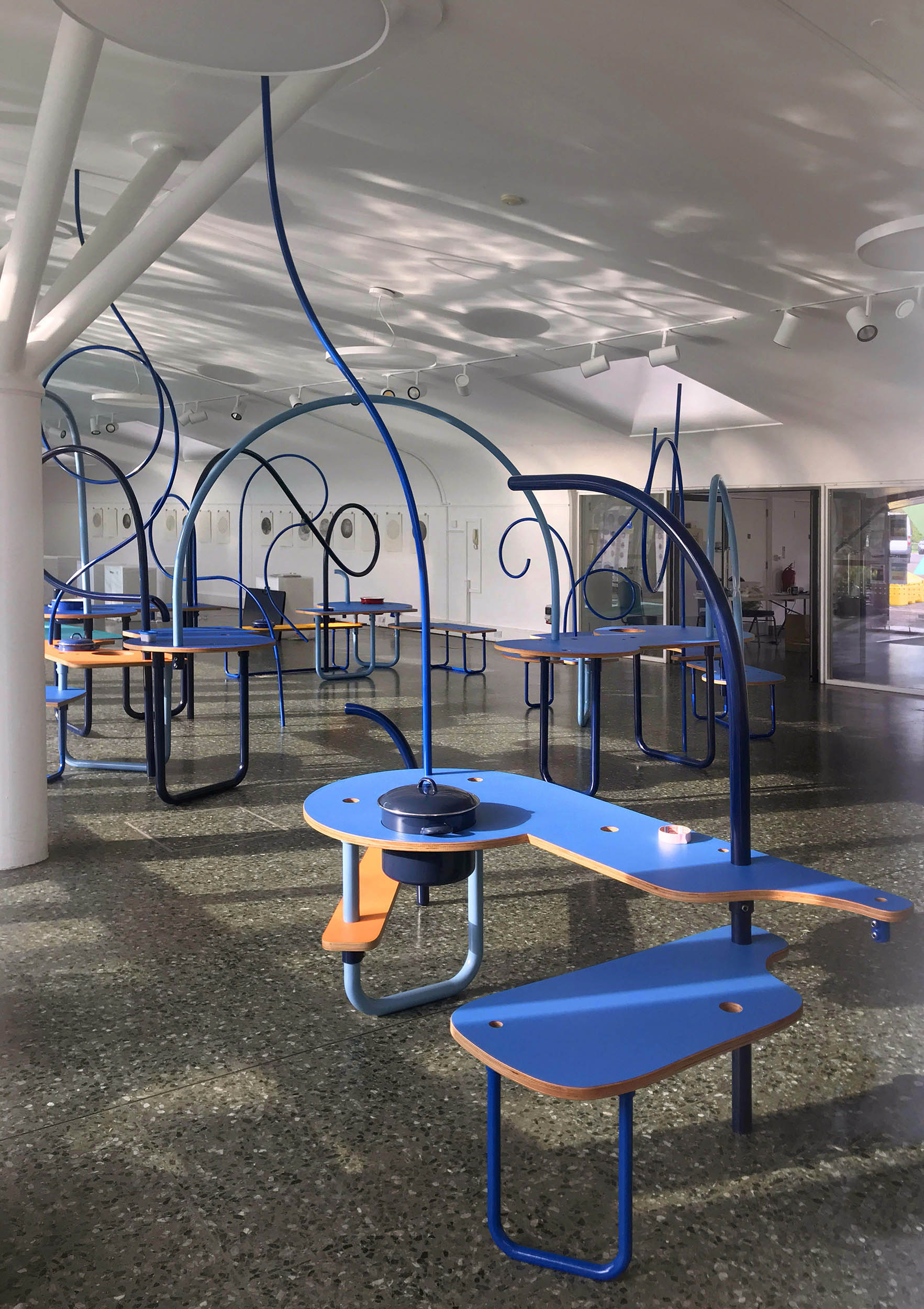
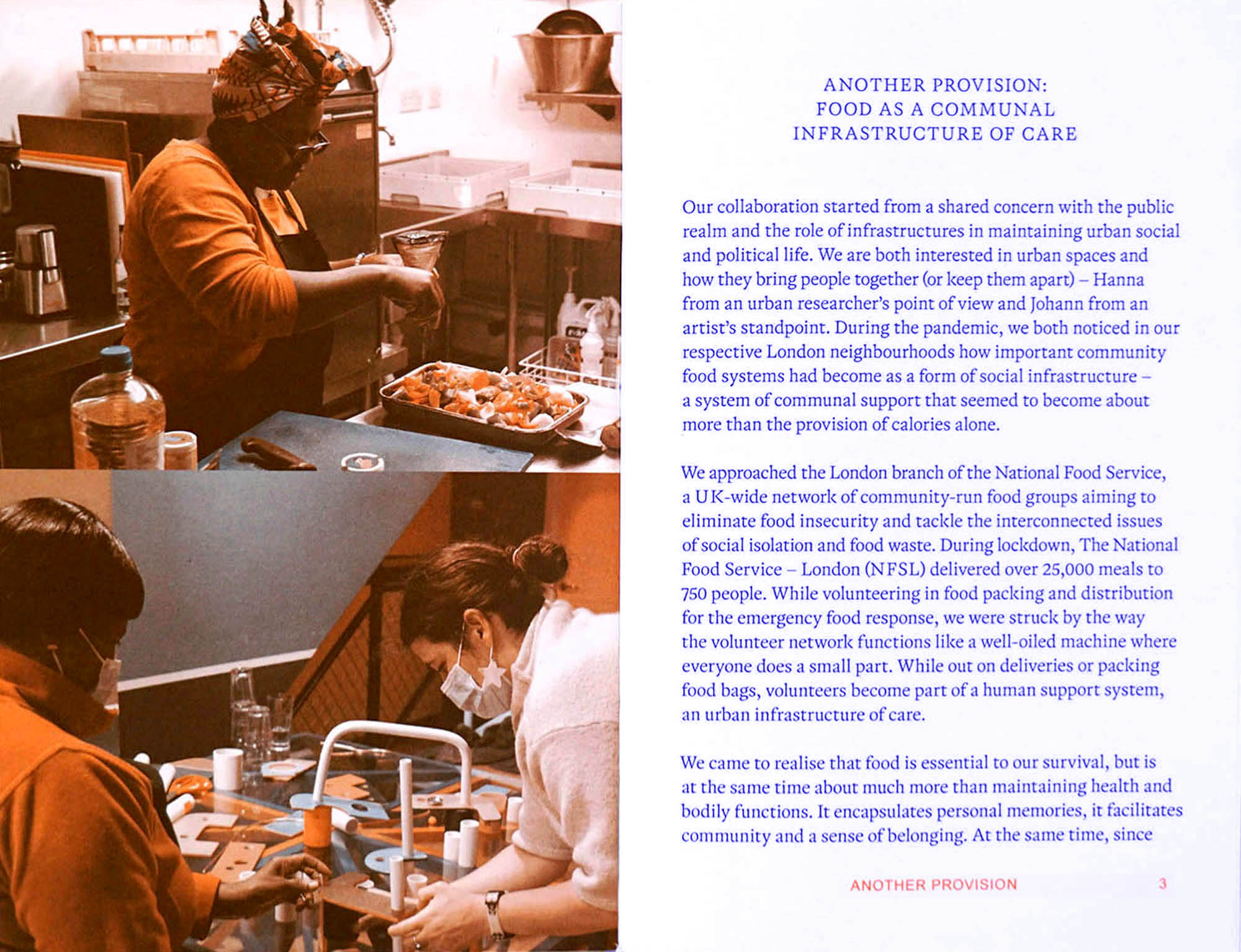
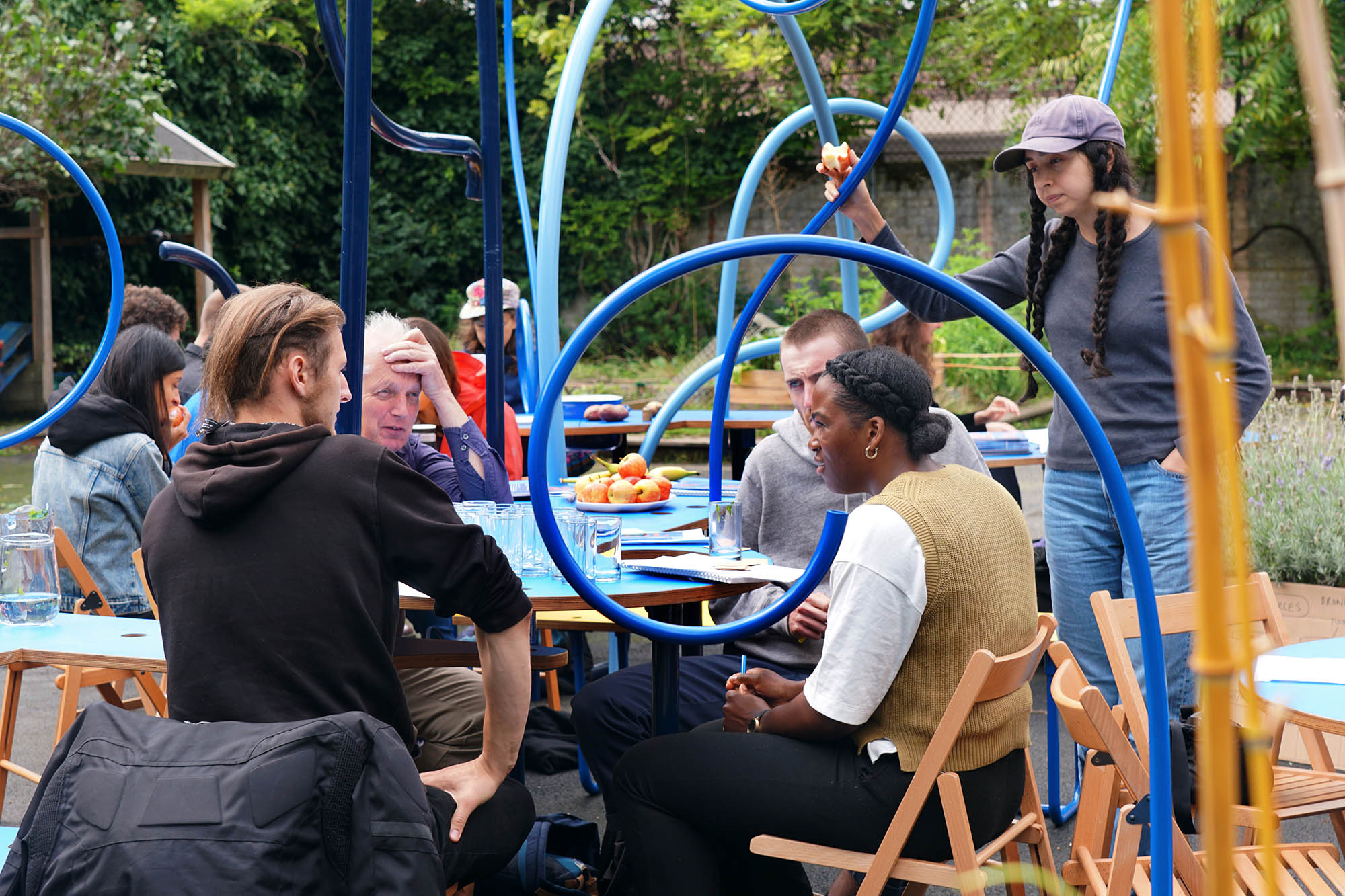
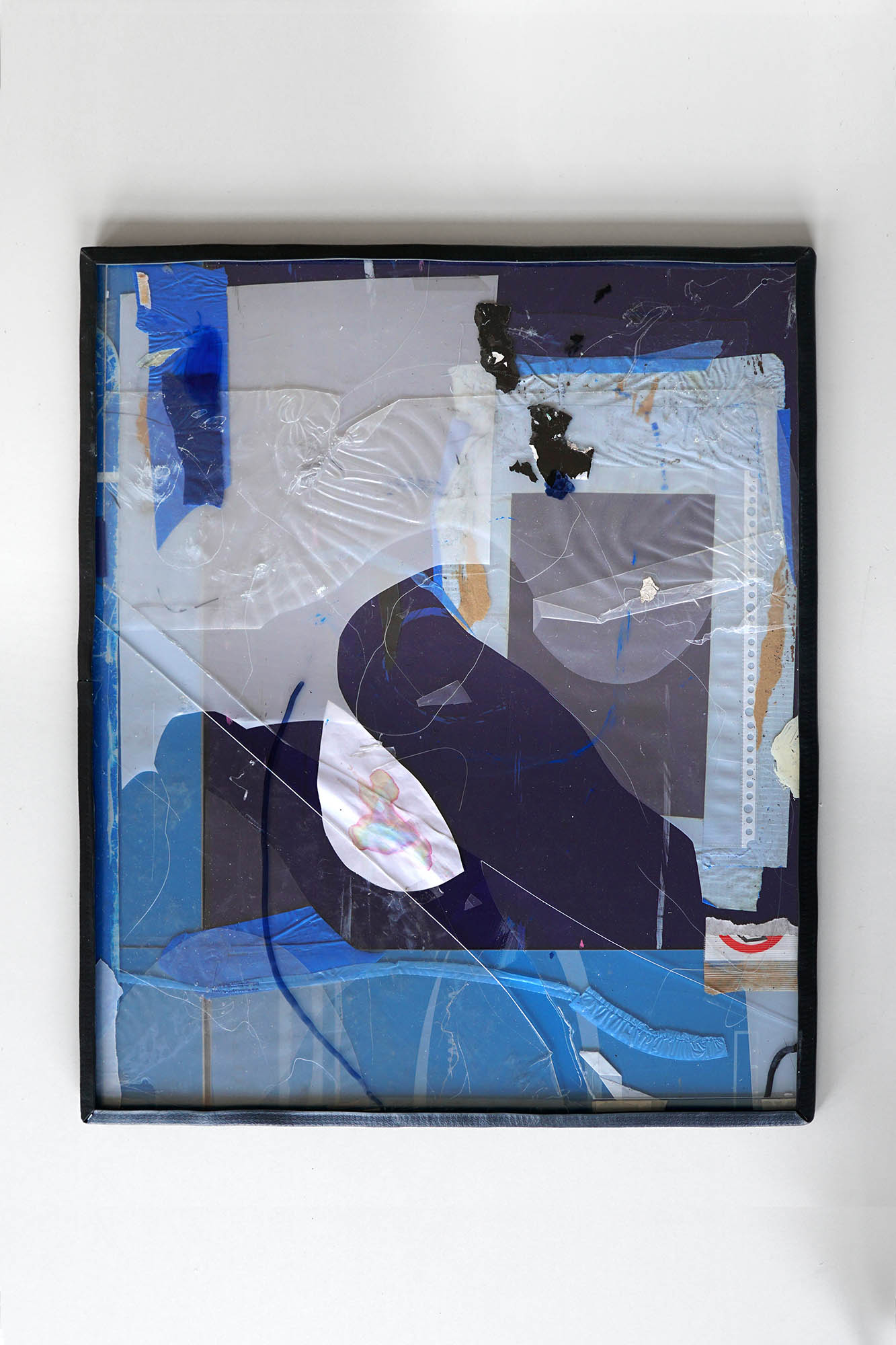
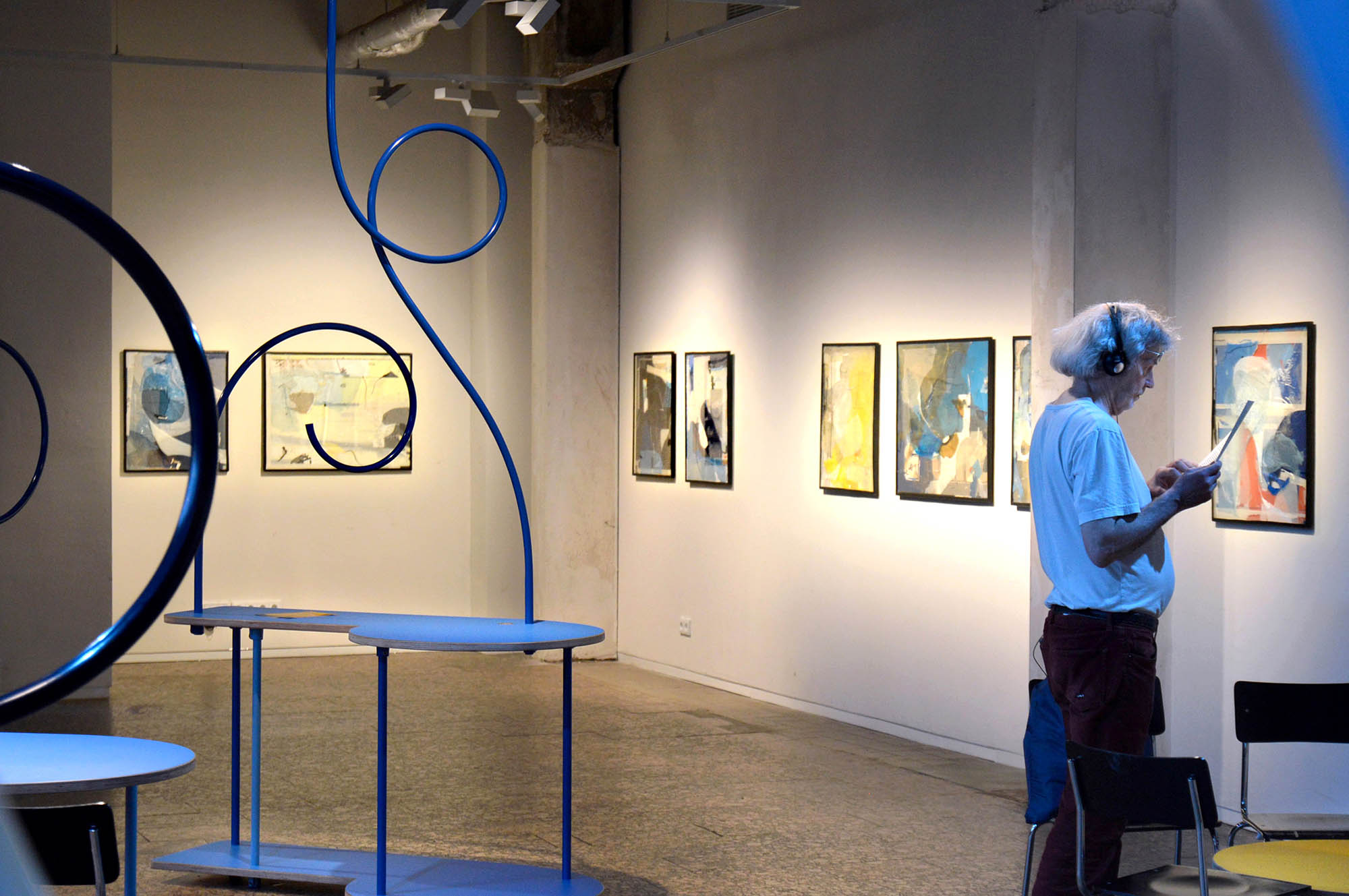 (photo by Peter Haplin)
(photo by Peter Haplin)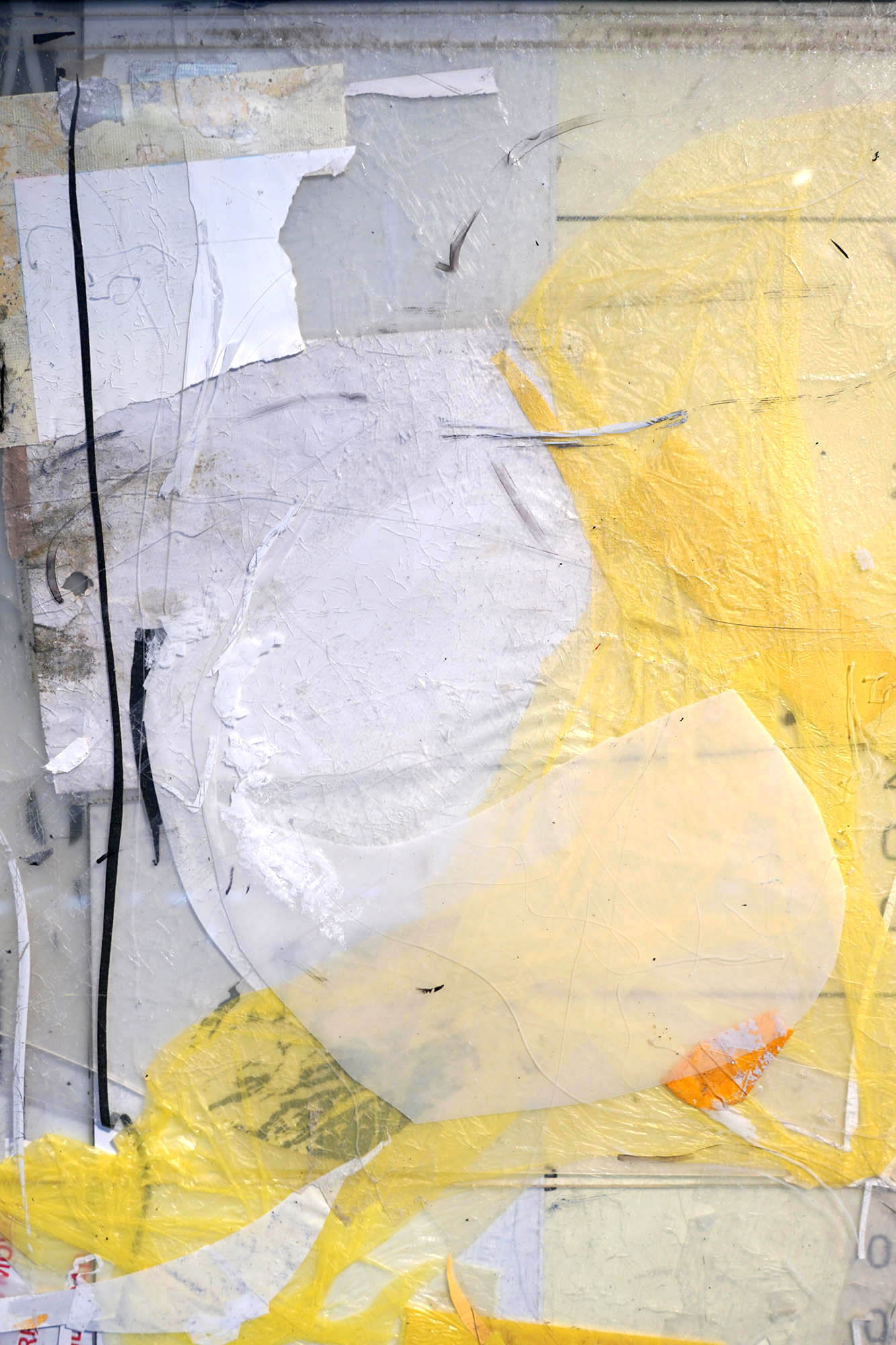
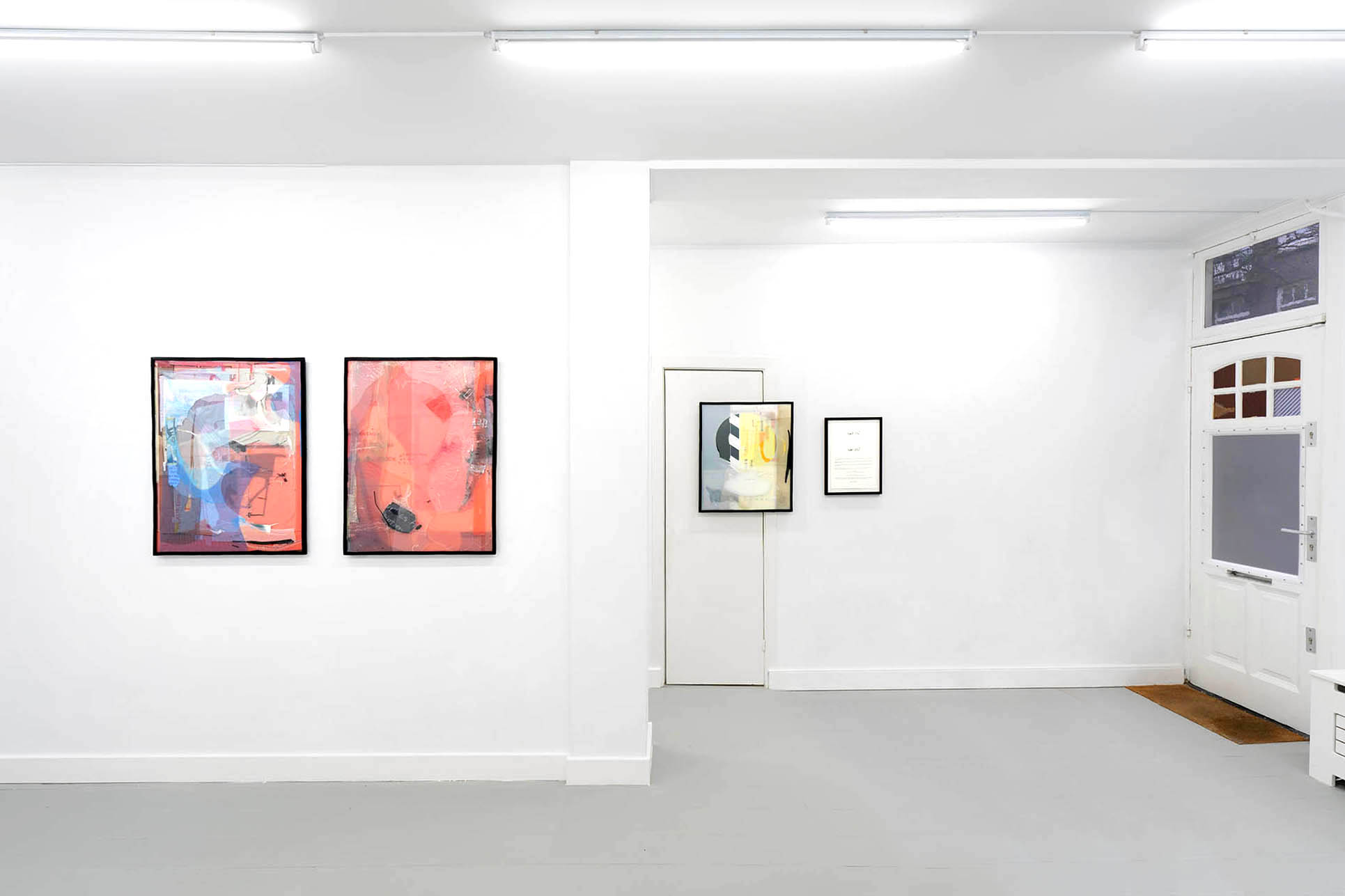
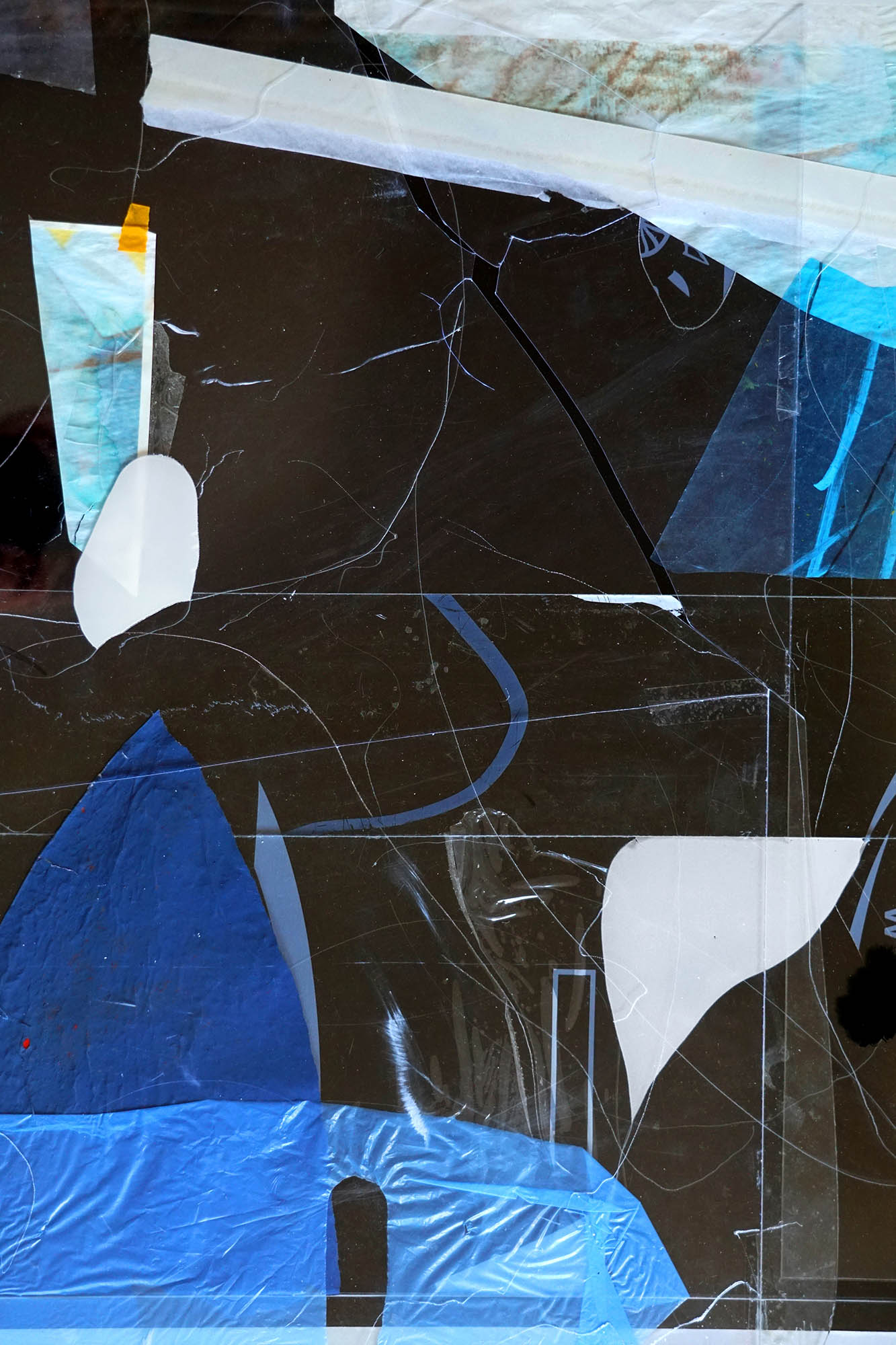
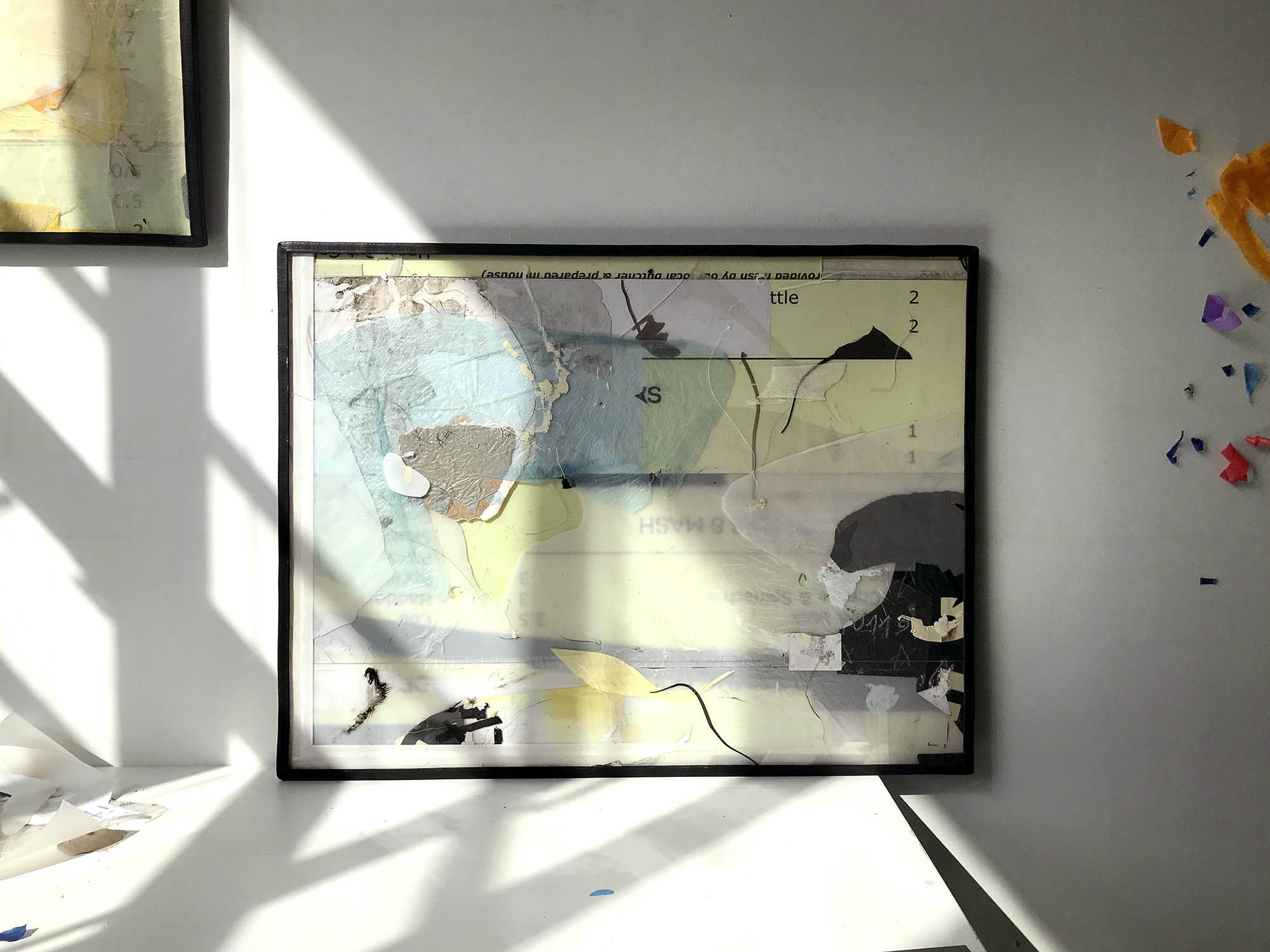
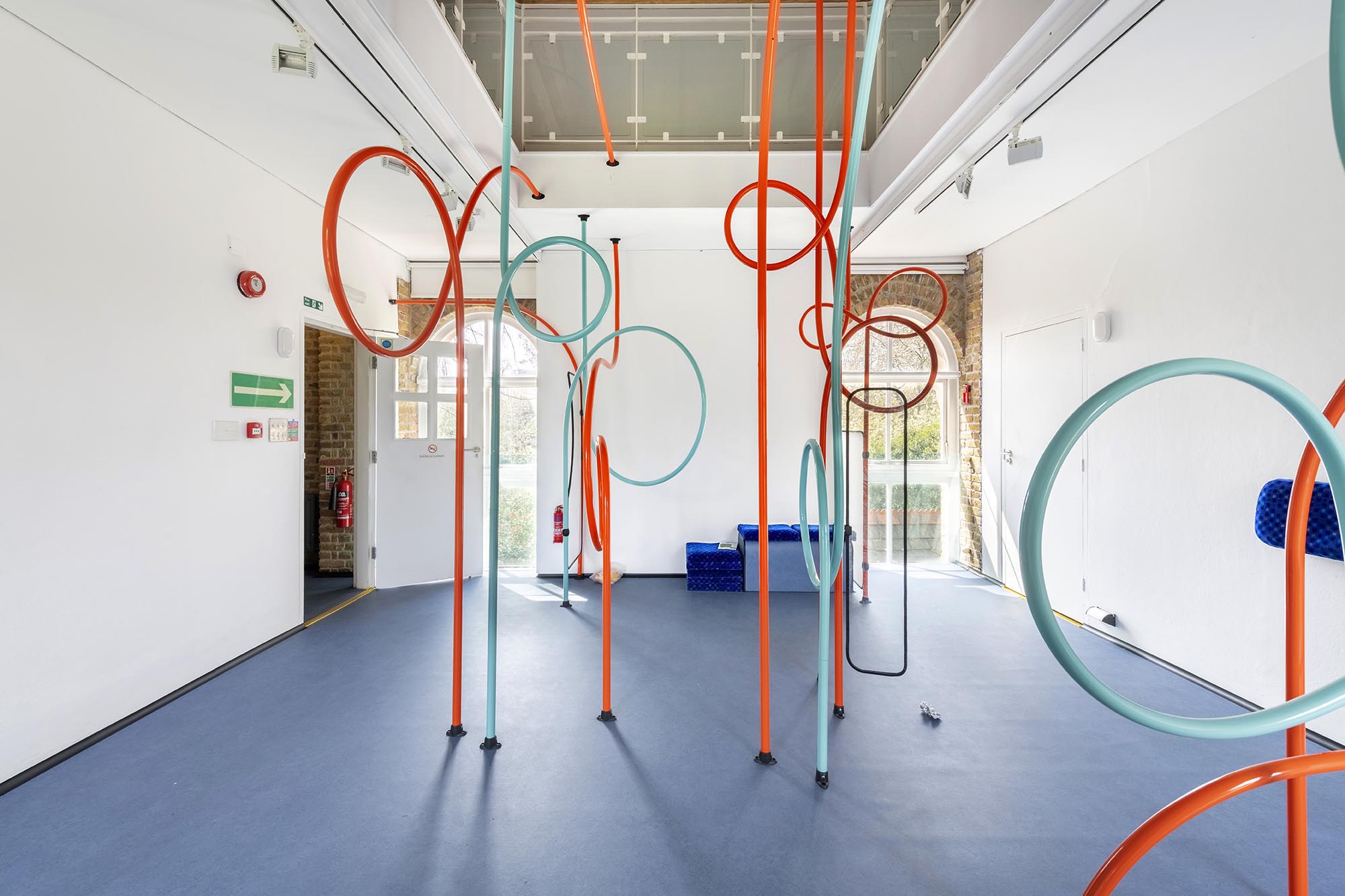
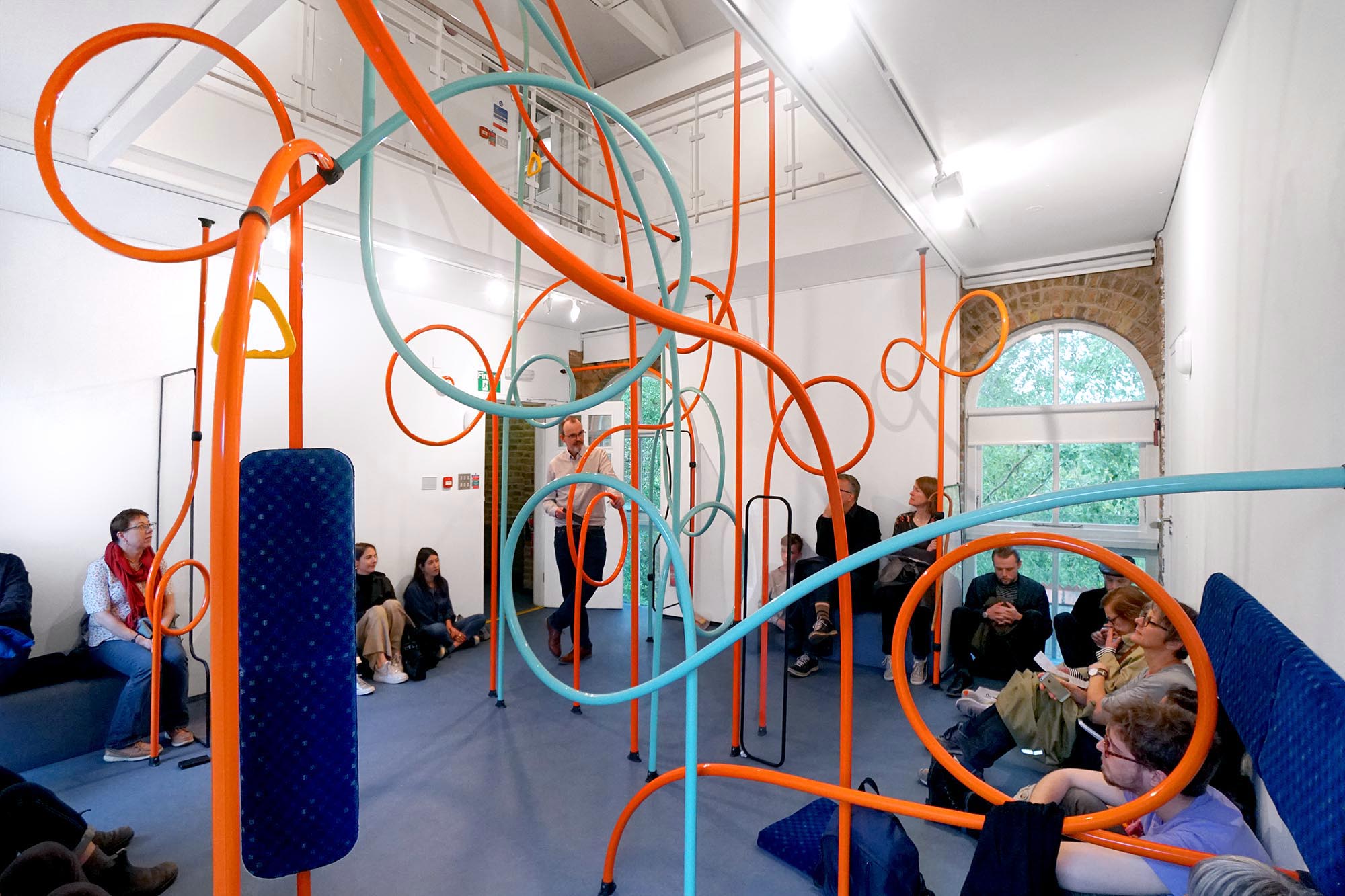
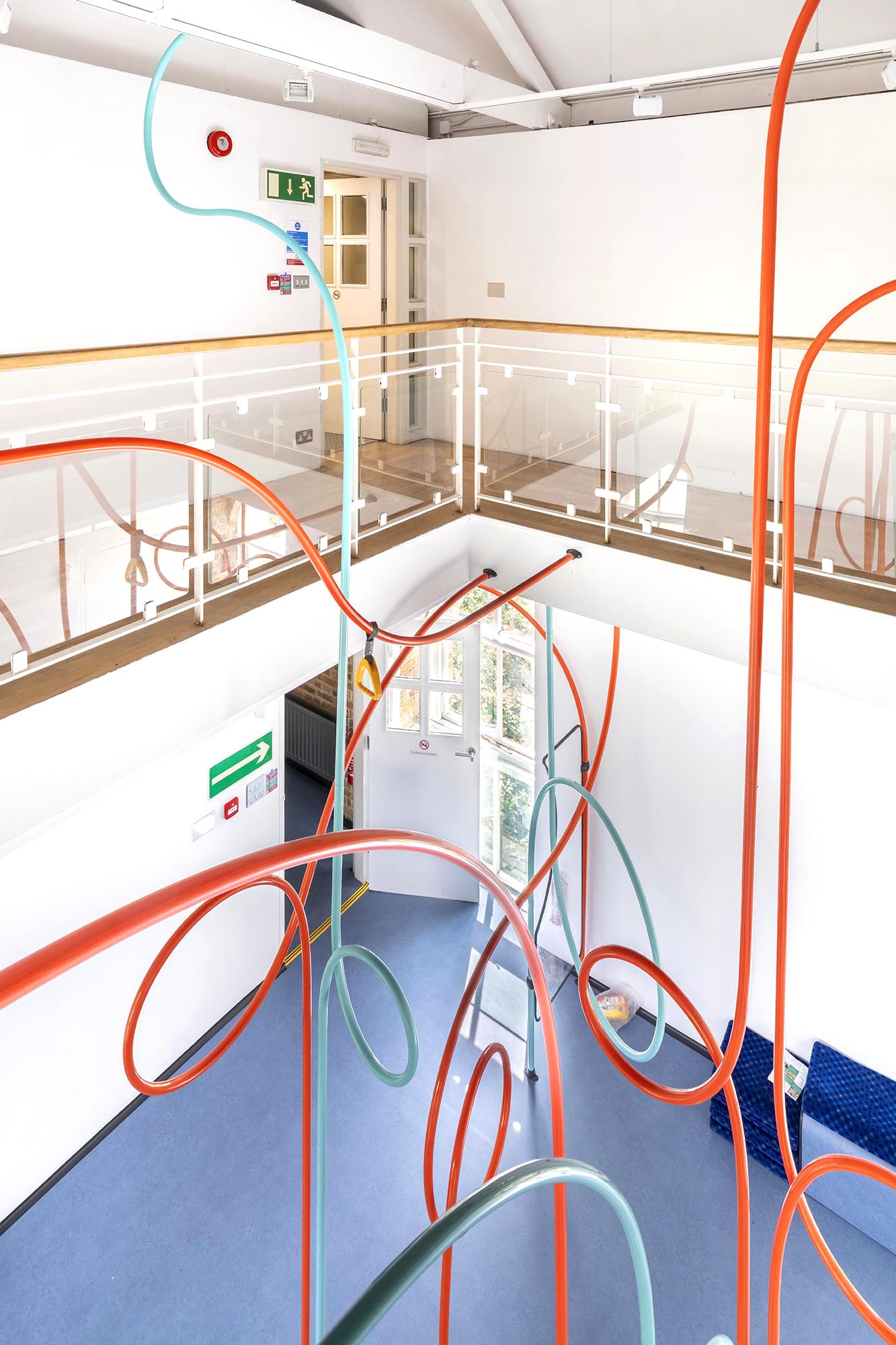
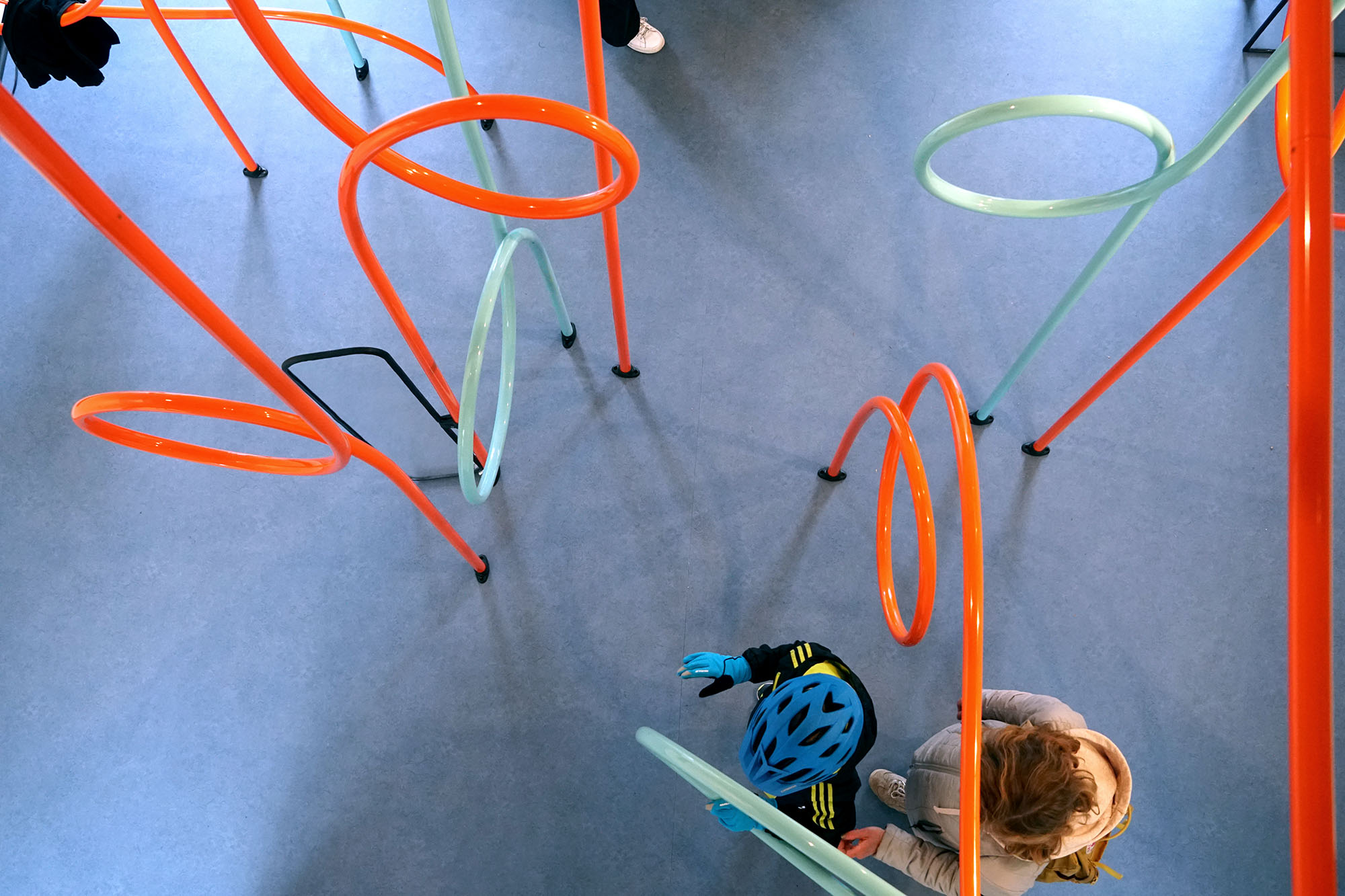
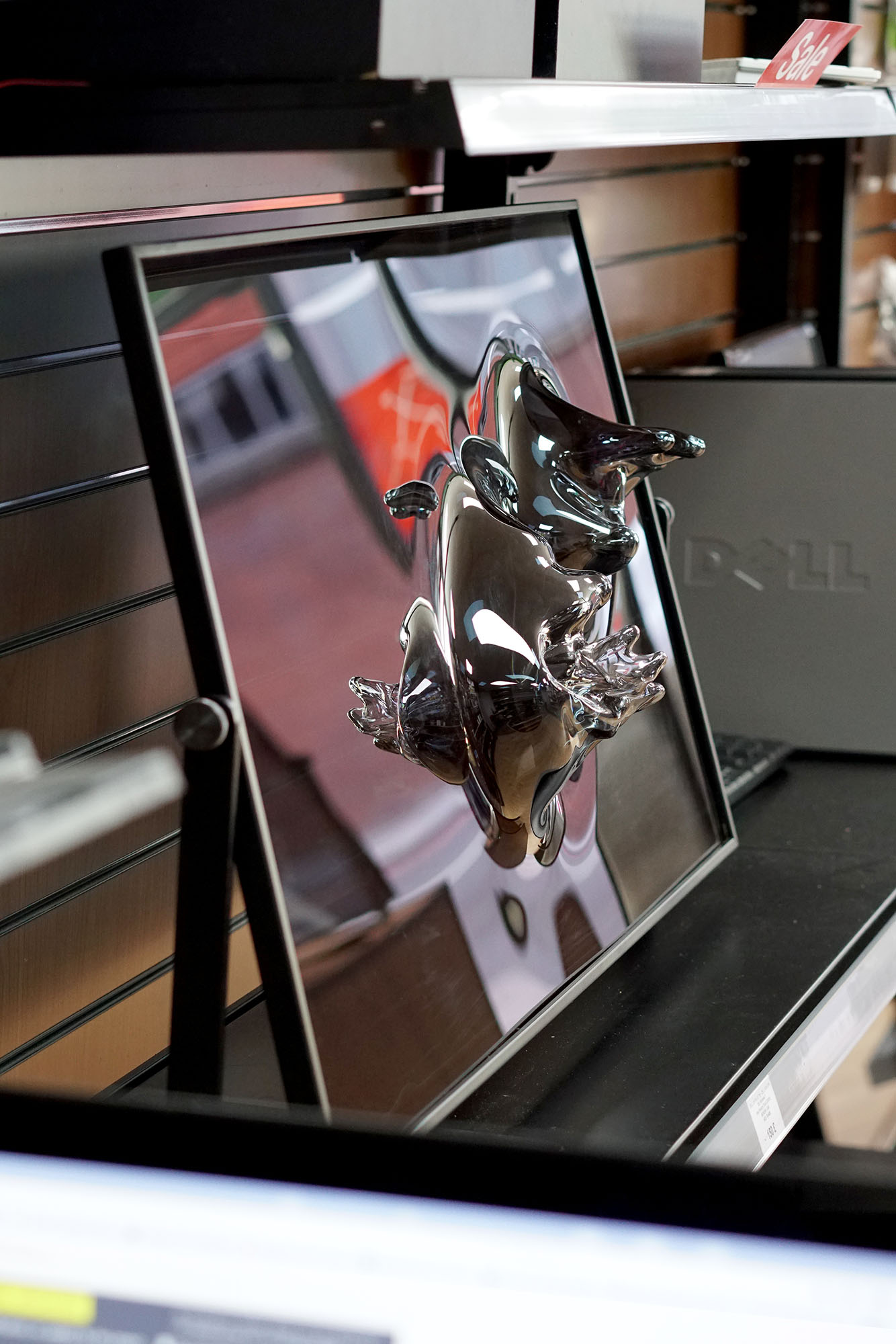
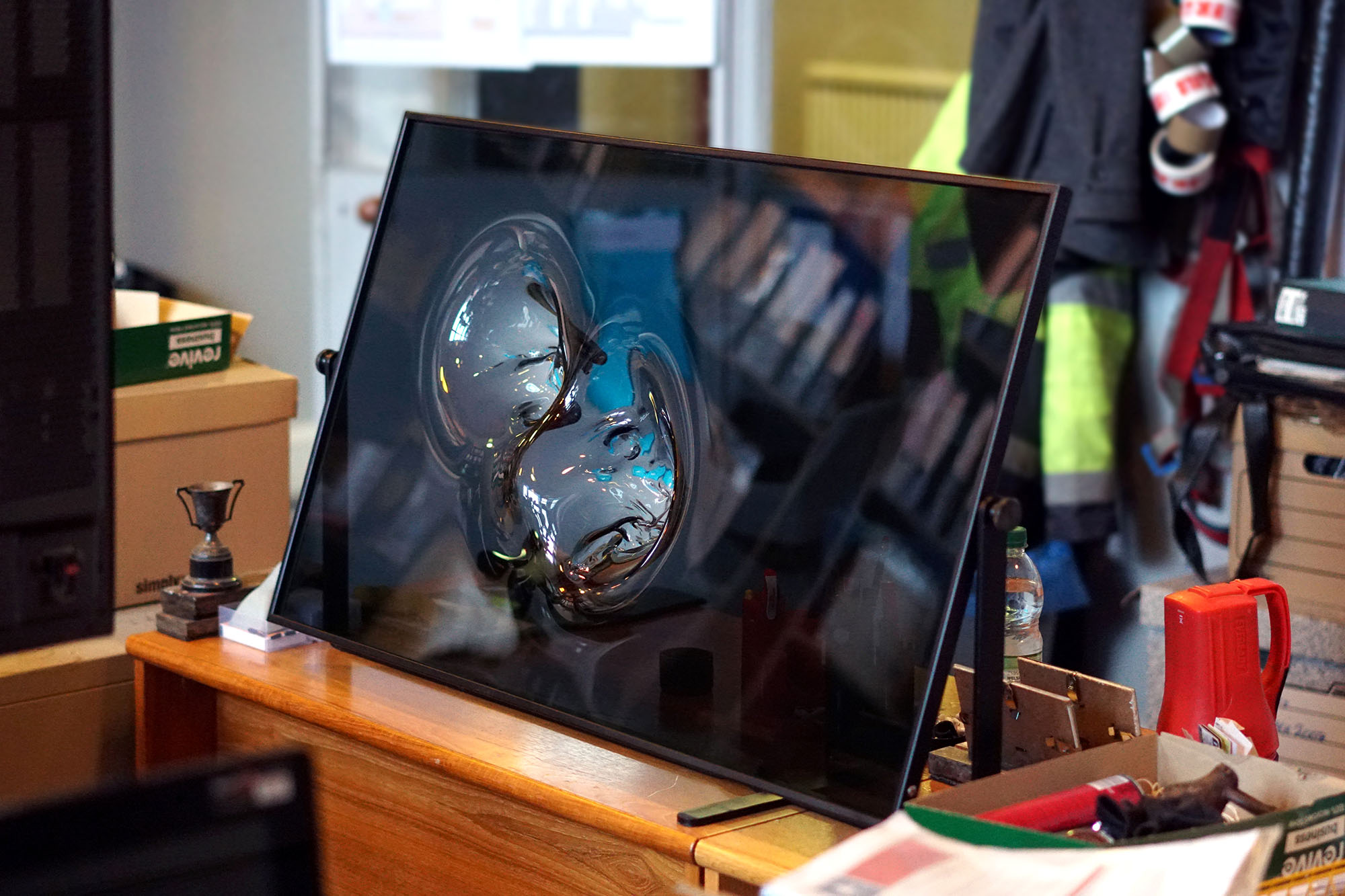
.jpg)
